Projects and Partners Map
We're driving impact across every province, territory, and sector. With a network of 3100+ partners collaborating on 400+ innovation pilot and research projects, we're working together to build insights, develop solutions, and turn evidence into action.
British Columbia
Alberta
Saskatchewan
Manitoba
Ontario
Quebec
New Brunswick
Prince Edward Island
Nova Scotia
Newfoundland & Labrador
Yukon
Northwest Territories
Nunavut
Projects
-

Reimagining Career Services
Blueprint ADERCS set out to test new models for career and employment services that respond to the needs of workers, employers, and practitioners in a rapidly changing labour market. Rather than a single intervention, RCS operates as a portfolio of innovation projects co-designed with service partners and piloted in real-world settings.
Pathways to JobsSME Adaptability -

Career Development Professional Centre
Canadian Career Development Foundation, MixtModeThe Career Development Professional Centre (CDPC), led by the Canadian Career Development Foundation (CCDF), is testing the effectiveness of a national body to unify Canada’s career development sector by providing foundational training, fostering professionalization, and encouraging collaboration among Career Development Professionals (CDPs).
Pathways to Jobs -

National Survey on Skill Demands and Employment Practices in Small and Medium-Sized Enterprises
Memorial University of Newfoundland, Diversity InstituteOur research draws on first-hand experiences to better understand specific labour-related challenges facing SMEs.
SME Adaptability -
 BCMB
BCMBResponsive Career Pathways Project (RCP) Midcareer Transitions
Blueprint ADE, Manitoba Institute of Trades & Technology, Douglas CollegeCanada’s rapidly changing labour market is challenging both workers and employers to adapt. Automation, demographic shifts and evolving skill demands mean that many mid-career Canadians will need to retrain or transition into new roles, while small and midsize enterprises (SMEs) struggle to recruit and retain skilled staff.
Inclusive EconomyPathways to Jobs -
 AB
ABTalent Perceptions Study of Economic Growth Sectors in the Calgary Region
Calgary Economic DevelopmentCalgary’s economy is poised for significant growth in key sectors like energy transition, technology and health care. However, a critical misalignment threatens this progress: a major disconnect exists between the in-demand occupations, as identified by employers, and the local talent pool’s skills and perceptions.
Inclusive Economy -

Impacts of Customization and Wraparound Supports for Digital Skills Upskilling Insights
Diversity InstituteThis report examines the role of wraparound supports in digital skills training programs, specifically for women, newcomers and refugees, and Black youth.
Inclusive EconomyTech and Automation -

Skills for Infrastructure Innovation
Diversity InstituteThis report examines global and Canadian infrastructure trends, highlights innovative practices (e.g., digitalization, green construction, modular methods, regulatory reforms) and analyzes the implications for the workforce and skills required in the coming years.
Quality of WorkSustainable Jobs -

Pathways for International Educated Health Care Professionals
Diversity InstituteThis report references both Canadian and international examples of best practices to show how IEHPs can be supported in Canada’s health-care workforce.
Inclusive EconomyPathways to Jobs -

Rising Concerns About the Impact of New Technologies on Employment
Diversity Institute, Environics InstituteThe proportion of Canadian workers who are worried about losing their job in the coming years because the work they do will soon be done by computers or robots has increased, and this cannot be accounted for simply by pointing to growing pessimism about the economy in general. Rather, there is a more direct relationship between concerns about the impact of automation on employment, and the use of AI programs at work.
Tech and Automation -

Scoping a PIAAC Research Agenda: Programme for the International Assessments of Adult Competencies
Shift InsightsThis project was initiated to develop a Canadian PIAAC research agenda that can guide policymakers, researchers and practitioners in using these new data to close knowledge gaps, enhance policy decisions and improve national performance in skills development.
Inclusive EconomyPathways to JobsSME Adaptability -
 BC
BCProject Connect: Professional Project Administrator Program
Royal Roads UniversityIndigenous Peoples represent the fastest growing and youngest population in Canada, offering critical potential to address skills shortages. Yet systemic inequities in access to education and training persist, resulting in lower employment outcomes and increased vulnerability to economic downturns.
Inclusive EconomyPathways to Jobs -

FUSION: Future Skills Innovation Network for Universities
Concordia University, Simon Fraser University, University of Calgary, University of Saskatchewan, Carleton University, Memorial University of NewfoundlandThe program focused on building metacognition (awareness or understanding of one’s own thinking), communication and problem-solving skills through flexible, experiential and reflective learning delivered in co-op programs across humanities, social sciences and STEM disciplines.
Inclusive Economy -
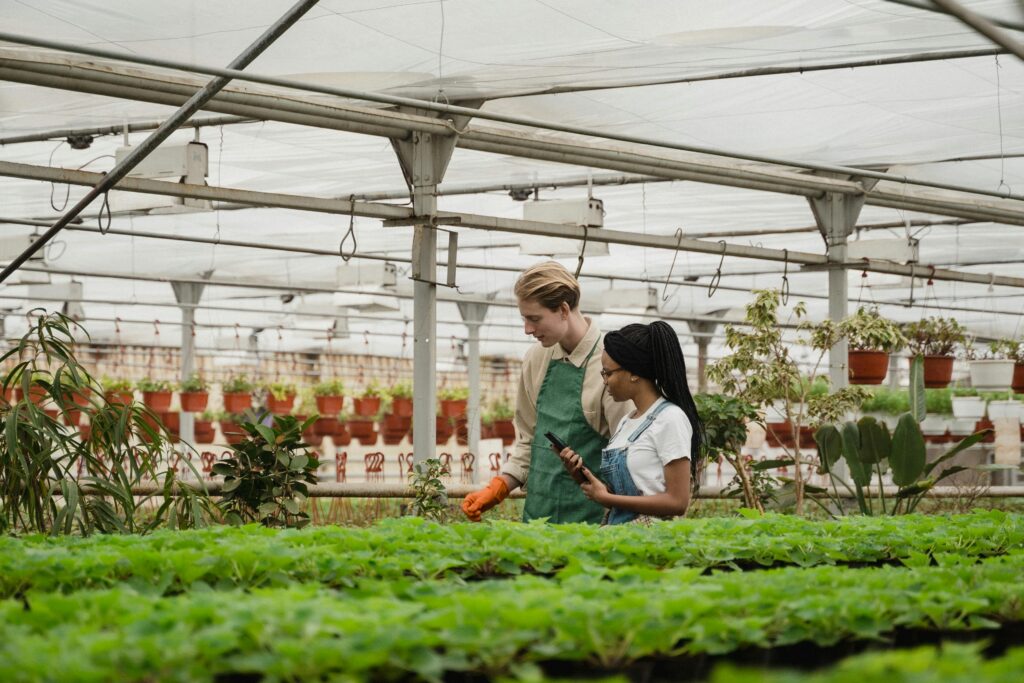
Mapping Food Sustainability in Canada: Addressing Food Insecurity and Skills Pathing to the Agriculture Sector
Diversity InstituteCommunity food production through gardens and greenhouses has gained traction to address food insecurity, and offer skills pathing and sector visibility for agriculture and agrifood careers. In this report, the authors mapped the current ecosystem of food sustainability initiatives to understand the current coverage of food sustainability programs in Canada.
Sustainable Jobs -

Development of Canada’s National Occupational Standards for a Sustainable Blue Economy
Environmental Careers Organization Canada (ECO Canada)Canada boasts the world’s largest coastline; however, its ocean-related industries contribute only 1% to the GDP, significantly trailing behind other nations. This project identified a pressing need for specialized training in science, technology, engineering and mathematics (STEM) to bridge the skills gap in ocean-related occupations in the sustainable blue economy (SBE), including marine transport and ocean technology.
Sustainable JobsTech and Automation -
 ABBCNLON
ABBCNLONReboot Plus Expansion
Douglas College, PEERs Employment and Education Resources, Blueprint ADEThe Reboot Plus Expansion program, led by Douglas College and PEERs Employment & Education Resources, aims to re-engage youth aged 17–24 who are at risk of not finishing high school or are unsure of their academic and career trajectories.
Inclusive EconomyPathways to Jobs -

Technology and Agriculture: Adoption and Barriers
Diversity InstituteWithout explicit educational support, small and midsize enterprises (SMEs) and diverse-owned agribusiness may be left out of the AgTech revolution. Skills-based supports are needed to maintain market competitiveness and ensure technology literacy and adoption issues are equalized—not accentuated—among groups.
Inclusive EconomySME AdaptabilityTech and Automation -

Supporting Rural Agriculture Entrepreneurship: Reframing the Discourse
Diversity InstituteThis research examined how agriculture sector stereotypes impair the growth and sustainability of the sector. Rural agriculture entrepreneurs face several challenges more than traditional businesses.
SME AdaptabilitySustainable Jobs -

Learning from Place-Based Approaches on the Road to Net Zero : International Lessons in Skills Training and Workforce Development
Institute for Research and Public Policy (IRPP)Global and Canadian efforts to reduce greenhouse gas emissions and shift away from fossil fuels have created a central policy question: How can workers, sectors and regions adapt and develop the skills needed for a low-carbon future?
Inclusive EconomySustainable Jobs -

Skilled Trades and Entrepreneurship: The Need for Business Competencies
Diversity InstituteThis report set out to explore two questions: 1) To what extent should entrepreneurship be recognized as a critical dimension of the skilled trades, and 2) which competencies are most essential for entrepreneurs in the skilled trades to succeed?
Inclusive EconomyQuality of WorkSME Adaptability -

Greenification of SMEs
Diversity InstituteThis report provides an investigation of existing competency frameworks for green skills in order to identify a framework suited to SMEs. We found current frameworks typically focus on new workforce training and large-enterprise models, and lack consideration of Canadian-specific regulations, smaller organization structures and accessible technical skills.
Inclusive EconomySME AdaptabilitySustainable Jobs -
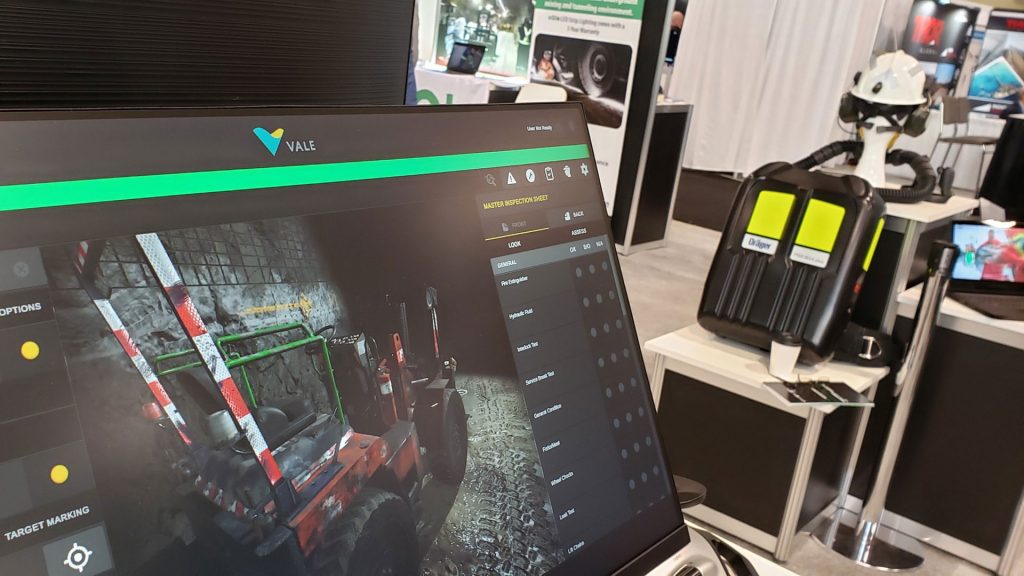 ON
ONLeveraging Technology to Develop Modern Mining Skills
NORCATThe Leveraging Technology to Develop Modern Mining Skills project, led by NORCAT with support from the Future Skills Centre, explored the potential for augmented reality and virtual reality to address labour and safety challenges in mining and construction. By incorporating simulations into core training programs, the project aimed to provide safer, more accessible practice environments for new workers while testing whether immersive tools could improve learning outcomes.
Inclusive EconomyTech and Automation -
 YT
YTSupporting place-based SMEs in the rural Yukon in post-pandemic environment
Yukon UniversityThe initiative focused on enhancing small and midsize enterprises (SMEs) in resource management, renewable energy, tourism and cultural ventures. These businesses, vital for self-determination and economic diversification, were shown to be vulnerable during COVID-19 due to their seasonal nature and lack of long-term planning.
Inclusive EconomySME Adaptability -
 NB
NBDevelopment of Soft Skills in Future Employees
New Brunswick Community CollegeEmployers in New Brunswick have reported a pressing need for enhanced soft skills among workers. Recognizing this, the Collège Communautaire du Nouveau-Brunswick / Community College of New Brunswick (CCNB) launched a project designed to enhance the soft skills of its students.
Pathways to Jobs -
 NL
NLTesting and Evaluating the Impact of a New Model of Innovation in Workforce Development in Newfoundland and Labrador
College of the North AtlanticThis project was administered by the College of the North Atlantic, with the Newfoundland and Labrador Workforce Innovation Centre and the Department of Immigration, Population Growth and Skills. It aimed to test and evaluate the impact of Regional Workforce Development Committees.
Inclusive EconomyPathways to Jobs -
 NBPESK
NBPESKTourism and Hospitality Emergency Recovery
Ontario Tourism Education Corporation (OTEC)The Tourism & Hospitality Emergency Recovery (THER) initiative, funded by the Future Skills Centre and led by the Ontario Tourism Education Corporation (OTEC), aimed to support Canada’s tourism and hospitality sector during and after the COVID-19 pandemic.
Pathways to Jobs -

Upskilling Program for Jobs in Digital Health and Data Analytics
The Michener Institute of Education at UHNThe Michener Institute of Education at UHN in Toronto, Canada, conducted a comprehensive evaluation of its “Upskilling Program for Jobs in Digital Health and Data Analytics”, aimed at bridging the skills gap in healthcare professionals’ proficiency with advanced digital and data-driven technologies.
Tech and Automation -

Equity, Diversity and Inclusion Backlash? What Canadian Workers Really Think
Diversity Institute, Environics InstituteThere has been limited data about how Canadian workers themselves feel about increased EDI workplace scrutiny and backlash. Our research reveals that despite some vocal opposition, the data shows that most Canadians view EDI measures in the workplace positively, with strong support among equity-deserving groups, younger workers and those with positive job experiences.
Inclusive Economy -

Upskilling/Reskilling Canada’s Healthcare Workers
University Health Network, The Michener Institute of Education at UHNThis project incorporated employers’ insights into diabetes foot care qualifications, tailored educational pathways to meet clinician needs, and offered culturally sensitive training for Indigenous populations.
Inclusive EconomyPathways to Jobs -

Digital Transformation of Work: Racialized Immigrant Women and Skills Retraining
University of WaterlooThe digital transformation coming to Canadian workplaces accelerated significantly after the country-wide COVID-19 lockdowns, which increased demand for remote work. The digital transformation has and will hit some workers harder than others.
Inclusive EconomyTech and Automation -

Do Immigrants Cause Higher Housing Prices? Myths and Realities about Immigrants, Housing and the Labour Market
Diversity InstituteThis research finds that while there is a correlation between immigration and housing price increases, immigration is not necessarily the primary cause.
Inclusive Economy -

North Forge Global Entrepreneurship Initiative
North Forge Technology ExchangeThe North Forge Global Entrepreneurship Initiative aimed to address several key questions to enhance support for newcomers, particularly those involved in the Start-up Visa Program and highly qualified newcomers facing licensing barriers.
Inclusive Economy -
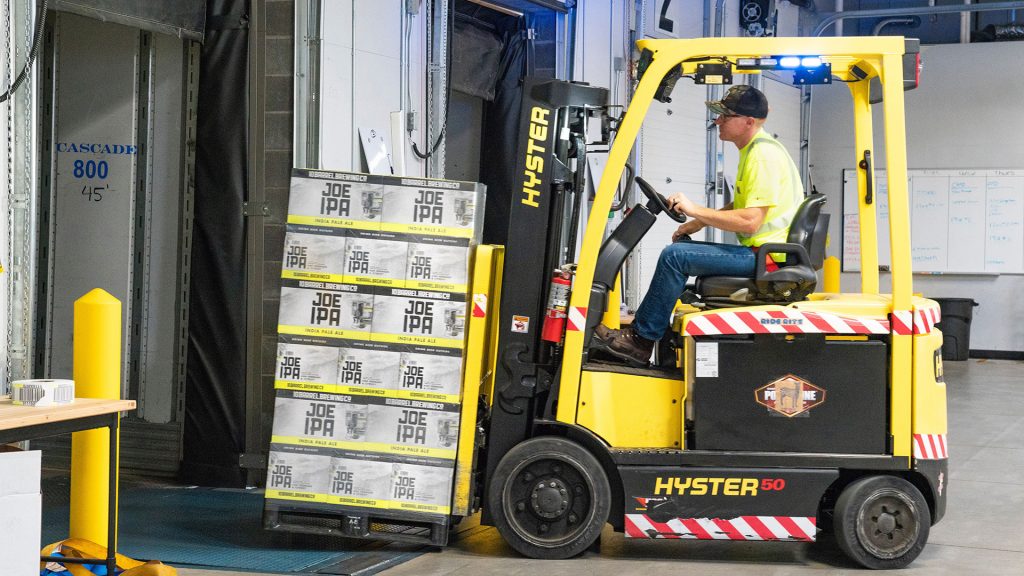 BCMBNSON
BCMBNSONMaterial Handling 4.0
Mohawk College of Applied Arts and TechnologyMaterial Handling 4.0 (MH4.0) is a sector-based skills training program designed to prepare unemployed and underemployed individuals for roles in Canada’s goods movement industry.
Tech and Automation -
 ON
ONInnovation for Better Integration
KEYS Employment and Newcomer Services, City of KingstonThe Innovation for Better Integration Project, which was conducted in Kingston, Ontario, aimed to address the challenges faced by newcomers in accessing services. The goal of the project was to collaboratively develop a new service provision model that would address the unique challenges of implementing traditional service approaches.
Inclusive Economy -

The Productivity Potential of Automation Technologies
Signal49 Research (formerly The Conference Board of Canada)Automation technologies present Canadian businesses with opportunities for improved productivity, labour efficiencies, and growth. Adopting automation technologies will change how industries operate, including the types of jobs and skills needed.
Tech and Automation -

Diversity and Inclusion Playbook
Diversity InstituteThe Diversity & Inclusion Playbook supports the Diversity Institute’s Diversity Assessment Tool (DAT) to provide organizations with actionable resources to build more inclusive workplaces and better serve an increasingly diverse and competitive global market.
Inclusive EconomySME Adaptability -
 NBNLNSPE
NBNLNSPEAspireAtlantic
Pier Labs, Blueprint ADEThe AspireAtlantic program tested out the WorkAdvance model— a proven US workforce development strategy that uses a sector-based approach that combines job training, placement and advancement support for low-income individuals.
Inclusive EconomyPathways to Jobs -

Tech-Driven Skill Shifts in Canada’s Mining and Oil and Gas Industries
Signal49 Research (formerly The Conference Board of Canada)In this research, we examine how emerging technologies are reshaping work in the mining and oil and gas industries by tracking changes in technology skills and tool and equipment skills over time.
Tech and Automation -

Innovation in Canada’s Primary Industries
Signal49 Research (formerly The Conference Board of Canada)New technologies are changing how work is done. In this research, we introduce our upcoming research into how mining, oil, and gas industries adopt technology and what skills they need most.
Which technologies are set to affect hiring in the mining, oil, and gas industries? What skills will the next generation of workers need? What barriers are preventing companies from adopting new tech?
-
 QC
QCFemale Workers Facing the Challenge of Digital Transformation: A Case Study in the Insurance Sector
Laval UniversityThe outbreak of the COVID-19 pandemic accelerated digital transformation, leading to numerous changes in social interactions at work. To address this, the project focuses on how female workers in customer service roles who typically hold secondary or college-level education and work remotely for insurance companies in the Chaudière-Appalaches region of Québec are adapting to these changes.
Inclusive EconomySME AdaptabilityTech and Automation -

Resilient by Design: The Skills Canadians Need Now and for the Future
To build a resilient workforce that is able to respond to and adapt to changing labour markets, whether due to unpredictable disruptions or longer-term transitions, we need a range of training and upskilling pathways that equip people with the skills they need to enter, advance, transition and return to dynamic labour markets.
Inclusive EconomySME Adaptability -
 ON
ONBuilding Capacity and Skills to Survive Shock for Current and Future Not-for-Profit Managers: A New Approach
McMaster UniversityThis project aimed to develop and test a new skills training model that bridged the academic and not-for-profit sectors. The experiential learning course called “Innovation for Social Impact” was developed and launched to achieve this goal.
Pathways to Jobs -
 QC
QCAligning Workforce Skills with Quebec’s Future of Work
Commission des partenaires du marché du travail (CPMT)Skills development in Quebec received a major boost with a three year, $20 million agreement between the Future Skills Centre and the Commission des partenaires du marché du travail (CPMT). The partnership supported CPMT initiatives that strengthened and adapted workforce capabilities to meet both current and future labour market demands in Quebec.
Inclusive EconomyPathways to Jobs -
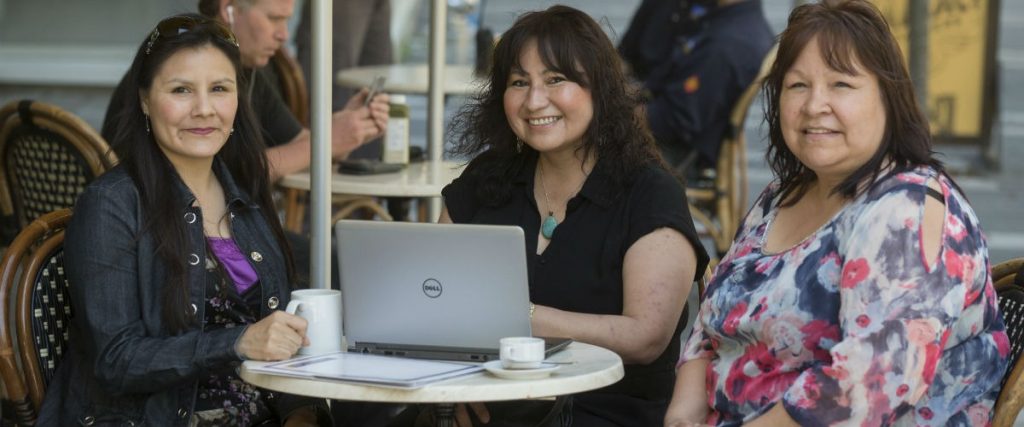 BC
BCIndigenous Employment Hub
Coast Salish Development CorporationThis project aimed to offer training for Indigenous workers through assessments, training plans, job placements and work transition support. The project built multiple partnerships with the community, local employers, training providers and government officials.
Inclusive Economy -

Adoption Ready? The AI Exposure of Jobs and Skills in Canada’s Public Sector Workforce
The DaisThis project investigates how artificial intelligence adoption could affect Canada’s public sector workforce, examining whether AI is more likely to assist workers with job tasks or automate those tasks entirely.
Tech and Automation -
 ON
ONYouth Jobs and Employment Career Pathing
Diversity InstituteMany youth, especially those from equity-deserving groups, are not aware of what career options they have and do not know what skills they need to achieve them. To address these gaps, the Diversity Institute designed and tested the Future Skills & Careers platform with the Peel District School Board (PDSB).
Inclusive EconomyPathways to Jobs -
 NB
NBVirtual Workplace Tours
3+ Economic Development CorporationEmployers in the Greater Moncton region report challenges in finding and cultivating skilled workers, a situation that may worsen in the face of anticipated retirements and slowing population growth. Young people may fill this employment gap if they are aware of the career opportunities available in the region.To address this issue, the 3+ Economic Development Corporation (now named the Southeast Regional Service Commission) initiated a project using virtual workplace tours to introduce high school students to potential careers in high-priority sectors.
Pathways to JobsTech and Automation -
 ON
ONDigital Transformation Strategy
Georgian CollegeThere is growing demand for workers with advanced digital skills. To address this demand, Georgian College aimed to modernize itself. Guided by a Digital Transformation Strategy, this project involved integrating campus-wide extended reality (XR) technologies to enhance teaching and learning, remote collaboration and tools for daily work.
Inclusive EconomyTech and Automation -

Career Development and Experiences of Black, Indigenous and Racialized Women in the Canadian Workplace
Divity Group Inc. (Accelerate Her Future)This research project, led by Accelerate Her Future, centres the voices of Indigenous, Black and racialized women to explore how systemic inequities shape career development and advancement experiences of Indigenous, Black and racialized women.
Inclusive Economy -

Facilitating Access to Skilled Talent
Immigration Employment Council of British ColumbiaFAST helps participants build job readiness, navigate Canadian workplace culture and connect with credentialing resources. The program features six sectoral streams ranging from information technology (IT) to seniors care.
Inclusive EconomyPathways to Jobs -
 ON
ONServices to Social Impact
Fora: Network for ChangeThe COVID-19 pandemic and its series of lockdowns disproportionately impacted the service industry and many young women who work in this sector. This project provided online workshops and coaching to help young women in the service industry develop transferable social-emotional skills in leadership and confidence, communications, business literacy, job interviewing and networking to support their capacity to undertake career changes.
Inclusive Economy -

Perceptions of Trades Training Gaining Traction over University
Environics Institute, Diversity InstituteCanada faces a shortage of workers in the skilled trades, resulting in part from persistent labour-market demand driven by activity in construction, manufacturing, transportation and…
-

DiversityLeads: Barriers and Enablers to Advancement for Equity-Deserving Groups
Diversity Institute, Canadian Council for Indigenous Business, University of Manitoba, Women in Communications and Technology, 30%+ Club CanadaThis report identifies significant barriers that hinder career advancement and enablers that allow leaders from equity-deserving groups to succeed. It is important to track progress because what gets measured gets done, especially at a time when Canada’s workers are aging and immigration levels are lowering, leaving a widening skills and talent gap for employers.
Inclusive Economy -

EDI Best Practices for Municipalities
Diversity InstituteThe Diversity Institute, the City of Kingston, and the Future Skills Centre, partnered to collect and share Equity, Diversity, Inclusion and Reconciliation (EDIR) practices from municipalities across Canada to develop a searchable database of EDIR resources. Currently, there are 260 best practices available through the tool.
Inclusive Economy -

AI Adoption in SMEs – Framework, Tools and Curated Resources
Diversity InstituteGuided by the AI competency framework, DI has built a tool that is focused on supporting upskilling for basic and mid-level AI competency development. The tool features curated lists of courses for basic AI literacy and mid-level AI skills. The library of curated resources is updated weekly to ensure it keeps apace with the expansion of the AI sector.
SME AdaptabilityTech and Automation -

Work Reimagined: Roles, Skills, and Workforce Development in the Age of AI
Signal49 Research (formerly The Conference Board of Canada)As AI transforms jobs and industries, organizations are navigating new ways of working. Understanding the dynamics of AI adoption—what drives it, what slows it down, and its impact on roles, skills, and workforce development—is essential for building responsive and competitive workplaces.
Pathways to JobsTech and Automation -

Diversity Assessment Tool App
Diversity InstituteThe Diversity Institute’s Diversity Assessment Tool (DAT) offers SMEs a practical way to assess their EDI practices, policies and strategies and determine areas for improvement.
Inclusive EconomySME AdaptabilityTech and Automation -

Automation technologies and Canada’s labour market: Measuring the totality of exposure
Signal49 Research (formerly The Conference Board of Canada)Automation technologies present Canadian businesses with opportunities for improved productivity, labour efficiencies, and growth. Adopting these technologies will change how industries operate, including the types of jobs and skills needed. Demand for some jobs will shrink, while others will experience changes in their tasks and workflows—and not everyone will be impacted equally.
Tech and Automation -

More Than Just Numbers Revisited: Women in Engineering
Diversity Institute, Ontario Society of Professional EngineersThis report reviews progress for women in engineering and the gaps that remain, and draws upon research and best practices to advance an evidence-based action plan.
Inclusive Economy -

Mentoring for Black Nurses—A Retrospective Study
Diversity Institute, Canadian Black Nurses AllianceThe project explored the role of mentorship in pathways to nursing, including education, employment and advancement, and how anti-Black racism manifests for both internationally and Canadian-trained professionals.
Inclusive Economy -
 YT
YTShock Proofing Yukon: Northern Entrepreneur Development Network
Yukon UniversityIn Canada’s North, entrepreneurship is important for local job creation and economic diversification. Because many entrepreneurs are Indigenous, their businesses also bring direct economic benefits to their communities. To support entrepreneurship, strong networks and access to training, mentorship and other supports are essential.
Inclusive EconomySME Adaptability -

State of Black Economics Report: Insights on Education, Employment and Entrepreneurship
Diversity InstituteThis report examines the challenges that Black Canadians face in economic advancement, specifically education, employment, leadership and entrepreneurship. It draws from the latest data and research in these areas, which show that experiences and challenges vary within the Black population based on gender, age, origin and disability.
Inclusive Economy -

Food Sustainability in the North: Skills Challenges and Opportunities in Community Greenhouse Projects
Diversity InstituteGiven the advancements of innovative technologies pertaining to agricultural practice and its evolving skills needs, this report reviews the current and future competencies needed for community-led greenhouse projects in Northern Indigenous communities to inform the future of training programs and initiatives.
Inclusive EconomySustainable Jobs -
 AB
ABRetail Entrepreneurship Acceleration Program
de Sedulous Women LeadersThe Retail Entrepreneurship Acceleration Program (REAP) + iLaunchHERproduct, led by de Sedulous Women Leaders and funded by the Future Skills Centre, is a single program with two components that was designed to address the systemic barriers faced by Black, racialized and immigrant women entrepreneurs in retail.
Inclusive EconomySME Adaptability -
 MB
MBA pay-for-performance model for skills training
Social Research and Demonstration Corporation, Excellence in Manufacturing ConsortiumThis project was designed to address two key issues related to training programs that address skills gaps in manufacturing—employer underinvestment and low participation. The Social Research and Demonstration Corporation (SRDC), in partnership with Excellence in Manufacturing Consortium (EMC), piloted an outcomes-based “pay-for-performance” model, which reimbursed employers if they successfully supported the delivery of EMC’s Manufacturing Essentials Certification soft skills training program and met key performance targets.
Inclusive EconomySME Adaptability -

How AI is shaping the future of work
Signal49 Research (formerly The Conference Board of Canada)Artificial intelligence (AI) is destined to fundamentally alter work—redefining tasks, reducing demand for specific roles, and giving rise to entirely new roles. Unlike past technology automation waves that targeted routine physical tasks, AI extends into cognitive work—analyzing data, recognizing patterns, and drawing conclusions. This puts even high-skill jobs at risk of disruption, challenging long-held assumptions about their immunity to automation.
Tech and Automation -
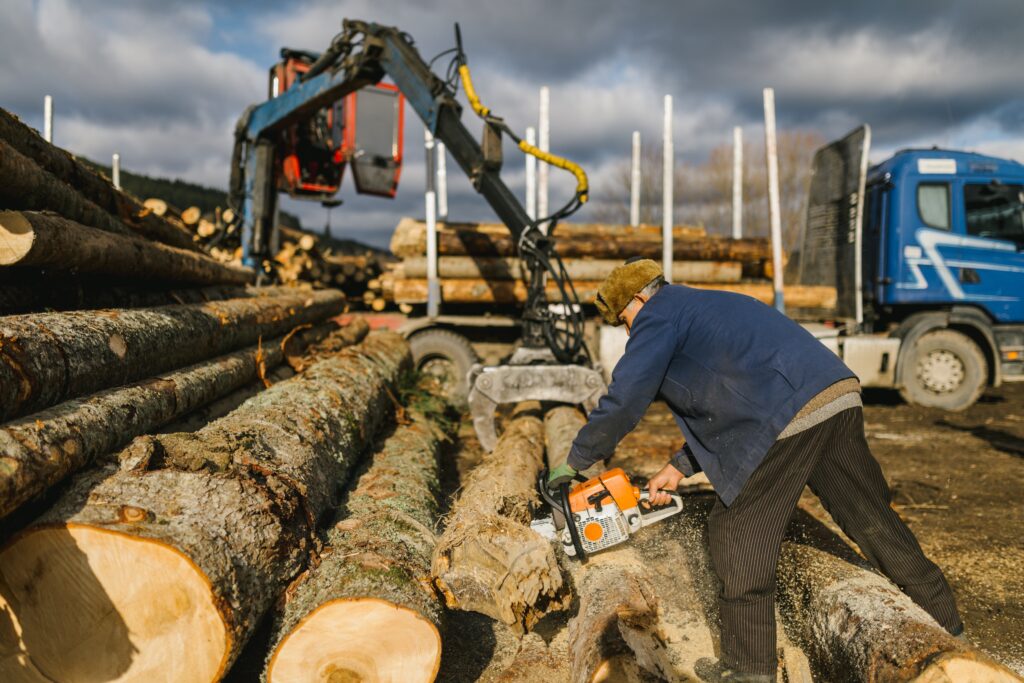
Supporting Indigenous and Northern Entrepreneurship and SMEs
Indigenous and Northern entrepreneurship and businesses play a crucial role in bolstering local economies by supporting economic diversification, job creation and community development.
Inclusive EconomySME Adaptability -

Leveraging Government Data
Blueprint ADEUnlocking the power of data is foundational to a future-state skills ecosystem where public services are navigable, supportive, targeted, integrated and transparent.
Tech and Automation -
 ON
ONScale Learning Lab
Scale Hospitality GroupThe Scale Learning Lab was developed to address the hospitality sector’s ongoing talent shortages through an innovative, industry-led training model. By combining digital learning and hands-on training, the Learning Lab provides hospitality professionals with the skills needed to succeed in a rapidly evolving sector.
Pathways to Jobs -
 NUONYT
NUONYTLearning from One Another: A Comparative Analysis of Labour Market Needs and Corresponding Skills in Northern Ontario, Yukon, and Nunavut
Signal49 Research (formerly The Conference Board of Canada)Labour markets in Northern Ontario, Yukon, and Nunavut are changing, but the pace and scale of that change are not well understood. This multi-year project provided a roadmap for governments, communities, and education and training providers to improve regional workforce readiness for existing and emerging opportunities.
Inclusive Economy -

Skills for Productivity, Prosperity and Well-Being in Canada: A Canadian PIAAC Research Agenda
Shift InsightsCanada is in the midst of a productivity and growth challenge. Part of the issue is skills. New PIAAC data released at the end of 2024 provides Canada with an opportunity to improve understanding of relationships among skills, productivity, prosperity and well-being, and to use that knowledge to design better policies and programs.
-
 BCNBNLONSK
BCNBNLONSKLeadership Development for Indigenous Communities
Workforce WarriorsTo address the economic gaps that persist between Indigenous and non-Indigenous people in Canada, Workforce Warriors Inc. launched the Leadership Development for Indigenous Communities project.
Inclusive Economy -

Upskill and Certify Indigenous Child and Youth Practitioners
Right to PlayThe Upskill and Certify Indigenous Child and Youth Practitioners project aimed to address the barriers that Indigenous child and youth workers face in accessing postsecondary opportunities to build skills and advance their careers.
Inclusive Economy -
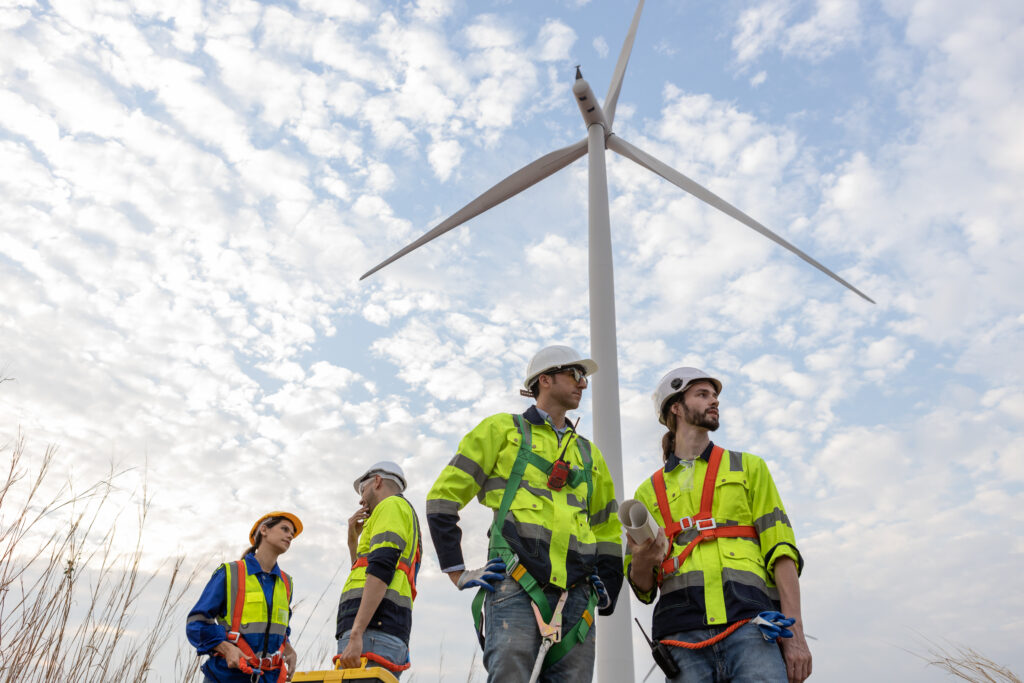
Emissions Reduction and Demand for Skilled Trades
Signal49 Research (formerly The Conference Board of Canada)Canada’s push to meet its climate targets will reshape both the construction sector and the broader demand for skilled trades. If policies outlined in the 2030 Emissions Reduction Plan (ERP) continue to take effect, demand for skilled trades in construction and supporting sectors (e.g., rail) will shift dramatically, driven by new sustainability standards, infrastructure priorities, and green technology advancements.
Sustainable Jobs -
 ON
ONeCampusOntario Microcredentials: Getting People into Programs and into Jobs
eCampusOntarioLaunched in 2021, eCampusOntario’s Micro-credentials Portal addresses skills mismatches in the labour market by offering short, industry-relevant learning programs.
Pathways to Jobs -
 ABBCNSON
ABBCNSONBridging Psychometrics and Competencies in a Technology Supported Youth Employment Pathway – Project Integrate
Ontario Tourism Education Corporation (OTEC)The project sought to gain insights into how digital tools could support the career decisions of young people in Canada and facilitate the work of employment service providers.
Tech and Automation -

Retaining Canada’s Healthcare Workforce
Signal49 Research (formerly The Conference Board of Canada)This research will examine how healthcare workers move into and within Canada. Through focus groups with representatives from regulatory bodies and healthcare educators and a thorough examination of data from the Canadian Institute for Health Information and provincial regulatory bodies, we will develop recommendations for retaining healthcare workers, distinguishing between strategies for domestically or internationally trained professionals.
-
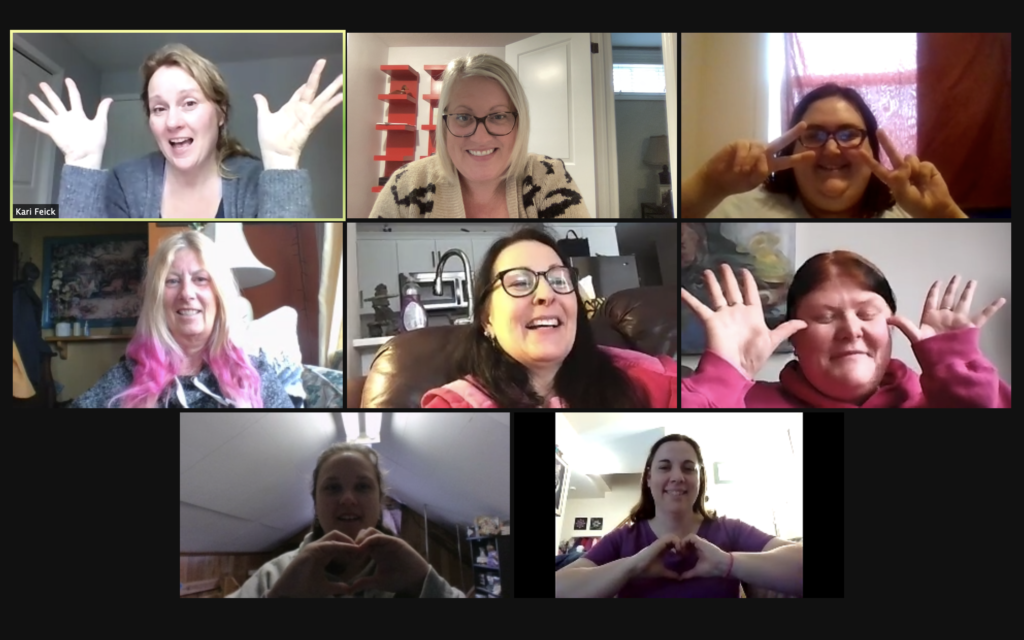 ABBCNLONSK
ABBCNLONSKIn Motion & Momentum+ (IM&M+)
Canadian Career Development FoundationIM&M+ is an intensive pre-employability program that supports people to address complex barriers to employment and make progress towards reaching their social and economic potential.
Pathways to Jobs -

Employment Impacts of Canada’s Emission Reduction Plan
Signal49 Research (formerly The Conference Board of Canada)This research examines the effect of the federal government’s Emission Reduction Plan (ERP) on Canada’s labour market.
Sustainable Jobs -
 QC
QCThe Impact of Artificial Intelligence on Employment, Productivity and Skills Development in Quebec
Institut du QuébecThis research project aimed to produce a report on the impacts of artificial intelligence (AI) on the Quebec labour market.
Tech and Automation -
 ON
ONReal Estate Development Incubator: A Model for Equitable Participation
MonumentalFutureBUILDS represents a new and inclusive approach to addressing Canada’s housing crisis. This project consisted of three phases: research, implementation and alumni engagement.
Inclusive Economy -

Recruiting and Retaining Indigenous Professionals
Signal49 Research (formerly The Conference Board of Canada)Indigenous professionals play a vital role in advancing economic reconciliation and expanding community-driven opportunities, yet they remain considerably under-represented in senior leadership roles in business, finance, and administration.
Inclusive Economy -

The Impact of Having Children on Careers
Environics Institute, Diversity InstituteThe findings of this report address two related issues. The first concerns the penalties women face when they become mothers, notably loss of employment income and diminished career opportunities. The second is the concern that younger adults in Canada today may be less interested than previous generations were in having children.
Inclusive Economy -
 ON
ONSupporting Mid-Career Workers with Disabilities
Ontario Tech University, 3+ Economic Development CorporationThis project, Supporting Mid-Career Workers with Disabilities, focused on addressing the employment barriers that persons with disabilities, particularly those aged 35 to 49, face in Canada.
Inclusive Economy -

Evidence-based Insights for Public Service Professionals Navigating the Workforce of the Future
Professional Institute of the Public Service of CanadaThe Professional Institute of the Public Service of Canada (PIPSC) created an online platform, called Navigar, to better prepare its over 70,000 members for the future by providing future-oriented career information.
Pathways to JobsTech and Automation -

OpportuNext
Signal49 Research (formerly The Conference Board of Canada)The OpportuNext platform, developed by the Conference Board of Canada with support from the Future Skills Centre, addresses this gap by providing a free, bilingual and user-friendly digital tool that helps users explore career options based on skill similarity, salary prospects and job outlook.
Pathways to JobsTech and Automation -
 MB
MBSuccess@Work Skills: Preparing Workers and Systems to Navigate Change
Manitoba Institute of Trades & TechnologyDeveloped in response to the challenges amplified by the COVID-19 pandemic, this program combined competency-based microcredentials, culturally relevant curricula, and wraparound supports to empower participants with the skills and confidence to thrive in their chosen fields—while also helping meet evolving workforce needs.
Inclusive EconomyPathways to Jobs -
 BCMBNSON
BCMBNSONEnhancing a National Recruitment System for the Unionized Construction Industry
SkillPlan: BC Construction Industry Skills Improvement CouncilThis project’s overall goal was to design and test virtual strategies to recruit more individuals, especially those from underrepresented groups (women, Indigenous Peoples, racialized people, newcomers and youth), to careers in the construction trades.
Inclusive Economy -
 NS
NSThriving Workplaces: A Dual-Client Approach to Career Services
MixtMode, Canadian Career Development FoundationThe project aims to improve employment outcomes by engaging both work seekers and employers in structured career navigation activities.
Pathways to Jobs -

Working with Black Communities
Black peoples in Canada experience widespread systemic anti-Black racism in education systems and the labour market. More needs to be done to name and address anti-Black racism in the skills ecosystem, including efforts to change employer behaviour to make workplaces more inclusive.
Inclusive Economy -

Indigenous Professionals Needed: Increasing Indigenous Representation in Healthcare in Canada
This project will develop insights that can be used to increase both the Indigenous talent pool and professional development for Indigenous people in healthcare professions in Canada.
-
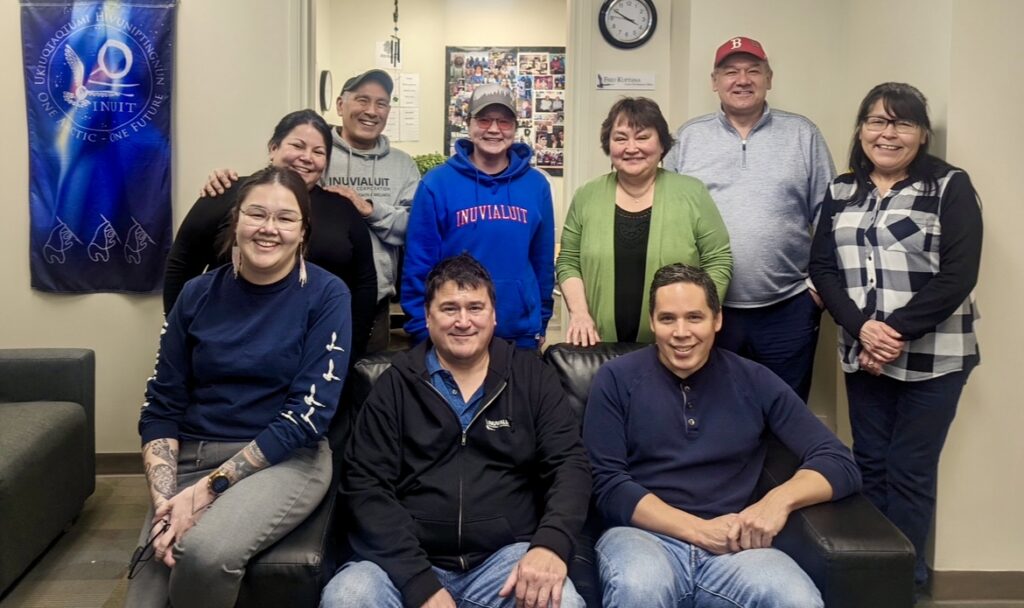 NTYT
NTYTInuvialuit Skills Matrix
Inuvialuit Regional Corporation (IRC)Seeking to augment its database, this project sought to create the first inventory of Inuvialuit employment, skills, training, Traditional Knowledge and education.
Inclusive Economy -

From Newcomers to Game-Changers: Improving Immigrant Skill Utilization in Key Sectors
Signal49 Research (formerly The Conference Board of Canada)Immigrants come to Canada with an abundance of skills and credentials, hoping to build better lives for themselves and their families. Yet many find themselves in jobs that do not reflect their full potential.
The Conference Board of Canada, on behalf of the Future Skills Centre, is researching immigrant skill mismatch (the underuse of immigrants’ skills in roles they are qualified for) and skill wastage (unemployment or employment outside their field of expertise) in three sectors with acute labour shortages and high availability of immigrant labour: health, construction, and accommodation and food services.
-
 QC
QCAnalysis of Programs for Welcoming Talented Immigrants
Concordia UniversityThis research project led by Concordia University investigated a range of onboarding strategies, focusing on the integration of immigrants with technical or trade skills into manufacturing SMEs.
Inclusive EconomyPathways to Jobs -

CRADLE+: Canadian Remote Access for Dementia Learning Experiences
Conestoga CollegeThis project aimed to expand on an already-established program known as Canadian Remote Access for Dementia Learning Experiences (CRADLE), a free and accessible dementia care training program aimed at UWCs.
Inclusive Economy -

Canadians worry about impact of trade war as pessimism about economy deepens
Environics Institute, Diversity InstituteConcerns about the impact of U.S. tariffs are contributing to a growing pessimism among Canadians about the economy, employment and their own financial situation.
-
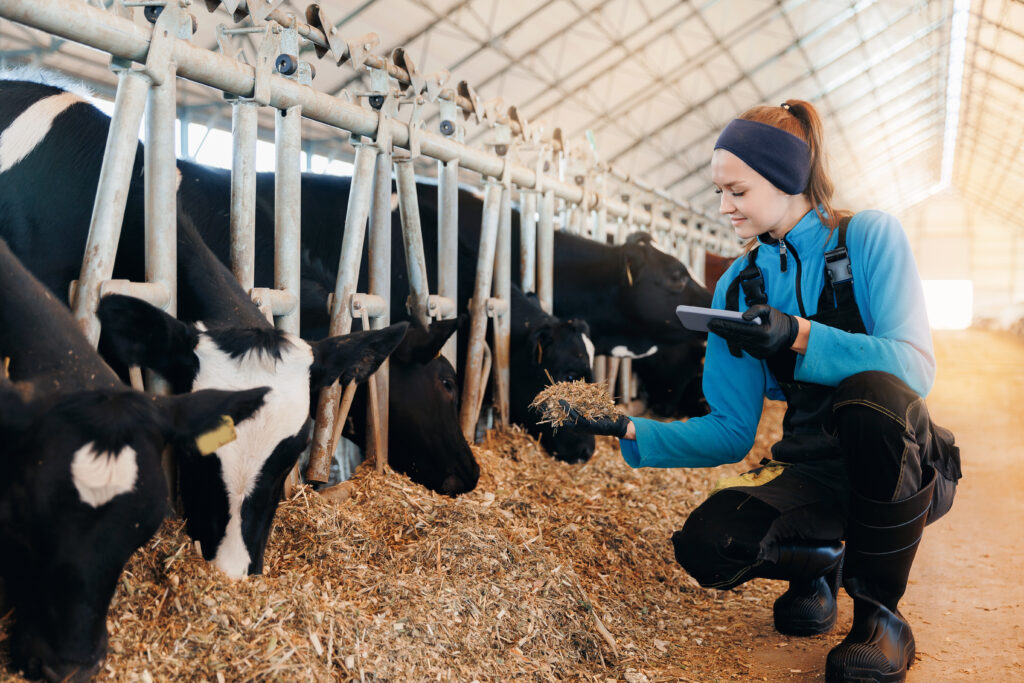
From Knives to Knobs: Sustainability and Smart Skills in Meat Value Chains
Signal49 Research (formerly The Conference Board of Canada)Smart manufacturing presents meat processors with an opportunity to bolster their sustainability performance, while enhancing quality and productivity. But for meat processors to harness smart manufacturing, their workers need the right skills.
Sustainable Jobs -

Smart Manufacturing in the Meat Processing Industry
Signal49 Research (formerly The Conference Board of Canada)Smart manufacturing in the meat processing industry increases the demand for advanced technical and digital skills, such as robotic operation, control, and maintenance, along with higher levels of education and training including college diplomas and other formal certifications.
Inclusive Economy -

Increasing Indigenous Physicians in Healthcare
Signal49 Research (formerly The Conference Board of Canada)There are longstanding health inequities for First Nations, Métis, and Inuit communities in Canada, but Indigenous physicians are well positioned to rebuild health services and trust among Indigenous communities.
Inclusive Economy -
 ON
ONCareer Advancement for Immigrant Professionals
Toronto Region Immigrant Employment Council (TRIEC)The Career Advancement for Immigrant Professionals (CAIP) program, initiated in Toronto, aimed to address the significant underemployment of skilled immigrant professionals in the Greater Toronto Area and beyond.
Inclusive EconomyPathways to Jobs -

Work-Integrated Learning
Work-integrated learning can be effective in developing technical and soft skills among learners at different levels, including in high schools, colleges and universities and in professional roles.
-

Beyond Forecasting Skills Supply
Signal49 Research (formerly The Conference Board of Canada)This research looks at a better way of forecasting the skills that are available in a labour market. Economic modelling has traditionally ignored the collection of skills that workers accumulate. But what if our models could remember the skills workers used to use?
Did you forget the skills you used at a previous job, or did you carry them with you into your next? How is supply of skills currently measured? Is there a better way?
We share our exciting new approach for forecasting Canada’s skills supply.
-
 MB
MBWork in Manitoba
Economic Development WinnipegThis project sought to address the challenges employers in the province were facing in connecting with the right talent and having to navigate multiple recruitment platforms with no guarantee that postings would reach qualified candidates.
Pathways to Jobs -
 MB
MBIndigenous ICT Development Centre
ID Fusion, FireSpiritThis project investigated the potential benefits of establishing an Indigenous ICT Development Centre to offer ICT services and training within local communities.
Pathways to JobsTech and Automation -
 ABNSON
ABNSONAdvanced Digital and Professional Training (AdaPT)
Diversity Institute, Blueprint ADE, Technation CanadaThe Advanced Digital and Professional Training (ADaPT) program is a sector-based training initiative designed to address the disconnect between the skills of postsecondary graduates and the needs of the IT sector.
Pathways to JobsTech and Automation -

Working Collaboratively to Close Skills-Related LMI Gaps
Labour market information (LMI) is a key pillar of a well-functioning workforce development system, yet considerable gaps remain in the generation, dissemination and uptake of skills-related LMI in Canada.
-
 AB
ABEnergy to Digital Growth Education and Upskilling Project
Calgary Economic DevelopmentThe Energy to Digital Growth Education and Upskilling Project (EDGE UP 2.0) is a sector-based training program designed to help displaced mid-career oil and gas professionals transition into IT roles in Calgary.
Pathways to JobsSME AdaptabilitySustainable Jobs -
 AB
ABCalgary Regional WIL Secretariate and Platform
Calgary Economic DevelopmentThis project sought to revitalize the Calgary regional labour market by developing a more inclusive and comprehensive model for coordinating work-integrated learning (WIL) opportunities.
Pathways to Jobs -
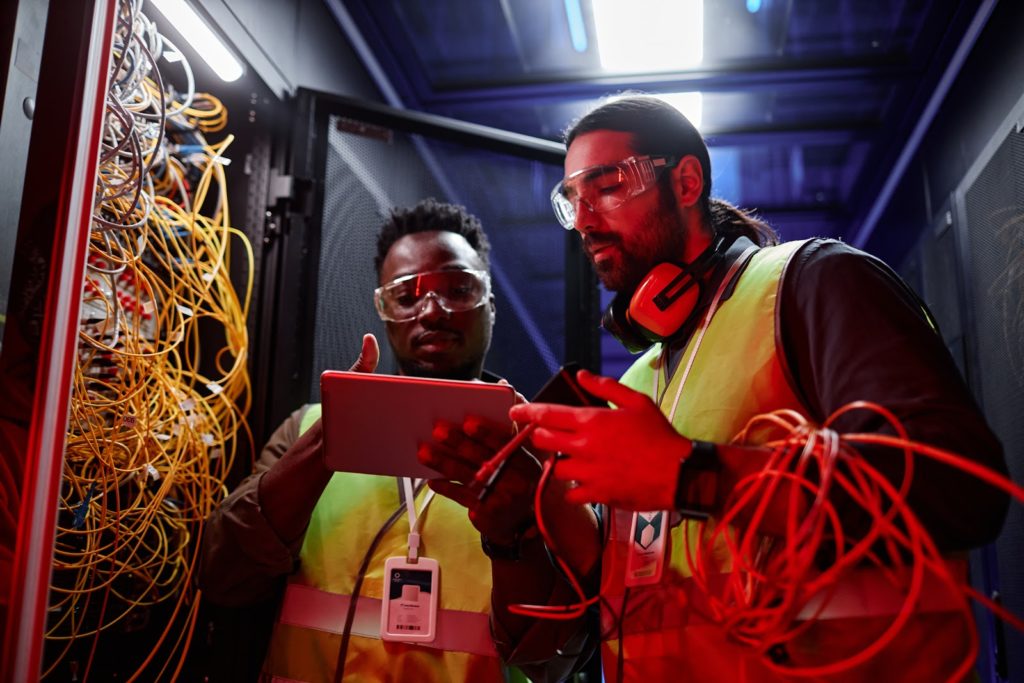 BCNBONQC
BCNBONQCLevel Up Skills Evolution: Scaling Up Sectoral-Based Microcredentials
EMC CanadaThe Level Up Skills Evolution project begins with a unique premise – what if employers were more in the lead for designing microcredentials? The project therefore aimed to address workforce challenges by developing and scaling sector-based micro-credentials to help employers navigate technological change, labour shortages, and training gaps.
Pathways to Jobs -

Optimizing Career Services: Resources for Post-Secondary Career Professionals
Signal49 Research (formerly The Conference Board of Canada)Career development professionals (CDPs) play an important role in preparing post-secondary students for the workforce. To do this effectively, they need access to high-quality, easy-to-use resources and labour market information.
-

Training for Tomorrow
Signal49 Research (formerly The Conference Board of Canada)Transitioning to a low-carbon economy will bring changes to the Canadian workforce.
The Conference Board of Canada, on behalf of the Future Skills Centre, is researching how measures to reduce greenhouse gas emissions will affect demand for skilled tradespeople in construction and how education and training programs can prepare to meet this demand. -
 YT
YTLearning From One Another: Labour Markets in Yukon
Signal49 Research (formerly The Conference Board of Canada)The economy in Yukon is expected to grow by 41 per cent between 2024 and 2045. Employment in the territory is expected to increase by 10 per cent, mainly driven by increases in employment in public administration and defence, and commercial and non-commercial services. Read the primer to get our full analysis.
Inclusive Economy -
 ON
ONLearning From One Another: Labour Markets in Northern Ontario
Signal49 Research (formerly The Conference Board of Canada)The economy in Northern Ontario has recovered from the effects of the COVID-19 pandemic and is expected to grow by 20 per cent over the next 20 years. However, the existing workforce is not able to fill the demand for labour in the region, which will continue to grow. This primer provides an overview of Northern Ontario’s labour market conditions. It is part of a multi-year collaborative research project which explores labour markets in Nunavut, Northern Ontario, and Yukon.
Inclusive Economy -

Mentorship in the Workplace: Employee Participation and Perspectives
Environics Institute, Diversity InstituteWorkplace mentorship programs can have numerous benefits for both participants and employers. There is evidence that having a career mentor can lead to greater compensation,…
Quality of Work -
 YT
YTLighting Up the North
YukonstructThe Lighting Up the North project from Yukonstruct aimed to strengthen the entrepreneurial and innovation ecosystem by supporting initiatives that build skills, tools and resources. The project funded seven unique initiatives with community partners to support the needs of entrepreneurs and innovators in the region.
Inclusive Economy -
 NTNUYT
NTNUYTTaking IT Digital
EntrepreNorthEntrepreNorth, which has been offering a cohort-based entrepreneurial growth program for Northern and Indigenous entrepreneurs, launched a project to develop an app to support their learners and alumni in building businesses, raising capital and creating impact within their own communities. The project sought to develop an accessible and inclusive business tool that would provide a streamlined way for these entrepreneurs to share and access resources to support the growth and impact of their businesses.
Inclusive EconomySME AdaptabilityTech and Automation -
 ABBCMBONQCSK
ABBCMBONQCSKDigital Technologies and the Big Data Revolution in the Canadian Agricultural Sector
University of Saskatchewan, Social Sciences and Humanities Research Council of Canada (SSHRC)Researchers at the University of Saskatchewan’s Canadian Centre for the Study of Co-operatives reviewed the literature to examine the response in Canada and elsewhere by farmers, agribusiness firms, agricultural organizations and governments to the emergence of big data generated by the use of the IoT in agricultural production processes.
Sustainable JobsTech and Automation -

Microcredentials
Microcredentials have attracted significant attention and promotion, particularly from post-secondary institutions. Recently, existing dialogue has accelerated about how to better align educational offerings with industry needs.
-
 ABBC
ABBCRapid Reskilling to Support Nature-Based Solutions and Green Infrastructure Projects in Canada
Environmental Careers Organization Canada (ECO Canada)The project aimed to retrain workers from the oil, gas, forestry and mining industries, enabling them to transition into roles that support environmental restoration and sustainability through nature-based solutions (NBS).
Sustainable Jobs -

Optimizing Career Services: Resources for Post-Secondary Career Professionals
Signal49 Research (formerly The Conference Board of Canada)Career development professionals (CDPs) play an important role in preparing post-secondary students for the workforce. To do this effectively, they need access to high-quality, easy-to-use resources and labour market information.
-
 MB
MBWinnipeg Newcomer Employment Hub
Magnet, Winnipeg Chamber of CommerceThe Winnipeg Chamber of Commerce launched the Winnipeg Newcomer Employment Hub (the Hub), as part of its Commitment to Opportunity, Diversity & Equity (CODE) program, to address barriers newcomers face in finding employment.
Pathways to JobsTech and Automation -

Inclusive STEM Pedagogies in K-12 Education
University of MontrealThe purpose of this project is to review research and literature that recognizes current strengths but also identifies gaps in existing resources. This will help properly inform future curricular and educational decisions that nurture strong foundations for diversity, equity, accessibility and inclusion in the digital workforce.
Inclusive EconomyPathways to Jobs -
 AB
ABAddressing Regional Labour Shortages
Northern Alberta Inst. of Technology (NAIT)Despite the labour shortage in forestry management in Canada’s North, there is a lack of innovative and engaging training methods and capacity to deliver reforestation skills to remote Indigenous communities.
To help meet the need for this training, and to make it accessible and more engaging in digital form, the Northern Alberta Institute of Technology (NAIT) created two courses that featured immersive, 360° photos and videos, and a tool kit for instructors who do not have in-depth technical knowledge on how to develop immersive curriculum content.Inclusive EconomyPathways to Jobs -
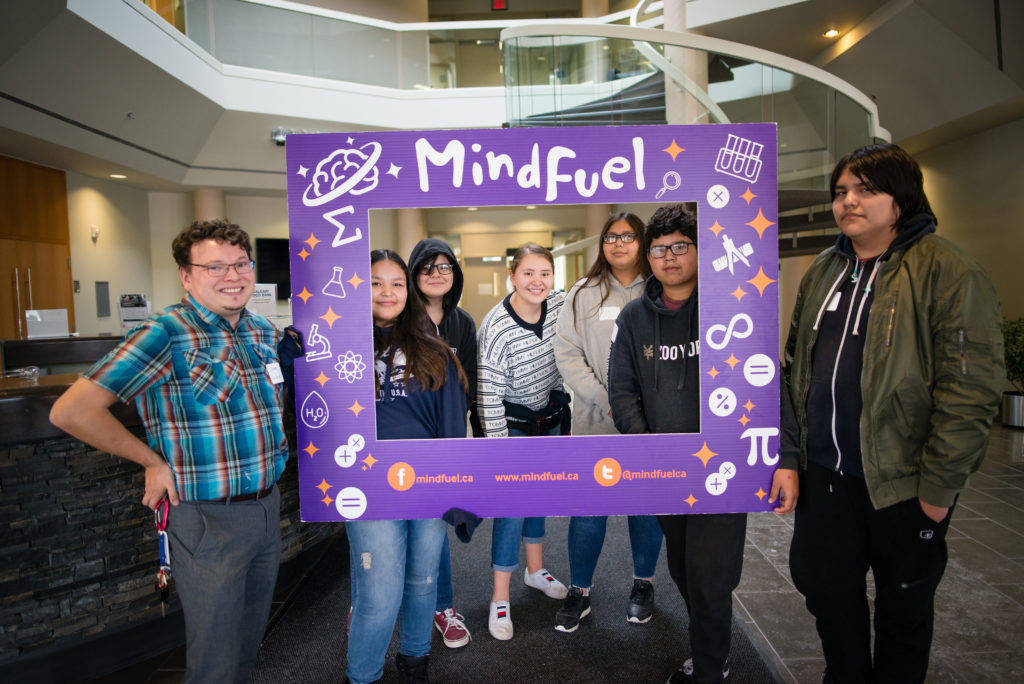 ABBCYT
ABBCYTTech Futures Initiative
MindFuel (Science Alberta Foundation)MindFuel came alongside Indigenous communities to address the barriers faced by Indigenous youth in rural and remote communities by implementing STEM and innovation programs for youth.
Inclusive EconomyTech and Automation -
 NUONYT
NUONYTLearning From One Another: Skill Gaps in Labour Markets in Northern Ontario, Yukon, and Nunavut
Signal49 Research (formerly The Conference Board of Canada)Northern Ontario, Yukon, and Nunavut share similar challenges to workforce development related to their shared Northern, rural, and remote contexts. Current challenges will only grow as sectors increasingly require more digital, leadership, business and administrative, and soft skills.
Inclusive Economy -

From Shortages to Solutions: Tackling Canada’s Critical Gaps in Healthcare, Trades and Tech
Signal49 Research (formerly The Conference Board of Canada)Canada is facing a dramatic workforce gap. The country lacks workers with technical skills and post-secondary education, such as engineers, tradespeople, nurses, and educators. This imbalance cost an estimated $2.6 billion in lost GDP in 2024. Training and reskilling are vital but will not be enough—or fast enough— to close the gap.
-

Practitioner Data Initiative: Building Data Capacity
Blueprint ADEBlueprint created the Practitioner Data Initiative (PDI), a pan-Canadian project that responds to data challenges nonprofits face.
-

Development of a National Agriculture and Agri-Food Workforce Strategy
Canadian Agriculture Human Resources Council (CAHRC)This project set in motion a series of initiatives aimed to generate the necessary insights and evidence required to develop a national workforce strategy for the Canadian agriculture and agri-food sector.
Pathways to JobsSustainable JobsTech and Automation -
 ON
ONBOLD: Better Outcomes for Laid Off Displaced Workers
Canadian Skills Training & Employment CoalitionPiloting alternative approaches to workforce adjustment, where support can be put in place even before a layoff happens, can confer significant benefits not only on affected workers but also the company and local community.
Inclusive EconomyPathways to Jobs -
 AB
ABDigital Transformation of Employment Programming
Alberta Association of Immigrant Serving AgenciesThe project tested digital infrastructure for online employment programming consisting of professional development/employment training content delivered through e-learning courses.
Inclusive EconomyTech and Automation -
 NBNSPE
NBNSPEA New Model for Workplace-Integrated Learning
Canadian Alliance for Skills and Training in Life Sciences (CASTL)The project aimed to enhance bioscience programming by implementing educational and training initiatives across three key streams: new-skilling, re-skilling and upskilling.
Pathways to JobsTech and Automation -

Working outside the box: Exploring self-employment as an inclusive employment pathway for neurodivergent Canadians
Signal49 Research (formerly The Conference Board of Canada)Can self-employment offer neurodivergent Canadians rewarding careers? For neurodivergent adults who face barriers to traditional employment pathways, self-employment may allow them to leverage their unique skills and talents.
Inclusive Economy -

Advancing Women in the Information and Communications Technology Workplace: A Review of Leading Practices
Diversity Institute, University of ManitobaThis report examines barriers faced by women in the ICT sector and devises strategies to improve representation, advancement and inclusion.
Inclusive EconomyQuality of Work -
 ON
ONVirtual Inclusive Learning Academy
Developing And Nurturing IndependenceUsing a person-centred and culturally appropriate approach, the VILA hub aimed to provide life skills, academic and job training, engagement, and work opportunities to adults with intellectual disabilities across diverse communities in Ontario.
Pathways to JobsTech and Automation -
 ABBCMBNBONQC
ABBCMBNBONQCBridging the Gap: Developing a Flexible Learning Platform for Reskilling and Upskilling
Bow Valley College, Georgian College, New Brunswick Community College, NorQuest College, Langara College, Red River College Polytech, Vanier CollegeThe project aimed to partner with other colleges and employers to identify in-demand jobs and their associated competencies requirements, and to develop and deliver micro-credentials that meet the specific needs of individual job seekers.
Pathways to Jobs -

Evaluation and Learning in the Skills and Training Ecosystem
The Future Skills Centre’s approach to evaluation and learning has evolved over time, reflecting the challenges of measuring social impact. It has shifted from a focus on common outcomes to a broader approach that embraces multiple methods for understanding impacts on individuals, institutions and systems.
-

Creating Inclusive Campuses: Neuroinclusive Policies and Practices in Postsecondary Education
Signal49 Research (formerly The Conference Board of Canada)In this research, we report on the findings of the first national survey of neurodivergent postsecondary students and recent graduates as well as in-depth interviews with neurodivergent students and graduates, and staff and leaders working in accessibility services.
Inclusive Economy -

The Study Buddy Program
Diversity Institute, Ontario Tech University, Jean Augustine Centre, Lifelong Leadership InstituteThe Study Buddy program connected families, children in grades K–12 and teacher candidates. It had three objectives: skills development among children and youth, particularly Black, Indigenous, racialized and newcomer populations; skills development among post-secondary students (tutors); and (3) skills and capacity development among parents and guardians.
Inclusive Economy -

DiversityLeads: Diverse representation in leadership – A review of 10 Canadian cities
Diversity Institute, University of ManitobaHave questions about our work? Do you need access to a report in English or French? Please contact communications@fsc-ccf.ca. How to Cite This ReportThe Diversity Institute….
Inclusive Economy -

An Equity Lens on Artificial Intelligence
University of TorontoThis paper explores the reasons behind AI’s impact on equity and quality (the ‘why’) and the ways in which AI influences these issues in practice (the ‘how’), offering insights for leaders, policymakers, and students on navigating current and future AI developments.
Tech and Automation -
 NLNTNUQC
NLNTNUQCInnovations in Indigenous Tourism Development in Northern Canada
Indigenous Tourism Association of Canada, Diversity InstituteThe project aimed to understand the challenges facing northern Indigenous women in tourism post-COVID and to co-create recommendations to support them.
Inclusive Economy -

Best Practices for Advancing Equity, Diversity and Inclusion in Manufacturing
Diversity Institute, Next Generation Manufacturing CanadaWhile research underscores the challenges in the manufacturing sector, considerable gaps exist in our understanding of the representation and barriers women and other equity-deserving groups face. This report draws upon Statistics Canada data, surveys, industry reports and publicly available resources to provide an overview of the current state and strategic challenges, and their intersection with EDI issues.
Inclusive Economy -

Developing Women Leaders in the Digital Economy
Diversity Institute, Women in Communications and TechnologyWomen in Communications and Technology (WCT), in collaboration with the Future Skills Centre and the Diversity Institute, implemented the Roberta Bondar STEM Career Development Program and, more recently, the Opening Doors program. These initiatives aim to equip women with the necessary skills, mentorship and networking opportunities to succeed in leadership roles.
Pathways to Jobs -

Bridging the Gender Gap: Skills for the Advancement of Women
Diversity Institute, University of ManitobaDespite having in-demand skills and high education levels, research shows that women’s careers continue to stall before senior leadership, leading to a significant lack of diverse representation on boards and at executive levels.
Inclusive EconomyPathways to Jobs -

Northern Tourism Recovery Incubator
Diversity Institute, Indigenous Tourism Association of CanadaIndigenous tourism is particularly crucial for Northern Canada, where it provides economic benefits and fosters community development, wellness, cultural learning and environmental stewardship.
Inclusive Economy -
 ON
ONWorkplace Inclusion Charter Expansion
City of KingstonThis report outlines the implementation of the City of Kingston’s Workplace Inclusion Charter, which was launched in partnership with KEYS Job Centre in 2019. The goal of the City of Kingston’s Workplace Inclusion Charter was to serve as a system that would guide employers, service providers and equity-deserving groups in the labour market in creating more inclusive work environments and facilitating access to new talent among local businesses and employers.
Inclusive Economy -

Right Brain, Left Brain, AI Brain: Implications of AI on Jobs and Skills Demand in Canada
The DaisEmployer demand for AI-complementary skills, such as critical thinking and leadership, is steadily rising.
Tech and Automation -

A Neurodivergent Student’s Guide
Signal49 Research (formerly The Conference Board of Canada)This guide includes key information on how to prepare for higher education as a neurodivergent learner. These tips and tricks are meant to help set you up for success and make your transition easier.
Inclusive Economy -
 BCON
BCONHow International College Students Use Career Supports
Signal49 Research (formerly The Conference Board of Canada)To fully harness the potential of international students and maximize the investments made in their education and settlement, it is crucial that those who stay in Canada after graduation transition smoothly into the labour market.
Inclusive Economy -
 BCON
BCONInternational Students’ Transition to Work
Signal49 Research (formerly The Conference Board of Canada)International college students tend to have poorer employment outcomes than their Canadian-born peers. Except for those in STEM fields, international college graduates earn 15 to 23 percent less after graduation. They face multiple labour market barriers, including challenges with networking, language, discrimination, and job interviews.
Inclusive EconomyPathways to Jobs -

Waiting for Takeoff: Implications of AI on Skills and Productivity in Canada
The DaisThis study highlights the need for nuanced policy approaches to support effective AI implementation in the economy.
Tech and Automation -

AI-PowerED: Will AI Change Postsecondary Teaching and Learning?
Signal49 Research (formerly The Conference Board of Canada)What are the perceived impacts of generative artificial intelligence (AI) on postsecondary teaching and learning? In this research, we discuss the findings of our interviews with 42 individuals who are leading or supporting AI integration in postsecondary institutions (PSIs).
Tech and Automation -

Digital Transformation of Schools and Training Centres
Université de SherbrookeThe study underscored the importance of fostering a supportive learning culture for successful digital transformation. It highlighted the need for school leaders to mediate effectively between governmental policies and practical applications within schools.
Tech and Automation -
 NU
NULearning From One Another: Labour Markets in Nunavut
Signal49 Research (formerly The Conference Board of Canada)As key industries in Nunavut recover from the pandemic, the economy is expected to grow over the next 20 years. However, skills mismatches and other challenges continue to limit the capacity of the resident labour force to satisfy labour market demands.
Inclusive Economy -

From Campus to Career
Signal49 Research (formerly The Conference Board of Canada)This research examines labour market outcomes of international college students studying in Canada. How do employment outcomes of international students differ from those born in Canada? What challenges do international college students face finding meaningful work? How can colleges improve support for these students?
Inclusive EconomyPathways to Jobs -

Hidden Struggles: Situating Neurodiversity in Post-Secondary Education
Signal49 Research (formerly The Conference Board of Canada)In this research, we look at the challenges neurodiversity poses for both post-secondary institutions and neurodiverse students. This study will be the first in Canada to explore how different types of institute approach inclusion for neurodiverse students.
Inclusive Economy -

The Future of Work: Addressing Skill Imbalances in Canada
Signal49 Research (formerly The Conference Board of Canada)We’ve lost our balance. Skills shortages were especially acute during the post-pandemic recovery. A Statistics Canada survey from 2022 revealed that over half of employers were grappling with skills gaps and more than two-thirds were struggling to find candidates with the necessary skills.
Pathways to Jobs -

AI and the Shifting Landscape of Future Skills and the Future of Work
Diversity Institute, Environics InstituteThis study aims to understand an existing gap between employers and employees regarding AI adoption and skills.
Tech and Automation -

Making the Invisible Visible: Neurodivergent Students’ Experiences in Canadian Higher Education
Signal49 Research (formerly The Conference Board of Canada)Despite increasing enrolment rates, neurodivergent students are less likely to graduate than their neurotypical peers. Canadian postsecondary institutions (PSIs) are striving to make post-secondary education…
Inclusive Economy -

How working from home is affecting the workplace
Environics Institute, Diversity InstituteThe COVID-19 pandemic caused an enduring shift in workplace culture in Canada by dramatically increasing the number of employees who work from home. Initially, the…
Quality of Work -
 ON
ONReality, Education and Applied Life Skills (R.E.A.L.) School
Urban Rez Solutions Social EntrepriseUrban Rez Solutions Social Enterprise developed Reality, Education and Applied Life Skills (R.E.A.L.) School so that Black, Indigenous and racialized youth in socio-economically challenged neighbourhoods can identify and pursue their career interests.
Inclusive Economy -

Rapid ‘On-The-Job’ Employee Upskilling for In-Demand Skilled Jobs: Higher Productivity, Retention and Career Pathways
Work-Based Learning ConsortiumThe project, a follow-up to a previous collaboration between Future Skills Centre (FSC) and the Work-Based Learning Consortium (WBLC), focused on improving the effectiveness and efficiency of upskilling in several streams of work.
Pathways to JobsSME Adaptability -

Artificial Intelligence Talent in Canada
Signal49 Research (formerly The Conference Board of Canada), Vector InstituteWith AI becoming part of more and more business functions, cultivating AI talent is essential for advancing development and adoption of AI technologies in Canada.
Tech and Automation -
 NUONYT
NUONYTLearning from One Another: Economic and Labour Forecast for Northern Ontario, Yukon, and Nunavut
Signal49 Research (formerly The Conference Board of Canada)This project, undertaken for Canada’s Future Skills Centre, drew in various Indigenous, government, and post-secondary partners from Northern Ontario, Yukon, and Nunavut. It features a labour market analysis and economic forecast for each region from 2024 to 2045, as well as descriptions of the in-demand skills and key challenges to workforce and skills development in these Northern regions.
Inclusive Economy -
 AB
ABExperiential Learning in Innovation, Technology, and Entrepreneurship (ELITE) Program for Black Youth
University of AlbertaThis initiative aimed to close workforce disparities by equipping Black youth with practical skills in high-demand areas like robotics, automation and advanced manufacturing.
Inclusive Economy -
 ABBCNSONQC
ABBCNSONQCUpskilling Canadians for In-Demand Tech Careers
NPower CanadaNPower Canada’s programs aim to provide unemployed and underemployed individuals from equity-deserving groups with the skills needed to launch meaningful digital careers.
Inclusive EconomyTech and Automation -
 ON
ONCRAFT
OCAD UniversityThis project aimed to foster resilience among creatives through the development and testing of an online marketplace based on a platform cooperative model—an equitable and democratic business structure designed to empower rather than exploit creatives.
Pathways to Jobs -
 ON
ONPath To Customer Success
The Career FoundationThis project focused on the intersection of women who balance the primary responsibility of caregiving and domestic work; are predominantly Indigenous- and Black-identified; and were working in the retail sector when the pandemic hit.
Pathways to Jobs -
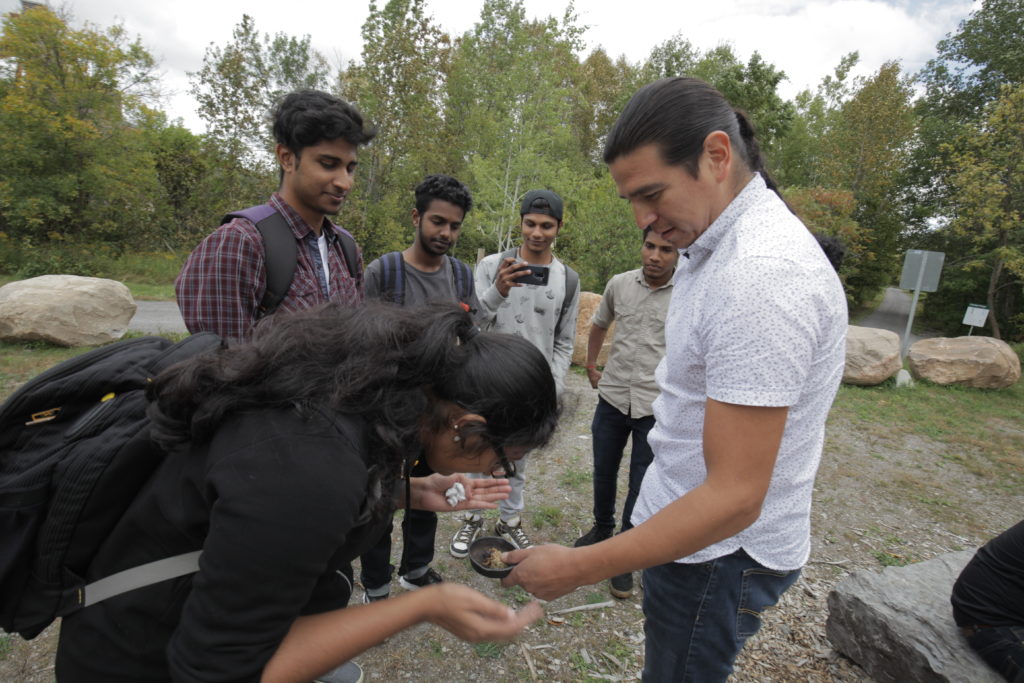 ON
ONCapturing Change in Indigenous Labour Markets: Local Approach, Pan-Canadian Impact
The Sir Sandford Fleming College of Applied Arts and TechnologyThis initiative aimed to consolidate and enhance accessibility to Indigenous-specific LMI by developing a new Indigenous LMI system.
Inclusive Economy -
 ABBCMBONSK
ABBCMBONSKVirtual, Immersive Learning and Career Labs: The New Normal for Food and Beverage Manufacturers
Food Processing Skills CanadaFood Processing Skills Canada (FPSC) launched the iFood360° pilot project to explore how SMEs with limited resources could use VIL technology to foster growth and enhance workforce skills.
Pathways to Jobs -
 BCON
BCONNorthern Entrepreneurs Accessing Training (NEAT)
Contact NorthContact North implemented the Northern Entrepreneurs Accessing Training (NEAT) project to improve accessibility to skills training for Indigenous entrepreneurs and their employees.
Inclusive EconomySME Adaptability -
 MB
MBPreparedness for Learning (Learner Shock)
University of ManitobaIn this pilot, project organizers assembled an advisory group, conducted a survey that included 943 participants and performed an environmental scan to inform the development of training modules for mid-career workers in Manitoba aged 18 years or older.
Pathways to Jobs -
 ON
ONThe Autonomous Microfactory: Skills Development Training Program
Ryerson University – Creative Technology Lab @ FCADIn the early stages of the COVID pandemic, many manufacturing processes had to shut down due to the lockdowns and the need for social distancing. The Creative Technology Lab at Toronto Metropolitan University (TMU)—a microfactory manufacturing model—intended to address these challenges and allow production to continue and adapt.
Pathways to Jobs -
 ON
ONFrom Policy to Action: Building Infrastructure for Social and Economic Impact
City of TorontoAnchorTO, established by the City of Toronto in 2015, formed a network with 18 public sector institutions to embed community wealth-building practices into their work, primarily within their procurement strategies.
Inclusive Economy -
 BC
BCLearning Outside Together: Incorporating Traditional Wisdom and Promising Practices to Futureproof Childcare Programs
ECEBC – Early Childhood Educators of British ColumbiaIn this project, Early Childhood Educators of British Columbia (ECEBC) sought to mitigate the risk of COVID-19, all the while promoting newer types of outdoor learning that specifically blended traditional Indigenous and Western knowledge systems.
Inclusive Economy -

Mind Your Health
Not 9 to 5The “Mind Your Health” project, initiated by Not 9 to 5 in Canada, addressed the acute mental health crisis in the hospitality sector.
Inclusive EconomyQuality of Work -
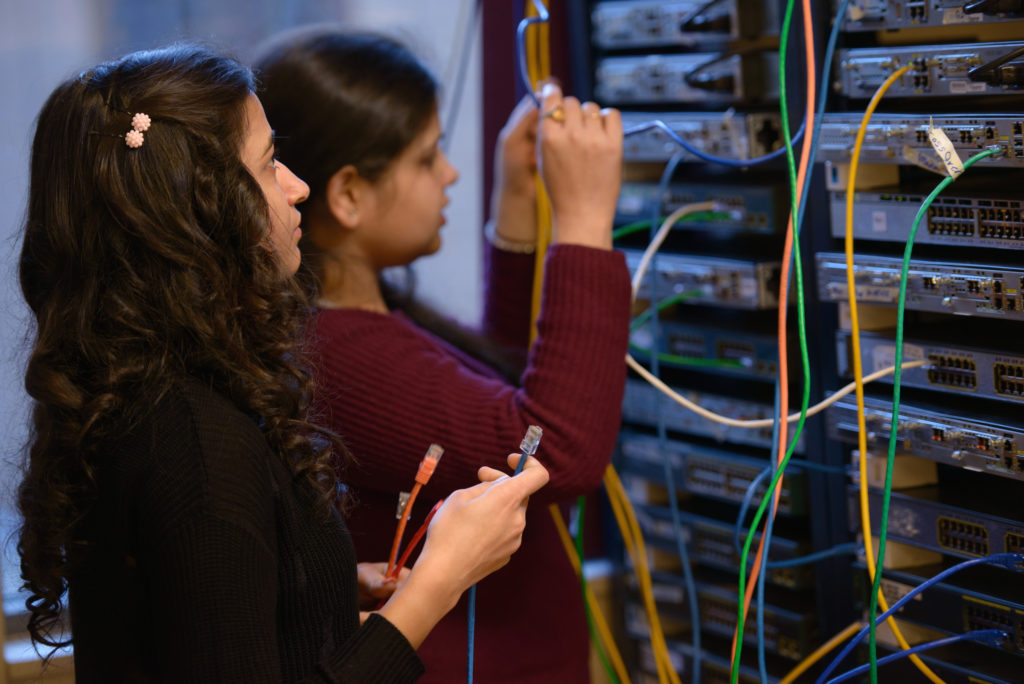 SK
SKShock-Proofing Postsecondary: Digital Transformation in Applied Learning
Saskatchewan PolytechnicThis project, initiated by Saskatchewan Polytechnic, aimed to address the challenges in online education exposed by the COVID-19 pandemic.
Tech and Automation -
 NBNLNSPE
NBNLNSPECollege Transformation
Atlantic Colleges AtlantiqueThe “College transformation des collèges” project aimed to enhance accessibility to postsecondary education for equity-seeking groups in Atlantic Canada.
Inclusive EconomyPathways to Jobs -

Enhancing Career Prospects and Well-Being for Canadian Youth
To stem the recent downturn in labour market conditions of youth and to lay the groundwork for them to play a pivotal role in fostering growth and inclusion, it is imperative to address and dismantle the multiple and intersectional barriers they encounter.
-
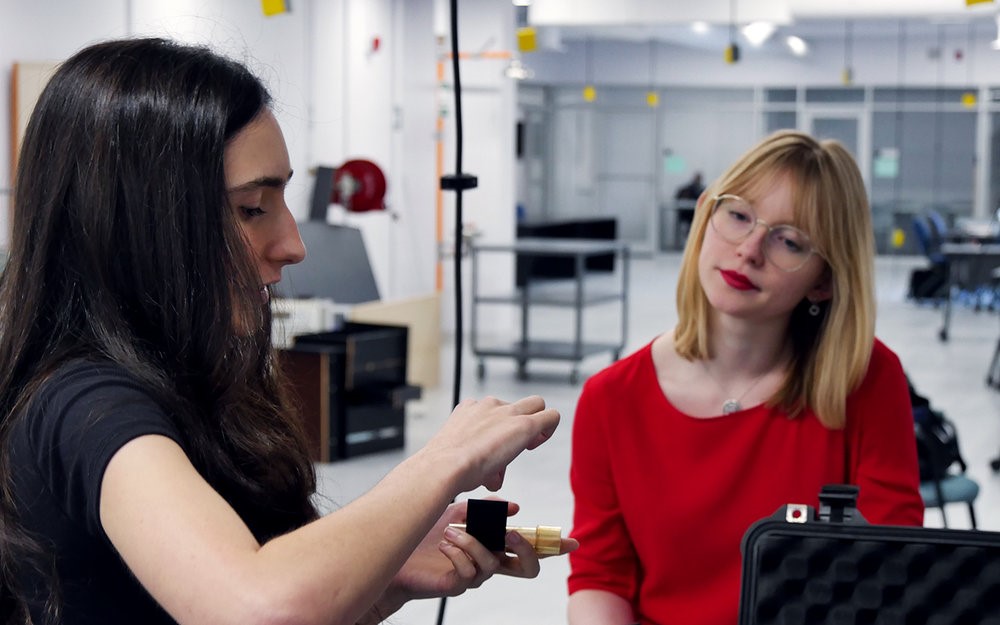
MindFrame Connect
Dalhousie University, Diversity InstituteResearch shows that women and racialized entrepreneurs are often disadvantaged from a network perspective, underlining the need to foster a more inclusive entrepreneurial ecosystem that includes mentoring.
SME Adaptability -

Black African and Caribbean Entrepreneurship Leadership (BACEL)
Black Business and Professional Association, Diversity InstituteThe overarching goal of this program is to empower Black entrepreneurs across Canada through comprehensive skills building, mentorship and networking opportunities designed to address the needs of these entrepreneurs at different stages of their journeys, including ideation, validation and scaling up.
Pathways to JobsSME Adaptability -

Building Resiliency and Sustainability for the Bio-Economy to Withstand Disruption
BioTalent CanadaLed by BioTalent Canada, the project “Building Resiliency and Sustainability for the Bio-economy to Withstand Disruption” tackled pressing issues faced by the Canadian bio-economy during the COVID-19 pandemic.
Pathways to JobsSME Adaptability -
 AB
ABExamining the Outcomes of Zero-Fee Education in Building a Resilient, Inclusive Economy in Rural Alberta
University of AlbertaThis project aimed to provide free training to underserved populations and build resilience among workers in the community through skills acquisition in the midst of ongoing economic transformation and uncertainty.
Inclusive EconomyPathways to Jobs -

What We Know and What We Need to Know about Adapting Experiential Learning to the Digital Economy
Carleton UniversityThis project reviewed the management literature on the digital economy to better understand what knowledge and skills managers need to bring about a more equitable version of the digital economy, and how managers could learn these critical skills.
Inclusive EconomySME Adaptability -
 ABBCSK
ABBCSKSkills Match — The Energy Fit
Energy Safety CanadaThe Skills Match—The Energy Fit project had the broad goal of addressing the skills gap in Canada’s energy industry by using innovative tools, namely virtual reality (VR) technology and an interactive website, to facilitate career transitions.
Inclusive EconomyPathways to Jobs -

Long-Term Labour Market Scarring on Youth from Economic Shocks
Century InitiativeYoung people today are facing the lasting effects of the pandemic while grappling with challenges like the cost of living, the housing crisis, and accelerating climate impacts. For those reasons, it is important to think about policy responses that will help dampen the scars associated with the pandemic and mitigate future scarring.
Inclusive Economy -
 ON
ONMicro but Mighty: Sector-Specific Microcredentials for a Recovering Hospitality and Food Service Industry
Hospitality Workers Training Centre (HWTC)The Hospitality Workers Training Centre (HWTC) developed and launched sector-specific microcredentials as a promising solution to the sector’s increased demand for short and cost-effective training solutions.
Pathways to Jobs -
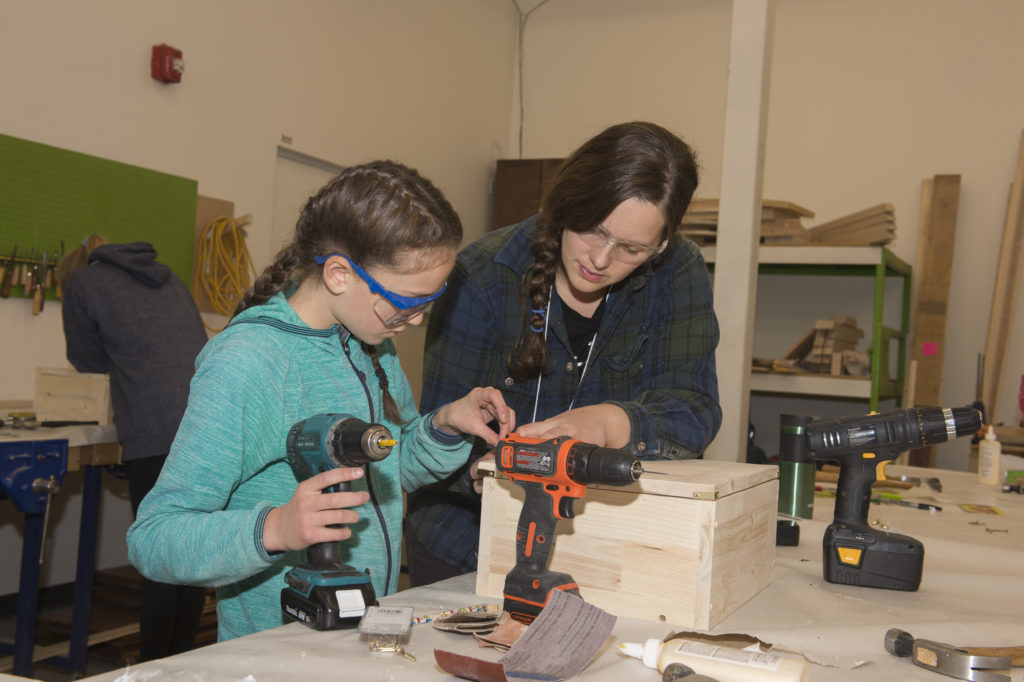 YT
YTDoing It Right
Yukon Women in Trades and TechnologyThe Doing It Right project, based in the Yukon, sought to address the barriers faced by women and gender-diverse individuals in the skilled trades.
Inclusive Economy -

Digital Fluency for the Workforce
Humber CollegeThis project aimed to enhance digital fluency among under-represented groups, including youth, newcomers, racialized individuals and people with essential skills gaps.
Tech and Automation -
 ON
ONArtWorksTO
Toronto Arts Foundation – Neighbourhood Arts Network, City of Toronto, OCAD University, The Remix ProjectIn an effort to more accurately reflect the diversity of the population, there is a great demand for equity-deserving artists across the arts and culture sector. However, careers in arts and culture most often involve non-traditional employment, with professionals taking up multiple employment opportunities, including self-employment, entrepreneurship and contract jobs within a range of organizations.
Inclusive EconomyPathways to Jobs -
 NUONYT
NUONYTLearning From One Another: Building a Stronger Skills Development Landscape in Nunavut, Northern Ontario, and Yukon
Signal49 Research (formerly The Conference Board of Canada)Skilled trades are a priority and among the top occupations in demand in Nunavut, Northern Ontario, and Yukon between 2024 and 2045; meeting this demand remains a persistent concern. Which type of organizations play a key role in sustaining Northern trades? What are the factors that impede Indigenous and Northern students from working in the trades even after they’ve participated in training programs? What plans are in the works that will allow for sustaining training, collaboration, and reduction in duplication in skills development services? Read the impact paper for a look at three programs that are making a difference, and an analysis of more services and approaches that could meet the demand for skilled trades in Canada’s North.
Inclusive Economy -

Health and Social Services Professionals’ Skills in Interprofessional Collaborative Practices in the Telehealth Context
Université de SherbrookeThis project focused on the challenges and necessary competencies for effective interprofessional collaboration in virtual care settings, which were highlighted by the rapid shift to virtual health care during the COVID-19 pandemic.
Tech and Automation -
 ON
ONBe EPIC: Dementia Training for Mid-Career Workers
Western UniversityPersonal support workers (PSWs), who provide direct formal care to persons living with dementia (PLWD), are often under-trained on how to respond to the complex communication impairments and responsive behaviours of PLWD.
Tech and Automation -

Reimagining Experiential Learning in Online Learning for the Digital Economy
University of Ottawa, Social Sciences and Humanities Research Council of Canada (SSHRC)This paper synthesizes and identifies the gaps in the research on online experiential education.
Pathways to JobsTech and Automation -

How Are Educators Navigating the AI Revolution?
Signal49 Research (formerly The Conference Board of Canada)In this research, we examine whether post-secondary educators are using generative AI tools in their teaching practice and discuss their concerns about this emerging technology.
Tech and Automation -

Lift/Futur en Tête: What Works for Work? Employment Integration in Youth Service Hubs Across Canada
CAMH: The Centre for Addiction and Mental HealthYouth mental health is closely tied to young Canadians’ economic participation. Not only do mental health challenges act as a barrier to entering the labour market and pursuing educational credentials, but youth who are not in employment, education or training (NEET) are at greater risk for declines in mental health.
Inclusive EconomyPathways to Jobs -

Indigenous Youth in Finance: Navigating a Complex Path
Signal49 Research (formerly The Conference Board of Canada)With Indigenous youth a rapidly growing force in the Canadian labour market, the education, financial, and non-profit sectors can explore pathways to help choose careers in finance and management.
Inclusive EconomyPathways to Jobs -
 ABNSONQC
ABNSONQCCapacity building for Canadian small and medium-sized enterprises: Skills Bridge
Ontario Chamber of CommerceThis project sought to understand SME skills and training needs and barriers faced in accessing skills training and talent.
SME Adaptability -

Gender, diversity and discrimination in the workplace
Environics Institute, Diversity InstituteWorkplace discrimination in Canada is a significant issue that affects a wide range of employees and has an impact on broader workplace culture. Discrimination in…
Inclusive Economy -

Unemployment in Canada: A report from the Survey on Employment and Skills
Diversity Institute, Environics InstituteThe COVID-19 pandemic disrupted employment in many ways and reshaped patterns of work. This report works to better understand the conditions that impact unemployment and that keep individuals from finding a job that fits.
Pathways to Jobs -

Sustainable Jobs for Economic Growth
Green-related skills and knowledge are growing in significance and are becoming widespread across many sectors and occupations, requiring more workers to upskill by building upon their existing competencies.
Sustainable Jobs -
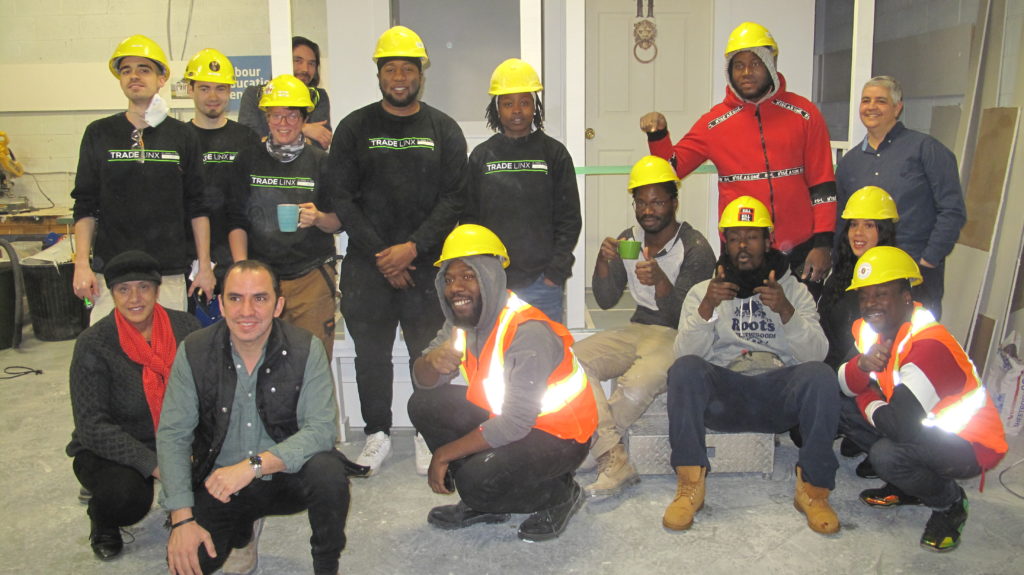 ON
ONWorkforce 2030: Rapid Upskilling for Green-Building Occupations
Canada Green Building Council (CaGBC)By 2030, the Canada Green Building Council (CAGBC) estimates that with the appropriate framework and investments in place, the Canadian green-building industry could support approximately 1.5 million direct jobs. In Ontario alone, over 100,000 new construction workers are needed in the next 10 years to keep pace with future demand and retirements.
Inclusive EconomyPathways to JobsSustainable Jobs -
 NT
NTBuilding Local Capacity for Community-based Micrometeorological Monitoring
University of MontrealNorthwestern Canada is experiencing double the rate of climate warming compared to the global average, impacting water resources and regional climate. To track these changes, a network of ten eddy covariance (EC) towers—which allow for the tracking of greenhouse gases—were installed across the Northwest Territories. However, the lack of local expertise jeopardizes their upkeep and subsequently the data they track.
Inclusive EconomySustainable Jobs -
 BCNU
BCNUFisheries for Economic and Environmental Development in the North (FEED the North)
Ocean Wise Conservation AssociationThe FEED the North project, spearheaded by the Ocean Wise Conservation Association, targeted economic and environmental challenges in Nunavut, which were intensified by the COVID-19 pandemic and by climate change. This initiative aimed to merge traditional Inuit knowledge with Western science, enhancing sustainability in local fisheries and bridging Indigenous and Western environmental conservation methods.
Inclusive EconomySustainable Jobs -

Starting a new business in Canada: A report from the Survey on Employment and Skills
This study provides insights into Canada’s entrepreneurial landscape, highlighting regional differences, demographic disparities, and motivations for self-employment.
SME Adaptability -
 NSON
NSONMicro-credentialing for the Canadian Aviation and Aerospace Industry
Canadian Council for Aviation & AerospaceThe Canadian aviation and aerospace industry currently faces challenges recruiting, training and retaining a qualified workforce. To address this issue, the Canadian Council for Aviation and Aerospace (CCAA) developed and tested a digital learning resource and a stackable micro-credential framework.
Tech and Automation -

Beyond hours: Piloting an alternative to tracking and understanding apprentice competency in Canada
Canadian Apprenticeship ForumThe persistence of labour and skill shortages within the trades is exacerbated by challenges with on-the-job training and skills recognition. The prevailing methods to document and formally recognize the skills that apprentices acquire through workplace learning are outdated.
Tech and Automation -

Teaching Green Skills What Actions Are Post-Secondary Institutions Taking?
Signal49 Research (formerly The Conference Board of Canada)The federal government has committed to having the country achieve net-zero emissions by 2050. Post-secondary institutions (PSIs) play a key role in helping Canada reach this goal because they equip students with the skills and know-how needed to transition to a more sustainable economy. These multi-faceted competencies are broadly considered to be green skills.
Sustainable Jobs -

What Works for Newcomer Integration
Despite the overall success of Canada’s immigration system, a number of challenges persist. When compared to other nations, labour market mobility for newcomers in Canada is not as strong as other dimensions of migrant integration.
Inclusive Economy -

Skills and productivity: Which skills shortages are impacting Canadian productivity?
Signal49 Research (formerly The Conference Board of Canada)Canada has a productivity problem. Labour productivity growth—the amount of output produced per hour worked—has stalled. The Canadian economy’s labour productivity at the end of 2023 was around the same as it was in 2017. This is the second time that Canada’s productivity growth has been notably weaker than the United States’ in
recent decades, with the first occurring between 2003 and 2012.Pathways to Jobs -
 ON
ONDiabetic foot care and lower limb preservation: Evolving a value-based health care initiative in Ontario
Signal49 Research (formerly The Conference Board of Canada)This issue briefing examines the contextual specifics of the diabetes foot care and limb preservation (DFCLP) pathway components, providers, and care settings involved, and the patient populations they serve.
Inclusive Economy -

The skills to work together: Strengthening interprofessional collaboration in diabetic foot care
Signal49 Research (formerly The Conference Board of Canada)Which skills do healthcare professionals in Canada need to bring to interprofessional foot care teams? What are the three types of necessary skill sets for interprofessional collaboration described in this briefing?
-

The next frontier in Canada’s agri-food sector: Technology-driven labour and skills transitions
Signal49 Research (formerly The Conference Board of Canada)This report provides an overview of the technological trends and occupational employment changes in Canada’s agri-food sector.
Sustainable JobsTech and Automation -
 ON
ONRe-skilling Displaced Retail Workers
Venture for CanadaThe Re-skilling Displaced Retail Workers project sought to support the design of a re-skilling program for displaced Ontario retail workers, with a focus on racialized or Indigenous youth.
Inclusive EconomyPathways to Jobs -

Luminary: Advancing Indigenous innovation for economic transformation, employment and well-being
Indigenous WorksIndigenous Works, a national Indigenous not-for-profit organization, developed the Luminary Research and Innovation Project to enhance innovation in Indigenous business environments, with the knowledge that more Indigenous-led research is needed to catalyze innovation and community well-being.
Inclusive Economy -

The heart of the matter: Understanding hiring demand for social and emotional skills
Signal49 Research (formerly The Conference Board of Canada)This briefing looks at the hiring demand for social and emotional skills across the country for different industries and occupation levels.
-

Social and emotional skills in the workplace: Insights from Canadian employers
Signal49 Research (formerly The Conference Board of Canada)This briefing presents findings on recruiting for social and emotional skills based on interviews with human resources professionals as well as analysis of Canadian knowledge-based job postings data.
Pathways to Jobs -

Employers’ insights on social and emotional skills
Signal49 Research (formerly The Conference Board of Canada)This executive summary introduces insights into recruiting for social and emotional skills based on interviews with human resources professionals as well as analysis of Canadian knowledge-based job postings data.
-
 ABBCMBNLNSONPESK
ABBCMBNLNSONPESKEmployability Skills Assessment Tool
Futureworx Society, Blueprint ADEIn today’s labour market, employers value social and emotional skills (SES), such as adaptability, collaboration and creativity. While there are many programs in place to help individuals develop SES, they overwhelmingly target children and youth and face limitations due to observer bias and inaccurate self-assessments. To address these gaps, Futureworx developed the Employability Skills Assessment Tool (ESAT), an online tool that supports the assessment and development of SES.
Pathways to Jobs -

Who is using generative AI in higher education?
Signal49 Research (formerly The Conference Board of Canada)In this research, we analyze the results of a survey of 2,401 post-secondary students in Canada on their experiences, attitudes, and challenges regarding the use of generative artificial intelligence (AI).
Tech and Automation -
 BC
BCNorth Coast Skills Hub
Hecate Strait Employment Development SocietyThe Hecate Strait Employment Development Society (HSEDS) developed WorkLabNorth, an online career development and training platform tailored to rural and remote communities in Northwest British Columbia.
Inclusive Economy -
 ON
ONFuture-Proofing the Personal Support Worker Workforce: Toward Confidence, Competence and Resilience
University Health Network and Women’s College HospitalThe University Health Network (UHN) team collaborated with new and existing partners to develop and launch education and advocacy resources to increase PSW competence, confidence and resilience in providing safe and effective care.
Inclusive Economy -
 MBSK
MBSKEmpowering the Northern Workforce: Information Technology Readiness in the North
University College of the NorthThe University College of the North (UCN) developed the Information Technology Readiness North (InTeRN) program, which is exclusively designed for Northern Indigenous women.
Inclusive EconomyTech and Automation -
 ON
ONResilience of Newcomer Women in Northwestern Ontario: Overcoming Economic Shock Due to the COVID-19 Pandemic
Lakehead UniversityThis project explored the employment challenges and recovery prospects of newcomer women in northwestern Ontario post-COVID-19.
Inclusive Economy -
 NBNLNSPE
NBNLNSPEFuture of Work Skills Development Program
Greater Fredericton Community Economic Development Agency Inc (operating as Planet Hatch)This project targeted the integration of human-centric skills—like emotional intelligence—with technical competencies, thereby addressing the inadequacies of traditional educational pathways in preparing students for future job markets.
Pathways to Jobs -
 NT
NTEntrepreneurial Skills in the North: Insights from Aurora College
Aurora CollegeAurora College conducted a feasibility study to assess the viability of establishing an Indigenous Business Centre of Excellence (IBCE).
Inclusive EconomyPathways to Jobs -

Driving innovation through inclusion: ACCELERATE Leadership
Coalition of Innovation Leaders Against RacismThis project equipped top executives and C-suite innovation leaders to champion EDI (equity, diversity and inclusion), as it is a key enabler of organizational innovation, growth and global competitiveness.
Inclusive Economy -

Hiring green: An analysis of the demand for green skills in Canada
Signal49 Research (formerly The Conference Board of Canada)This data briefing analyzes the demand for green skills in Canada. It assesses how often employers look for 35 different green skills and competencies when hiring.
Sustainable Jobs -

Skills for inclusive workplaces and the advancement of Indigenous peoples
Diversity Institute, Canadian Council for Indigenous BusinessThis report investigates the experiences of Indigenous Peoples in leadership positions to understand the barriers and enablers that have shaped their pathways, and the impact of diversity in the workplace.
Inclusive Economy -

The burden of care: Addressing challenges in employment in the nonprofit sector
Diversity Institute, Environics InstituteThis report examines the perceptions of workers in the nonprofit sector and how these differ from workers in other sectors. Workers in the nonprofit sector have lower job satisfaction than workers in either the public or private sectors.
Inclusive Economy -

From Data to Decision: AI Training and Professional Certification
IVADO: The Institute for Data ValorizationThis project was a short, online certified program in artificial intelligence (AI) for professionals and leaders offered by IVADO in collaboration with the University of Montreal.
Pathways to JobsTech and Automation -
 NLNU
NLNUCreating a Microlearning Model for the Canadian Mining Industry
Agnico Eagle Mining, Mining Industry Human Resources CouncilUsing an existing competency framework from the Mining Industry Human Resources Council, and extensive input from front-line workers and supervisors, this project developed 10 microlearning modules and accompanying coaching supports on behaviour-based safety and communication.
Pathways to Jobs -

Skills Matching and Opportunities in Wood Manufacturing
Wood Manufacturing CouncilThe Wood Manufacturing Council (WMC), with support from the Conference Board of Canada (CBoC), launched the Skills Matching and Opportunities in Wood Manufacturing project to address the gap between job seekers’ desires for viable and desirable career transitions and the recruitment challenges faced by the wood manufacturing sector.
Pathways to Jobs -
 ON
ONBuilding Capacity for Advancing Climate Change Leadership
Academy for Sustainable Innovation (ASI)This project explored the viability of developing a national framework for the leadership competencies required to address climate change. The project also focused on how such a framework could guide the development of climate-related micro-credentials across the skills and training ecosystem.
Sustainable Jobs -
 ON
ONOn the Frontlines of Crisis Training Program
Weston Frontlines CentreWeston Frontlines Centre created the Frontlines of Crisis Training Program, a 15-week hybrid training program to prepare young people with skills relevant for food production and distribution in the non-profit sector.
Pathways to Jobs -

ABC Skills Hub
ABC Life Literacy CanadaNearly half of Canadian adults have inadequate literacy skills, meaning they have poor reading, writing and numeracy skills that limit their ability to participate in the economy and daily life. ABC Life Literacy, an expert in adult learning, has been successfully offering adult literacy courses in person, and sought to migrate this content online to be more widely accessible to individual learners and other literacy organizations across the country.
Pathways to Jobs -
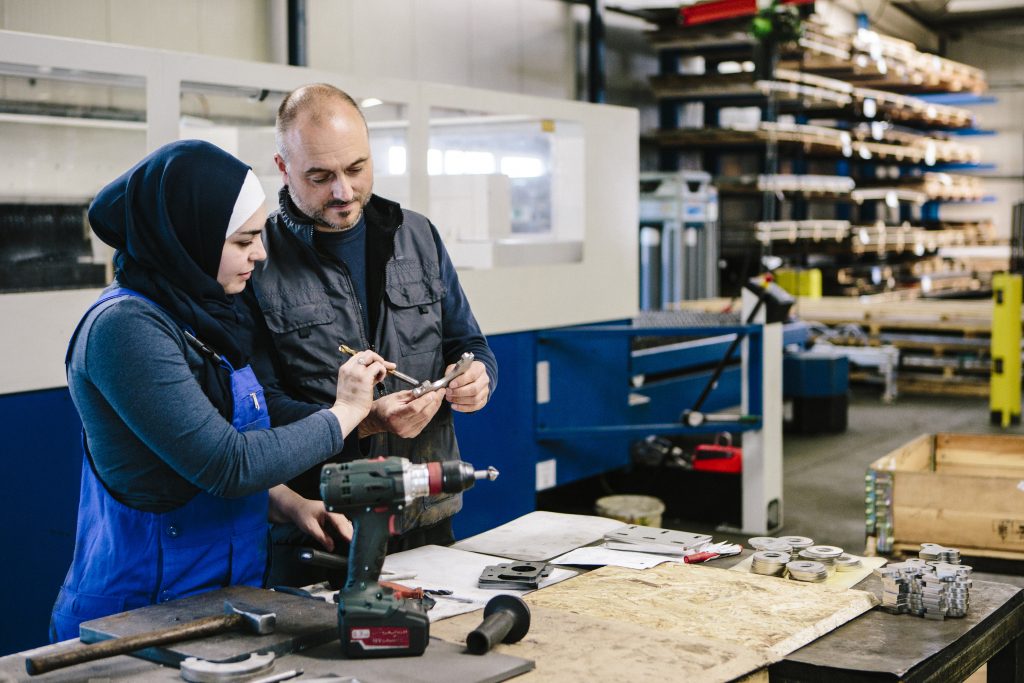 NL
NLSkills, Explore, Achieve, Revive (SOAR)
Murphy Centre Inc.Have questions about our work? Do you need access to a report in English or French? Please contact communications@fsc-ccf.ca. How to Cite This ReportChan, G.,…
Inclusive Economy -

Atlantic Autism Supports and Employment Network (AASEN)
Autism Nova ScotiaAlthough research has shown that neurodivergent individuals can be highly engaged and productive employees, autistic individuals in the Atlantic Region are significantly underrepresented in the labour market.
Inclusive EconomyPathways to Jobs -
 ON
ONResilience Digital Marketing Prototype
Sheridan CollegeThe Building Small Business Resilience Digital Marketing Training Prototype was specifically designed by Sheridan College to help address small business owners’ skill gaps in digital marketing, build resilience, and prepare them to face any future economic shock or disruption.
Inclusive EconomySME AdaptabilityTech and Automation -
 ON
ONDMG Studio Startup Social Finance Resource Toolkit
Dames Making Games TorontoThere is a lack of representation of Black, Indigenous and people of colour (BIPOC) women and 2SLGBTQ+ peoples in the games development industry. Marginalized communities need specific skills to succeed in this burgeoning sector of the economy.
Inclusive Economy -
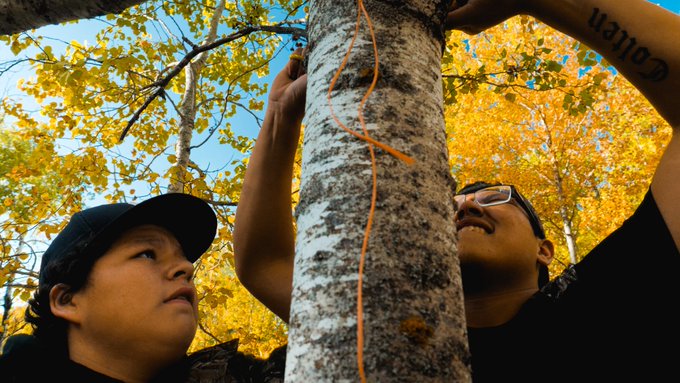
For-credit inSTEM program
ActuaThis project implemented land-based camps that sought to marry Indigenous knowledge and STEM education.
Inclusive EconomyPathways to Jobs -

The perspectives of second-generation immigrants in Canada
Environics Institute, Diversity InstituteOutcomes for second-generation immigrants are typically measured in terms of educational attainment, employment rates and income. This study finds that the experiences of second-generation immigrants cannot be easily generalized.
Inclusive Economy -
 NBNLNSPE
NBNLNSPEAtlantic Autism Supports and Employment Network (AASEN)
Although research has shown that neurodivergent individuals can be highly engaged and productive employees, autistic individuals in the Atlantic Region are significantly underrepresented in the labour market. To address this issue, Autism Nova Scotia created the Atlantic Autism Supports and Employment Network (AASEN).
Inclusive EconomyPathways to Jobs -
 ON
ONAccelerating the Smooth Adoption of Smart Systems
W Booth School of Engineering Practice & Technology, Faculty of Engineering, McMaster UniversityThrough modifications to existing engineering programs, McMaster University sought to expand the work-integrated learning opportunities offered to students in two of its engineering programs. The goal was to provide students technical skills via projects provided by industry partners in hopes of accelerating their adoption of digital technologies.
Pathways to JobsTech and Automation -

Greening small and medium-sized enterprises: Women entrepreneurs and the path to net-zero
Diversity Institute, CoralusThe transition to net zero requires action in businesses across sectors and at every stage of the value chain.
Inclusive EconomySME Adaptability -

Navigating net-zero: Faculty perspectives on greening post-secondary curricula
Business + Higher Education Roundtable (BHER)This project sought to understand how post-secondary institutions are integrating green skills, climate literacy, and green career pathways into their programming, the barriers they faced, and opportunities for them to be more responsive to emerging green economy needs.
Sustainable Jobs -
 ON
ONTutoring in the age of COVID-19: A case study of the study buddy program
Diversity InstituteThe program resulted in families feeling more comfortable and confident with online learning and school work. Students and tutors alike developed problem-solving, decision-making, interpersonal and technology skills, all of which play a role in academic success.
Inclusive EconomyPathways to Jobs -

Accelerating the Appropriate Adoption of Artificial Intelligence in Healthcare
The Michener Institute of Education at UHNDespite its ability to positively transform healthcare, there is some reluctance among healthcare providers to adopt artificial intelligence within their practice. This project set out to tackle these challenges and capitalize on the potential of AI in healthcare.
Tech and Automation -
 ON
ONConstruct
Blue Door Support Services (formerly Blue Door Shelters)Designed to enhance career prospects and housing stability, Construct offers an eight-week paid program with in-class skills training, hands-on experience, and wraparound supports.
Inclusive EconomyPathways to Jobs -
 ABBCSK
ABBCSKUsing behavioural insights to increase post-secondary and career services participation
Behavioural Insights TeamIn the context of a rapidly changing world of work, Canadians need access to better and more relevant labour market information (LMI) to make informed decisions while navigating the labour market.
This project, through the execution of a number of randomized control trials, tested how best to inform, empower, and engage Canadians when it comes to making decisions about work.
Pathways to Jobs -

Unleashing AI into the Skills Development Ecosystem
FSC-supported AI tools have bolstered outcomes in skills matching, career development guidance, and recruitment. The overall effectiveness of these tools was underpinned by recognizing and mitigating the inherent bias and discrimination embedded into these technologies.
Tech and Automation -
 NBNLNSPE
NBNLNSPEFuture-Proofing the Food and Beverage Processing Workforce
Food Processing Skills CanadaThis program offered online courses that covered technical and social-emotional skills for different groups of workers. It also provided support and resources to employers and participants.
SME Adaptability -

Synergy: Workforce Development for Vulnerable Women to Succeed
YWCA CanadaThe project aimed to advance gender equity in the Canadian labour market and address the unique challenges women and equity-deserving groups face in accessing gainful employment.
Inclusive Economy -

Artificial intelligence and the future of work: What do we know so far?
Laval UniversityThis research project aimed to better understand the impacts of AI on workers’ jobs and their psychological health. In particular, this research project – by looking at the prevailing academic literature – sought to examine the following: how are AI technologies transforming the nature of work; and in what way are these technological changes affecting employee psychological health, engagement and performance.
Tech and Automation -
 BCMBONSK
BCMBONSKPlanning for sustainable jobs 101
Smart Prosperity InstituteThis project examined what kinds of future skills and jobs will be needed, how the nature of the work is changing, what kinds of support and policies can aid businesses and workers alike, and how policymakers, educational institutions, and industry can both enable and smooth this transition. It studied three specific opportunities: zero-emission vehicles in Ontario, plant-based protein in Manitoba and Saskatchewan, and mass timber in British Columbia.
Sustainable Jobs -

Newcomer pathways to employment: Canadian Diversity Magazine special issue
Diversity InstituteWe outline the important role immigration plays in economic growth and in addressing skills and labour shortages, and examine Canada’s role in developing innovative approaches to address global humanitarian crises.
Inclusive EconomyPathways to Jobs -

NARE: National Accessibility Resources for Employers
COVID-19 created an uncertain landscape that required new knowledge and tools for employers to enable them to support employment of people living with disabilities.
Inclusive Economy -
 NBNLNSPE
NBNLNSPEEarly childhood education training lab
Even before the increased demand brought on by the Canada-wide Early Learning and Child Care agreements, early childhood educators (ECEs) were increasingly being called on to obtain more skills and credentials, without a parallel increase in wages, benefits, or improvements in working conditions. If wages and working conditions do not improve, there is concern that there will not be enough qualified ECEs to implement the national program.
Pathways to JobsSME Adaptability -
 ON
ONDiversity in leadership at S&P/TSX companies
Diversity Institute, 30%+ Club CanadaThis report assesses the state of diversity in leadership roles in corporate Canada, focusing on TSX firms and representation of equity-deserving groups (women, Black individuals and racialized individuals) from 2015 to 2022. The study encompasses 783 firms on the Toronto Stock Exchange (TSX), including 235 on the S&P/TSX Composite Index.
Inclusive Economy -
 BC
BCEmerging Agricultural Technologies and the Future of Food: Exploring Potential
University of the Fraser ValleyCellular agriculture is a suite of technologies to grow proteins indoors, with minimal or no use of live animals. Products have the potential to be local, reliable dairy and meat alternatives with low environmental footprints and can be produced in industrial, urban and rural spaces. This project engaged people working in agriculture and food sectors, NGOs, technology developers, entrepreneurs, social science and natural science researchers, educators, and students to explore the viability of a regional cellular agriculture industry in the Lower Mainland of British Columbia.
Tech and Automation -
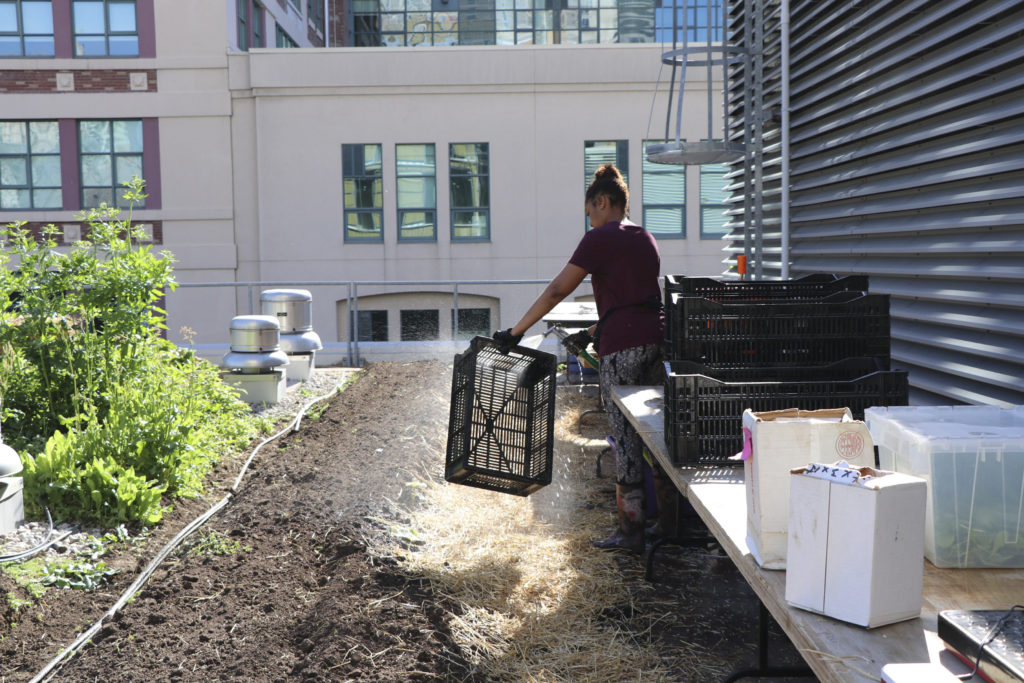 SK
SKGoverning Sustainable Municipalities
University of SaskatchewanThe Governing Sustainable Municipalities project assessed the current state of municipal preparedness in Saskatchewan for economic, social, and environmental sustainability. The project also engaged stakeholders to identify barriers and opportunities for Saskatchewan municipalities to enhance sustainability in their communities.
Sustainable Jobs -
 MB
MBA Program for Young Moms in Northern Manitoba
Career TrekCareer Trek launched the “M-Power North” Program to support young mothers between the ages of 15 and 25 in Northern Manitoba. The program provides hands-on, experiential lessons, spanning a number of sectors including trades, technology, natural resources, STEM and healthcare.
Inclusive Economy -
 BC
BCYoung Newcomers and International Students in Diploma Programs: Shock-proofing through Language Confidence
British Columbia Institute of TechnologyThe number of international students in Canada has increased dramatically, and while students often have the content knowledge to succeed, limited language abilities can negatively impact their studies and transition to employment. To address this issue, BCIT implemented a language assessment for students and provided a suite of language support services to strengthen its existing Language Support for English as an Additional Language (EAL) offerings.
Inclusive Economy -

Career pathways of immigrants: Looking for meaning amid starting again
York UniversitySkilled migrants often face barriers in the Canadian labour market, leading them to pursue other jobs in different sectors – alternative careers, often characterized by occupational downgrading.
Inclusive EconomyQuality of Work -
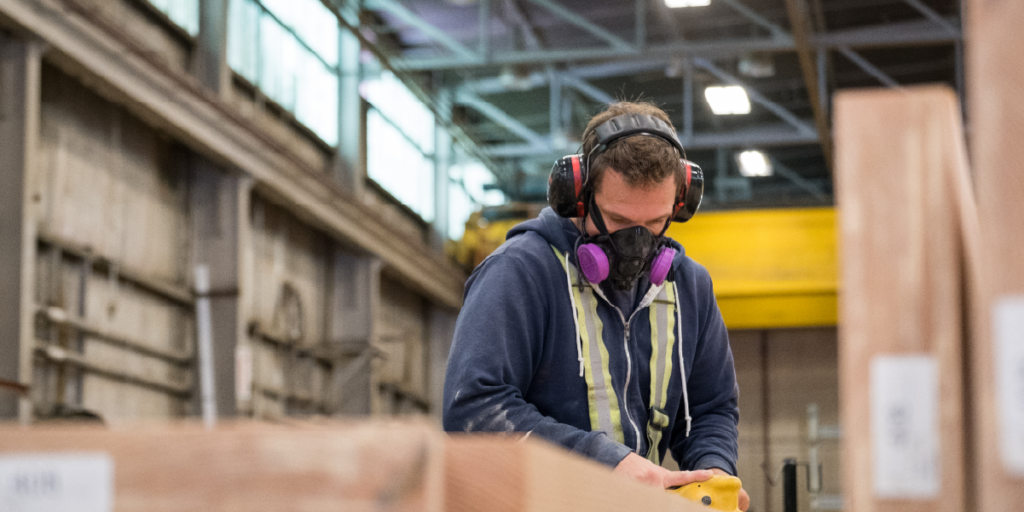 BC
BCSkills needs for mass timber production and adoption in British Columbia
Smart Prosperity InstituteStakeholders in British Columbia are exploring the potential of mass timber, an engineered wood product used as a building material, to drive economic growth in a number of industries. A thriving mass timber sector could help generate novel opportunities for many forestry communities (that are currently experiencing a decline), as well as help build sustainable housing in the province.
Sustainable Jobs -

Teaching Vulnerable SMEs the Innovation Skills to Develop Sustainable, Long-Term Remote Work Strategies
pointASmall and medium-sized businesses owned by women and persons with disabilities were disproportionately affected by COVID-19, with a higher percentage reporting that they were unable to operate during the pandemic. To address this issue, pointA developed a virtual, 4-week course to help small business owners develop remote work strategies.
SME Adaptability -

Harnessing the digital economy for women of colour in Canadian undergraduate STEM programs
Ontario Tech UniversityA large percentage of people from diverse groups recruited into STEM undergraduate programs do not complete a STEM degree. This project conducted a systematic literature review exploring current research about retention efforts for women of colour in post-secondary STEM programs.
Inclusive EconomyTech and Automation -

Can Experiential Learning Go Virtual? Lessons Learned From Canadian Nursing Education During the Pandemic
Signal49 Research (formerly The Conference Board of Canada)Experiential learning (EL)—or learning by doing—is an essential component of many postsecondary education (PSE) programs. This type of training lets people develop hands-on skills and…
Pathways to Jobs -
 NBNLNSPE
NBNLNSPEBuilding the skills of the trucking industry for the future
Trucking Human Resource Sector Council AtlanticHave questions about our work? Do you need access to a report in English or French? Please contact communications@fsc-ccf.ca. How to Cite This ReportNoumi, C.,…
Tech and Automation -

Transforming skills and talent acquisition in Canadian cybersecurity
Rogers Cybersecure CatalystHave questions about our work? Do you need access to a report in English or French? Please contact communications@fsc-ccf.ca. How to Cite This ReportChan, G.,…
Inclusive EconomyTech and Automation -

Quality of Work
Improving quality of work, through better wages and benefits, social environments, security, safety, and inclusion, alongside skills and professional development is one part of a larger strategy to address these labour shortages.
Quality of Work -

Transforming skills and talent acquisition in Canadian cybersecurity
In recent years, young people have faced difficulties in the labour market. Pandemic lockdowns impacted school and work for most young people, alongside accelerated technological change and the increasing prevalence of gig work (characterized by short-term, on-demand, and task-based labour) have all had negative impacts on quality of work for young people.
Inclusive EconomyTech and Automation -
 MBSK
MBSKSkills needs for workers in the growing plant-based protein industry in Manitoba and Saskatchewan
Smart Prosperity InstituteThese reports provide insight into the skills needs for workers in Manitoba and Saskatchewan’s growing plant-based protein industry, especially around value-added agricultural manufacturing, and what steps can be taken by government, industry, and educational institutions to support workers.
Sustainable Jobs -

Skills and strategies for quality hybrid work in Canada
Business + Higher Education Roundtable (BHER)With several years of hybrid work implementation, this project sought to document the hybrid work experiences of 20 Canadian executive-level leaders in workforce innovation and skills development and private sector organizations in culture, finance, tech, and professional services.
Quality of Work -
 ON
ONWork quality experience and engagement among young workers
Toronto Metropolitan University, The Better Work ProjectPandemic lockdowns impacted school and work for most young people, alongside accelerated technological change and the increasing prevalence of gig work (characterized by short-term, on-demand, and task-based labour) have all had negative impacts on quality of work for young people.
Quality of Work -

Did the pandemic and labour shortages impact job quality?
McGill University, Department of EconomicsThis project used Canadian job ads to understand changes in the terms of employment offered to job seekers, focusing specifically on skill, education, and experience requirements, as well as job benefits, between the two-year period prior to the pandemic (2017-2019) and 2022.
Quality of Work -
 ABBCON
ABBCONAutism CanTech!: Social return on investment and policy review
NorQuest CollegeAutism CanTech! (ACT!) was a 6-month program for young people with autism to receive skills training and paid work placements in entry-level data management positions.
Pathways to JobsQuality of Work -
 NS
NSAssessing the impact of hybrid work models on work quality
Digital Nova ScotiaThe pandemic accelerated the move to remote work. Today, the question of continued remote work versus going back to the office, versus hybrid models of work is one of the key elements of quality of work for many.
Quality of WorkTech and Automation -

Disabled gig workers in Canada: Exploring experiences and identifying interventions to improve safety and well-being
Work Wellness InstitutePlatform apps and gig work predate the pandemic, but the number of people that they employ increased sharply as a result of COVID-19 related lockdowns and job losses.
Inclusive EconomyQuality of Work -

The lingering effects of COVID-19
Diversity Institute, Environics InstituteThis report helps to fill the information gap by documenting how many Canadians have missed work or school due to COVID-19 in the 12 months prior to the time of the survey in March 2023, and the length of their absences.
Inclusive Economy -
 ON
ONSkills needs for workers in Ontario’s growing zero-emissions vehicles sector
Smart Prosperity InstituteThese reports provide insight into skills needs for workers in Ontario’s growing zero-emissions vehicles and battery manufacturing sectors, and what steps can be taken by government, industry, and educational institutions to support workers in this transition.
Sustainable Jobs -

ChatGPT: Organizational and labour implications
Signal49 Research (formerly The Conference Board of Canada)ChatGPT, which stands for Chat Generative Pre-trained Transformer, is a text-generating AI chatbot developed by OpenAI and launched on November 30, 2022. This briefing examines the influence of ChatGPT usage on organizations and workers.
Which roles are most impacted by using ChatGPT and which are the least impacted? For which skill does generative AI have the largest organizational implications? Are there concerns about ChatGPT’s safety and security and, if so, how should they be addressed?
Read the issue briefing to get our full analysis.
Tech and Automation -

Employer-sponsored skills training: A picture of skills training opportunities provided by Canadian employers
Labour Market Information Council, Shift InsightsHave questions about this report? Contact us communications@fsc-ccf.ca. How to Cite This ReportMcDonough, L. (2023) Project Insights Report: Employer-sponsored skills training: A picture of skills…
SME Adaptability -
 ON
ONCareer pathways for mid-career workers through work-based learning
Work-Based Learning Consortium, Canadian Association of Mold MakersHave questions about our work? Do you need access to a report in English or French? Please contact communications@fsc-ccf.ca. How to Cite This ReportMcDonough, L….
Pathways to JobsSME Adaptability -
 ABBCNLON
ABBCNLONWorkplace innovation for quality of work: Research synthesis and recommendations on adaptation for Canadian contexts
WEtech Alliance, Workplace Innovation Network for Canada (WINCan)The world is changing rapidly and the way enterprises respond to those changes will have long-term consequences for economic competitiveness, social cohesion and environmental change.
Inclusive EconomyQuality of Work -

Participation in skills training: A report from the Survey on Employment and Skills
Diversity Institute, Environics InstituteThe latest wave of the Survey on Employment and Skills, conducted in March 2023, revisits the issue of access to skills training. Three years after the onset of the pandemic, it finds that more workers are participating in work-related training to improve their skills, while training is becoming less focused on the management of the pandemic. It also shows that the most common type of training is that which focuses on workplace health and safety. The survey finds that working from home does not appear to have posed a barrier to skills training to date, as those who have switched to working from home are more likely than those who continue to work in their regular workplace to access training to improve their skills.
Pathways to Jobs -

Innovation in Training, Recruitment and Upskilling for Skilled Trades
Canada needs to address long standing shortages of skilled tradespeople to advance policy priorities around decarbonization, affordable housing and transforming industry to add more value to what we produce.
Inclusive EconomyPathways to JobsSustainable Jobs -

Effective Employer Engagement in Skills Development: From Rhetoric to Solutions
The persistence of skill shortages and mismatches has raised questions as to why Canadian employers invest less in training per employee compared to their OECD counterparts. Research and evidence from FSC’s portfolio point to a number of critical factors underpinning Canada’s comparably low training investments.
SME Adaptability -

Future City Builders
Evergreen Brick WorksFuture City Builders was a four-month program that supported youth to work collaboratively to develop real-world solutions for healthier and more equitable cities.
Tech and Automation -

Levelling the playing field for Black Canadians
Signal49 Research (formerly The Conference Board of Canada)In this research, we look at how Black Canadian professionals’ social and emotional skills are valued in the workplace and how leaders can cultivate a workplace where everyone feels empowered and included.
How do Black Canadians see their racial identity impacting the recognition and evaluation of their social and emotional skills (SES) at work? What are the risks of an employees’ skills not being recognized? What are the benefits of realizing the diverse skill sets within an organization?
Read the impact paper to get the full analysis.
Inclusive Economy -
 ON
ONTIMES 2.0
This project was carried out by Yonge Street Mission (YSM) to improve their workforce development strategy using a data tool called TIMES™ (Transformation Integrated Measurement and Evaluation System). The tool collects and analyzes data on barriers and supports that affect job readiness for their clients, such as food, housing, relationships, education, skills and health. The project aimed to migrate the tool from a narrow and rigid platform to a more robust and flexible online platform (Salesforce) that helps…which would facilitate ease of use, collaboration, reporting and onboarding of external partners.
Inclusive EconomyPathways to Jobs -

Built to scale: Assessing microcredentials for digital sector professionals
This project explored the uptake of microcredentials within digitally intensive industries in Canada, a field projected to grow and change in coming years. The project used a novel form of labour market information — LinkedIn profiles — to discern differences in skill, occupational seniority, and microcredential certification in the tech labour market in Canada.
Pathways to JobsTech and Automation -

State of skills: Effective employer engagement in skills development – From rhetoric to solutions
Supporting employers in overcoming structural barriers to training investment is key to addressing labour and skill shortages.
SME Adaptability -

The Skills Algorithm: Digital Skills Demand Across Canada’s Labour Market
The DaisThis project used machine-learning methods and data from nine million Canadian job postings collected from January 2020 to June 2023 to understand how demand for digital skills has changed since the pandemic and the importance of non-technical or soft skills even in digital workplaces and occupations.
Pathways to JobsSME Adaptability -
 ABNSON
ABNSONHireNext: Improving hiring and HR practices with AI
CivicActionMany Canadian employers across sectors are becoming more conscious of the benefits of a diverse workforce, but often don’t have the knowledge or staff resources to attract and recruit diverse talent into entry-level jobs. Employers often cite an inability to find applicants.
SME AdaptabilityTech and Automation -

Built to scale? Microcredentials use among digital professionals
The DaisUsing a novel labour market information source through LinkedIn profile data, this report assesses the current uptake of microcredentials in two digitally-intensive occupations: data scientists and software professionals.
Pathways to Jobs -

Mind the gap: Compensation disparity between Canadian and American technology workers
The DaisThe significant compensation disparity between Canadian and American tech workers calls for renewed efforts to scale Canadian tech companies.
Inclusive EconomyPathways to JobsTech and Automation -
 NTNUYT
NTNUYTIndigenous Business Centre of Excellence (IBCE) Feasibility Study
Aurora CollegeAurora College’s FSC-funded project Indigenous Business Centre of Excellence (IBCE) Feasibility Study aimed to better understand needs, opportunities and best models in establishing an Indigenous Business Centre of Excellence (IBCE) at the NWT institution, as well as establishing a model for a two-year pilot.
Inclusive Economy -
 ON
ONNavigating the transition: Identifying pathways to careers in the insurance industry
Signal49 Research (formerly The Conference Board of Canada)Canada’s insurance industry is poised for significant growth in the coming years,even with the abundance of job vacancies already existing.
Pathways to Jobs -
 NU
NUlnshore Fishery Development in the Qikiqtani Region of Nunavut
Qikiqtaaluq CorporationAs part of its five year plan to address the human resource needs for successful inshore fisheries research and development in the Qikiqtani region, QC accessed FSC funding to develop the Inshore Fishery Development in the Qikiqtani Region of Nunavut program.
Inclusive EconomySME Adaptability -
 ABBCMBNLNTNSNUONQCSKYT
ABBCMBNLNTNSNUONQCSKYTIndigenous Tourism Association of Canada (ITAC)
Indigenous Tourism Association of CanadaThe Northern Tourism Recovery Incubator developed by ITAC was created to support SMEs in Northern communities to strengthen their business, rebuild Indigenous tourism operators and re-train staff members to support visitors and public health expectations as the tourism industry recovers.
Inclusive Economy -

Opportunity for all: Improving workplace experiences and career outcomes for Canadians with disabilities
Signal49 Research (formerly The Conference Board of Canada)In this research, we analyze the findings of 30 interviews of Canadian working professionals with disabilities who have expertise in accessible employment. What key barriers…
Inclusive EconomyQuality of Work -
 NL
NLA Newcomer Employment Resilience Network NL (NERN NL) – Optimizing Connections; Making the Match
Association for New CanadiansHave questions about our work? Do you need access to a report in English or French? Please contact communications@fsc-ccf.ca. How to Cite This ReportNaveed, R….
Inclusive EconomyPathways to Jobs -

Technology impacts on quality of work in Canada
ICTC CanadaThe emergence of the COVID-19 pandemic triggered a rapid increase in the adoption of digital technologies, leading to significant disruptions across work and society.
Quality of WorkTech and Automation -
 ON
ONExamining quality of work in Grand Erie: An assessment of needs, gaps and opportunities
Workforce Planning Board of Grand ErieThe COVID-19 pandemic, coupled with economic uncertainty, has prompted various members of the workforce in Grand Erie to consider quality of work more holistically.
Inclusive EconomyQuality of Work -
 NBNLNSPE
NBNLNSPEGauging the potential of occupational pluralism in rural Atlantic Canada
This project assessed the potential contribution of expanded and modernized seasonal occupational pluralism — where workers combine different jobs in different parts of the year to generate their annual incomes.
Inclusive EconomyPathways to Jobs -

Pathways and Prior Learning Assessment and Recognition (PLAR) for internationally trained and non-traditional applied health professionals
The Michener Institute of Education at UHNThis project sought a better understanding of how PLAR is used, or can be used, to effectively accelerate learners through programs in the applied health sciences.
Inclusive Economy -

Digital technologies and the impact on quality of work in Canada
ICTC CanadaThis paper explores the ways digital technologies affects quality of work, skills needs and developments, and associated policy implications.
Quality of WorkTech and Automation -

Ready for green jobs: How ready are Canadian regions to attract and support the skilled workforce needed to reach climate targets and drive clean growth?
Smart Prosperity InstituteClean growth and climate action in Canada could create thousands of jobs in the next seven years. With a potential 300,000 jobs created, communities across the country have the opportunity to thrive while moving Canada towards meeting its climate targets.
Sustainable Jobs -
 BC
BCTwo-Eyed Seeing Network
Ongoing and persistent labour and skill shortages coupled with underemployment among key segments of the population, notably Indigenous youth have left the connections between industry and Indigenous populations to remain underdeveloped.
Inclusive Economy -

Shaping the future of work in Canada: Beyond the COVID-19 pandemic
EKOSThe research explored the extent of economic and job quality inequities between those who had access to remote work options during the pandemic and those who did not, as well as the widening disparity in job satisfaction between the two groups.
Quality of Work -

Understanding the relationship between quality of work and remote work support and monitoring
The DaisThe pandemic expanded digital technologies to connect and support remote workers, and increased electronic monitoring of those working remotely. While some employers see value in monitoring, overuse can negatively affect employee well-being and job satisfaction.
Quality of WorkTech and Automation -

Virtualization of Experiential Learning Platforms and their Pedagogical Models
British Columbia Institute of Technology, Siemens Canada, B.C. Ministry of Post-Secondary EducationThe British Columbia Institute of Technology (BCIT) tested the virtualization of training by building a platform that provided learners, instructors and researchers with remote access to a physical training environment.
Tech and Automation -

Can social and emotional skills be taught?
Signal49 Research (formerly The Conference Board of Canada)In this research, we explore the challenges of teaching and learning social and emotional skills in the classroom. Based on interviews with 40 college instructors and…
Pathways to Jobs -

Understanding CERB’s Impact: More than just an income support program?
Canadian Centre for Policy AlternativesAt the onset of the COVID-19 pandemic in March 2020, Canada’s unemployment rate reached one of its highest levels at 14.1 per cent. In response, the federal government launched the Canada Emergency Response Benefit (CERB), providing a financial benefit of $2,000 a month to workers directly affected by COVID-19.
Inclusive EconomyQuality of Work -

The right to disconnect in Canada’s post-pandemic context
KPMGThe COVID-19 pandemic has changed the nature of work, leading to more connectivity and a blurring of boundaries between work and non-work.
Quality of Work -
 NL
NLCook to connect
The program addresses challenges most newcomers to Canada face in the first five years after their arrival when searching for employment; a lack of Canadian experience and language barriers specific to a work context. To that end, the C2C program provides culinary instruction, English-language lessons and experience in a catering kitchen workplace.
Inclusive Economy -

Improving the quality of work in Canada: Prioritizing mental health with diverse and inclusive benefits
BOUNC3This research examines the relationship between access to benefits and quality of work in the current Canadian context, with a central focus on mental health and well-being, diverse forms of care and greater inclusion for those without benefits.
Inclusive EconomyQuality of Work -

Quality of work of Canada’s contingent workforce
BelongnomicsThis research sheds light on the reasons why people engage in gig work and the policy levers needed to mitigate the risks associated with this new form of employment.
Inclusive EconomyQuality of WorkTech and Automation -
 AB
ABEmployer and Employee Perceptions of Microcredentials
Northern Alberta Inst. of Technology (NAIT), Bow Valley College, Saskatchewan Polytechnic, Southern Alberta Institute of TechnologyAn increasing number of institutions are offering microcredentials to workers looking to transition into different sectors. Yet, it’s uncertain the extent to which microcredentials are recognized and valued by employers and workers, and how attitudes about their value may differ across industries.
Pathways to JobsSME Adaptability -
 BC
BCTraining our career development professionals
ASPECT – Association of Service Providers for Employability and Career Training, ETHOS Career Management Ltd.Have questions about our work? Do you need access to a report in English or French? Please contact communications@fsc-ccf.ca. How to Cite This ReportTobin, S….
Pathways to Jobs -

Skills for innovation: International case studies
Shift InsightsHave questions about our work? Do you need access to a report in English or French? Please contact communications@fsc-ccf.ca. How to Cite This ReportCuento, M….
-

Valuing skills in Canada: A statistical approach
Signal49 Research (formerly The Conference Board of Canada)In this research, we examine the relationship between skills and income, considering which skills have a strong positive association with earning and which have a…
Pathways to Jobs -

Better Labour Market Transitions for Mid-Career Workers
Supporting displaced mid-career workers requires a clear understanding of the barriers and difficulties they face, and it should also seek to build on highly valued skills developed through years of work and life experience.
Inclusive EconomyPathways to Jobs -
 ABNSONQC
ABNSONQCStrength in Structure
Canadian Council for Youth ProsperityThe Canadian Council for Youth Prosperity’s Strength in Structure project engaged Black youth and Black-focused, Black-led and Black-serving, or B3, community organizations to develop a toolkit intended to improve delivery of services to meet the needs of Black youth job seekers.
Inclusive Economy -

Skills for a Clean Economy
Foresight Cleantech Accelerator CentreCanada’s ability to meet its goals for a green and sustainable economy will require support for workers in sectors and industries crucial to climate transitions such as the cleantech sector. An adequate supply of skilled workers to support the sector’s growth is crucial, yet many cleantech companies are experiencing challenges in recruiting workers with the skills needed to support the success of their businesses.
Sustainable Jobs -

Leveraging the Skills of Newcomers
Navigating career and training decisions is especially complex for newcomers given the challenges they face learning new systems and unfamiliar workplace cultures. Career development support for newcomers should come early and often.
Inclusive Economy -

Digital Tools in the Skills Ecosystem
There is considerable promise in the role digital tools and virtual career services can play in improving access to training and career development, particularly for those with geographic barriers or constraints such as family care or other work responsibilities.
Inclusive EconomyTech and Automation -

Digital skills and the skills gap
Diversity InstituteFor more than 20 years, industry has been decrying the skills gap and the need for digital skills. The problem of the so-called “digital skills…
Tech and Automation -

Quality of work of Canada’s contingent workforce
BelongnomicsTo examine further the nature of gig work in Canada and understand the quality of work associated with this type of employment, this research presents survey data and analysis on the motivations for gig work and the working conditions involved.
Inclusive EconomyQuality of WorkTech and Automation -

Laying Foundations: Technological maturity in Canada’s construction sector
In this research project, the Brookfield Institute conducted interviews and surveys with 14 industry leaders from 11 firms spanning three broad sub-sectors across the country. The objective was to improve understanding of what is contributing to the low uptick of technological innovation in the construction sector.
Tech and Automation -
 NLNTNUQCYT
NLNTNUQCYTThe Role of the Hunter in Inuit Nunangat’s Mixed Economy
Signal49 Research (formerly The Conference Board of Canada)In this research, we discuss how hunter skills are essential to the livelihoods of Inuit communities and can be adapted to a wide variety of…
Inclusive Economy -

Digital Occupation Pathways: From Vulnerable Jobs to Rapid-Growth Careers
Signal49 Research (formerly The Conference Board of Canada)In this impact paper, we examine the feasibility of transitioning workers from occupations susceptible to automation to rapidly growing jobs in the digital economy. We…
Pathways to JobsTech and Automation -

Labour market implications for racialized youth
Diversity InstituteThrough a review of academic and industry reports and an analysis of policies and programs, this report aims to identify the barriers faced by racialized youth in employment and education;
Inclusive EconomyPathways to Jobs -
 NB
NBBuilding capacity in Indigenous early childhood education
The project explores how Indigenous communities can be engaged in the care and education of their children and how they might advocate for better and more equitable services and programing.
Inclusive Economy -
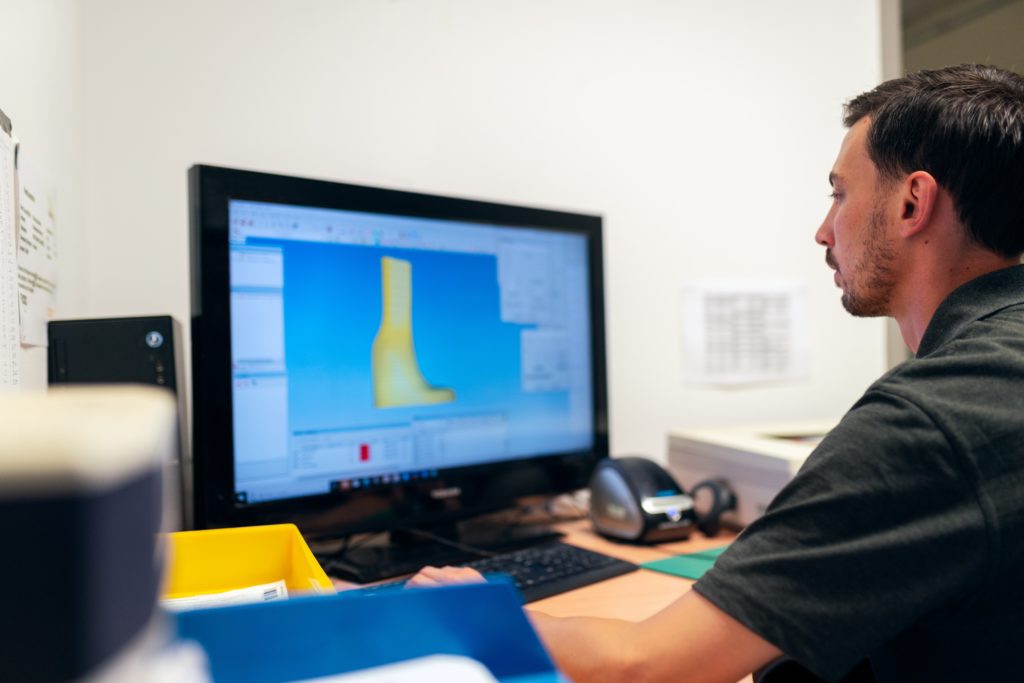 ON
ONThe impact of remote work on engineering
The Ontario Society of Professional Engineers sought to understand the impact on productivity and work culture of remote work in this industry, whether some equity seeking groups are disadvantaged, and to identify organizational strategies for adapting.
Inclusive EconomyQuality of WorkTech and Automation -

Breaking down barriers: Improving the workplace experience for neurodivergent Canadians
Signal49 Research (formerly The Conference Board of Canada)In this research, we analyze the findings of 40 interviews with neurodivergent workers and employers of neurodivergent workers to better understand the experiences of neurodivergent…
Inclusive EconomyQuality of Work -

Building a digitally skilled workforce
Signal49 Research (formerly The Conference Board of Canada)In this research, we examine the responses of 21 key informant interviews and a survey of 526 skills leaders across different industries and regions in…
Tech and Automation -

Quality of Work: Literature Review
Purpose Co.We’re exploring in depth the concept of Quality of Work. This literature review is the first in a series of reports on the topic. Here…
Quality of Work -

On the other side of the screen: Nurse educators’ perspectives on online experiential learning during the pandemic
Signal49 Research (formerly The Conference Board of Canada)In this research, we analyze the findings of our interviews with 20 nurse educators from across Canada to explore the challenges, opportunities, and innovations related…
Inclusive EconomyTech and Automation -

Blue occupation pathways: Career transitions to the sustainable blue economy
Signal49 Research (formerly The Conference Board of Canada)In this research, we analyze the occupational transitions from 92 high-risk, low-mobility (HRLM) jobs to 15 rapid-growth jobs in the sustainable blue economy (SBE). How…
Pathways to JobsSustainable Jobs -

Mapping racialized experiences in the real estate development industry: Moving towards a more equitable and inclusive sector
MonumentalThis research was a starting point, a chance to explore the state of racialized professionals in real estate development and housing, look at the opportunities that exist for launching ventures in emerging areas and do primary research with racialized professionals to understand their perspective on the industry and what supports would help them to step into their career aspirations.
Inclusive EconomyPathways to Jobs -
 QC
QCBridging the skills gap within small and medium-sized enterprises in Quebec: An analytical and empirical analysis
Diversity Institute, University of MontrealWe assess the level of preparedness of SMEs in Quebec for the post-pandemic years by examining their transformation strategies, skill priorities, training plans, and willingness to tap into a more diverse workforce.
SME Adaptability -

Skills development for innovation and growth: Insights from global initiatives
Shift InsightsThis report and accompanying case studies share insights from three skills for innovation training initiatives which can inform the design and operation of models in Canada.
Sustainable JobsTech and Automation -
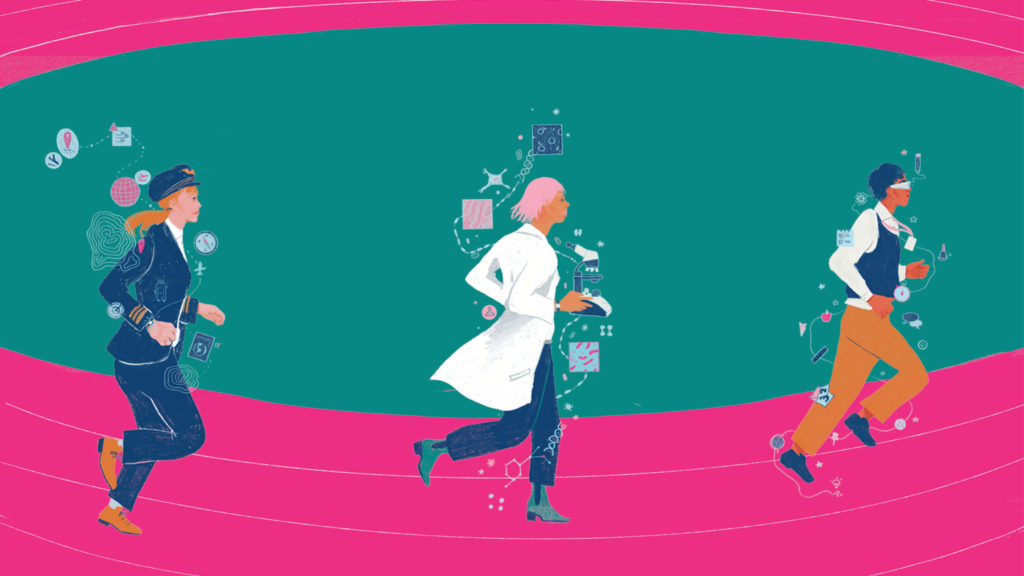
Race alongside the machines: Occupational digitalization trends in Canada, 2006-2021
Brookfield Institute for Innovation + EntrepreneurshipUnderstanding which jobs have changed the most, and which type of digital skills are changing, is important in informing better policies to prepare workers for the future.
Tech and Automation -

Building workplaces where neurodivergent workers thrive
Signal49 Research (formerly The Conference Board of Canada)This report explores strategies and best practices for reducing the economic and social costs associated with the low workplace engagement, employment, and productivity of neurodivergent employees in Canada.
Inclusive EconomyQuality of Work -

The labour market of tomorrow: projections from the Model of Occupations, Skills, and Technology (MOST)
Signal49 Research (formerly The Conference Board of Canada)The Model of Occupations, Skills, and Technology (MOST) is a new labour market projection tool, generating detailed occupational and industry-level projections for every region in Canada.
Pathways to Jobs -

Experiential learning in the social sector
McMaster University, Mitacs, United Way Halton & Hamilton, The CollaborativeThis report explores experiential learning, also known as work integrated learning, in the social service sector from the perspective of both employers and students in social sciences, humanities and arts
Pathways to Jobs -

Digital skills for today and tomorrow
Signal49 Research (formerly The Conference Board of Canada)The rapid digital transformation in Canada due to the pandemic could increase our productivity and growth potential for years to come. How can Canada unlock this opportunity?
Pathways to JobsTech and Automation -

Digital transformation of government: Addressing talent gaps and the needs of an inclusive workforce
Diversity Institute, DeloitteThe Government of Canada has prioritized digitization of processes and services for more than a decade since the release of Improving Canada’s Digital Advantage in 2010 in response to citizen demands, accountability frameworks, and the need to do more with less.
Inclusive EconomyPathways to Jobs -

The shift to remote work: How workers in Canada are adapting to working from home
Diversity Institute, Environics InstituteThe Survey on Employment and Skills has been tracking experiences with remote work since 2020. The latest wave of the survey finds that these experiences have become more positive over the course of the pandemic.
Inclusive Economy -

Exploring the multiple dimensions of quality of work
Job quality has always been an important, yet often overlooked, element of the labour market. It encompasses factors that affect worker well-being and business productivity.
Quality of Work -

COVID-19 and logistics: Changes and challenges in demand, business practices, and workforce management
Diversity Institute, Urban Analytics Institute, The Logistics InstituteThis study aims to understand how the pandemic has altered the demand for supply chain and logistics services in Canada and how businesses within the industry have adapted to pandemic-related health and safety protocols.
Pathways to Jobs -

Beyond blue and white collar: a skills-based approach to Canadian job groupings
Signal49 Research (formerly The Conference Board of Canada)Canadian employers are increasingly thinking about work from a skills perspective. This issue briefing takes a new approach to defining job groupings.
Pathways to Jobs -

From Low-Mobility to Rapid-Growth Jobs: How Governments and Agencies Can Build the Bridge to Clean Economy Careers
Signal49 Research (formerly The Conference Board of Canada)This issue briefing looks at the retraining required to transition workers from occupations susceptible to automation to rapidly growing occupations in the clean economy.
Pathways to JobsSustainable Jobs -

Planning When You Can’t Predict: Strategic Foresight and the Future of Work
Diversity InstituteThis report introduces strategic foresight, a discipline that helps organizations and individuals think about and plan for the future in a context of radical uncertainty involving disruptive political, economic, social, technological, legal, and environmental changes.
Pathways to Jobs -
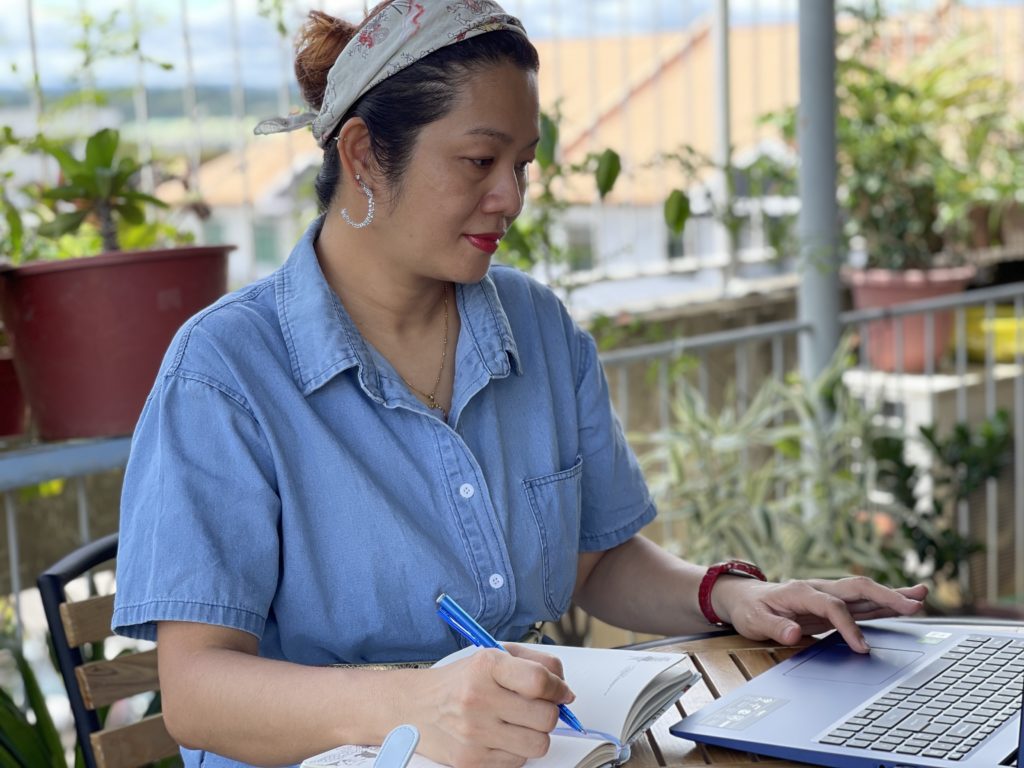 AB
ABCalgary Regional WIL Secretariate and Portal
Calgary Economic DevelopmentWork-integrated learning (WIL) gives people the chance to apply the skills they have learned in the classroom while gaining on-the-job experience and pathways to meaningful…
Pathways to JobsSME Adaptability -

Readiness and Resilience: Mapping the Contours of the Indigenous Skills and Employment Ecosystem in Canada
Diversity Institute, Canadian Council for Indigenous BusinessIn collaboration with our partners, Canadian Council for Aboriginal Business (CCAB) created the Readiness and Resilience: Mapping the Contours of the Indigenous Skills and Employment Ecosystem report as part of a project on Indigenous people’s barriers to and facilitators of employment in Canada to learn about the scope of the Indigenous employment landscape.
Inclusive Economy -

Disconnecting from Work: The Varied Experiences of Canadian Workers
Diversity Institute, Environics InstituteAre Canadians having trouble finding the right balance between work and family? Are they finding it difficult to disconnect from work when their regular shift or work day is done?
Inclusive EconomyPathways to JobsQuality of Work -

Experiences of Discrimination at Work
Diversity Institute, Environics InstituteDiscrimination in the workplace has been a prevalent issue in Canada, and the problem seems to have been intensifying in the years since the onset of the COVID-19 pandemic.
Inclusive EconomyPathways to Jobs -

Indigenous finance and management professionals: critical for reconciliation and indigenous self-determination
Signal49 Research (formerly The Conference Board of Canada)Indigenous skilled labour is critical to realizing this new vision of economic reconciliation. Indigenous finance and management professionals can help their communities navigate the new and increasingly complex economic relationships.
Inclusive Economy -

Job Posting Trends in Canada: 2021 Update
Diversity Institute, MagnetAs the COVID-19 pandemic entered its second year in 2021, there continued to be significant impacts on the labour market. Focusing on the demand for labour, this report examines trends for 2021.
Inclusive EconomyPathways to Jobs -

Jobs and skills in the transition to a net-zero economy: A foresight exercise
Diversity Institute, Smart Prosperity InstituteThis report presents a foresight exercise that models the jobs and skills that would be required in a net-zero economy across a set of distinct futures.
Sustainable Jobs -

Career able: job transitions for Canadians with disabilities
Everyone needs career options, including people with disabilities. The Conference Board of Canada, on behalf of the Future Skills Centre, is leading a study to support the job transitions of people with disabilities. The study aims to promote labour market retention and career mobility for this equity-deserving group.
Inclusive EconomyPathways to Jobs -

Digital Skills for a Future-Ready World
We know that digital skills are essential for a strong post-pandemic recovery. But we don’t have a clear picture of the exact digital skills that Canadian employers are looking for.
We need to understand these gaps so we can respond with the right tools and training.Tech and Automation -
 MBSK
MBSKInTeRN: a young, northern workforce enters the world of ICT
University College of the NorthA two-year network computer technology program geared to providing entry level skills and supports to Indigenous youth in Northern Manitoba.
Inclusive Economy -

Finance and management skills for economic reconciliation
Indigenous skilled labour is critical to realizing a new vision of economic reconciliation where First Nations, Métis, and Inuit communities control their economic futures.
Indigenous finance, management, and other corporate service professionals have important roles to play as their communities navigate evolving economic relationships to create long-term prosperity.
Inclusive Economy -

Bridging the Gap Between Identity and Social and Emotional Skills: Black Canadians’ Perspectives of Social and Emotional Skills in the Workplace
Signal49 Research (formerly The Conference Board of Canada)This issue briefing reveals how Black professionals perceive the development, expression, and evaluation of social and emotional skills at work.
Inclusive Economy -

Strengthening Social and Emotional Skills in Adults: the Learning Experience at Canadian Colleges
We know that social and emotional skills (SES)—such as communication, collaboration, and leadership—are critical for life success. Yet the bulk of programs that teach SES end after high school. We continue developing SES in adulthood—through informal experiences like employment, co-ops, volunteering, extracurriculars, and caregiving, as well as formal instruction. These skills are important. So how are post-secondary institutions teaching them?
-

Building bridges: increasing opportunity for Inuit
Industries and public institutions tied to Inuit communities have a responsibility to empower Inuit employment and lead by example. Those that do will also benefit from increased capacity, Inuit expertise, and social investments.
Inclusive Economy -

Transforming learning in a pandemic context
Across Canada, in-person learning opportunities for nursing students became limited or stopped completely at the onset of the COVID-19 pandemic. To meet learning criteria, nursing programs had to pivot. For example, some expanded the use of virtual simulations and scenarios as an alternative to in-person care in hospitals, long-term facilities, or community-based experiences.
Inclusive Economy -

Laying foundations: Technological maturity in Canada’s construction sector
Brookfield Institute for Innovation + EntrepreneurshipIn this report, in collaboration with Brookfield Institute for Innovation + Entrepreneurship we reflect on the evidence and next steps needed to support the Canadian construction sector succeed and adapt to change in the years to come.
Tech and Automation -
 ABNSONQC
ABNSONQCStrength in structure
Canadian Council for Youth ProsperityThis project aims to improve the way Black youth experience and navigate the world of work. Job search outcomes among Black young people have historically…
Inclusive Economy -
 ON
ONThe future is micro: Digital learning and microcredentials for education, retraining and lifelong learning
Diversity Institute, eCampusOntario, MagneteCampusOntario has developed a framework foundation for building a consensus definition of microcredentials in Canada to address current needs in the emerging microcredentials ecosystem.
Pathways to Jobs -

Lost opportunities: measuring the unrealized value of skill vacancies in Canada
Signal49 Research (formerly The Conference Board of Canada)When an employer wants to fill a vacant job, they are really looking for a set of skills to help them complete specific tasks. Until that employer can recruit a new employee, they don’t have access to the skills they need. So job vacancies can actually be thought of as skill-set vacancies: an unmet need for particular skills.
SME Adaptability -

Career guidance for adults in Canada
Labour Market Information Council, Organisation for Economic Co-operation and Development (OECD)This study, published by the OECD in collaboration with the Future Skills Centre and the Labour Market Information Council (LMIC), assesses the career guidance services that are available for adults in Canada, and puts them into an international perspective.
Pathways to Jobs -

Transitioning to Jobs in the Clean Economy: From High-Risk Occupations to Green Careers
Signal49 Research (formerly The Conference Board of Canada)One in five Canadian employees works at a job that’s vulnerable to automation. The clean economy is a rapid-growth sector that needs workers. Is there a way to solve for both?
Pathways to JobsSustainable Jobs -

Green occupations pathways: from vulnerable jobs to rapid-growth careers
Signal49 Research (formerly The Conference Board of Canada)The nature of work in Canada is changing. So is our climate. Can we alleviate both needs? Designing and implementing viable responses to automation requires a thorough understanding of the opportunities available to HRLM workers. Helping to transition these workers into high growth sectors of the economy is ideal (e.g., technology, cannabis, services). But policy responses that integrate with other public priorities will be the most effective and efficient.
Sustainable Jobs -

Working when sick: How workplace regulations and culture will impact the post-pandemic recovery
Diversity Institute, Environics InstituteEfforts to improve public health and contain the spread of serious illness must focus on both the lack of paid sick days for many workers and the behaviour of those who have access to paid sick days but choose not to use them because of the prevailing workplace culture
Inclusive EconomyQuality of Work -
 NLNTNUQC
NLNTNUQCValues, knowledge and vision: how Inuit skills can strengthen northern economies
Signal49 Research (formerly The Conference Board of Canada)How can Northern economies grow through Inuit skills and community priorities? This primer explores job sectors in Inuit Nunangat where values, traditional knowledge, and strengths…
Inclusive Economy -
 NU
NUMade in Nunavut: building Inuit skills for northern offshore fisheries and beyond
Signal49 Research (formerly The Conference Board of Canada)This case study analysis focuses on skills training for Nunavut’s commercial offshore fisheries, but the lessons learned are applicable to Nunavut’s inshore fisheries, broader marine sectors, and other Northern industries.
Inclusive EconomyPathways to Jobs -
 ABBCNLONQCYT
ABBCNLONQCYTEmployment in 2030: Action labs
Brookfield Institute for Innovation + EntrepreneurshipThese reports will help you gain insight into regional labour market challenges and recommendations for more worker-centric Labour Market Information (LMI).
Pathways to Jobs -
 SK
SKSaskatchewan’s Forest Sector: Future Skills for an Indigenous-Led Revitalization
Signal49 Research (formerly The Conference Board of Canada)The forest sector in northern Saskatchewan must contend with labour shortages, skills gaps, and the desire by Indigenous communities to expand the sector toward renewable and alternative forest products.
Pathways to JobsSustainable Jobs -

Making up time: The impact of the pandemic on young adults in Canada
Diversity Institute, Environics InstituteThis report explores the experiences during the pandemic of younger adults, defined as those between the ages of 18 and 34. It documents, not only the extent to which Canadian youth as a whole have been especially hard hit economically by the pandemic, but also how specific groups of youth – notably Indigenous youth, Black youth, youth with a disability, youth without a post-secondary education, and recent post-secondary graduates – have each encountered particular challenges.
Inclusive Economy -

Are Adults Making Use of Career Services in Canada?
Labour Market Information CouncilCareer services represent an important way for Canadians to attain reliable and accurate labour market information (LMI), such as job opportunities, potential earnings and skill requirements, as well as a wide range of supports to support success in learning and work.
Pathways to Jobs -
 MB
MBSkills development in northern mining regions: lessons from Manitoba
Signal49 Research (formerly The Conference Board of Canada)Many Indigenous workers in northern Manitoba depending on mining for employment, but workers may face multiple barriers to accessing the skills and training they need to succeed in the industry.
Inclusive EconomyPathways to Jobs -

Navigating a changing workforce
Professional Institute of the Public Service of CanadaThis project aims to provide career intelligence and access to targeted training for professionals in the public service to help them navigate the changing workforce.
Pathways to JobsTech and Automation -

Canadian cybersecurity skills and talent transformation
Rogers Cybersecure CatalystThis project aims to transform the Canadian cybersecurity sector into a field that is inclusive and better positioned to meet the soaring demand for cybersecurity specialists in the country.
Inclusive EconomySME Adaptability -
 QC
QCTechnological Transformations and the Automotive Services Industry
Diversity Institute, Centre de recherche interuniversitaire sur la mondialisation et le travail (CRIMT)This report examines the challenges facing the automotive services industry in Québec as it transitions from selling and servicing traditional combustion-engine vehicles to new generations of motor vehicles. These new models are computerized and connected through sophisticated on-board diagnostic (OBD) systems, integrate advanced driver-assistance systems (ADAS), and are often propelled by hybrid and electric motors.
Tech and Automation -

Finding value: identifying and assessing social and emotional skills in the tourism and hospitality industry
Signal49 Research (formerly The Conference Board of Canada)This impact paper identifies the value of a focus on social and emotional skills (SES) recognition for employees and employers and examines assessment frameworks, approaches, and platforms that can support SES credentialing in the tourism and hospitality industry.
Inclusive Economy -

Searching for strengths: gaps and opportunities for social and emotional skills development in the tourism and hospitality sector
Signal49 Research (formerly The Conference Board of Canada)This briefing identifies gaps and strengths in social and emotional skills across occupations in the tourism and hospitality industry to be able to help displaced workers transition to new roles.
Pathways to Jobs -
 MBSK
MBSKSkills development in the North: an ecosystem shaped by distinct challenges
Signal49 Research (formerly The Conference Board of Canada)The Northern skills ecosystem is shaped by distinct challenges. This primer discusses how these challenges affect the ability of Northern skills ecosystems to respond to change.
Inclusive Economy -
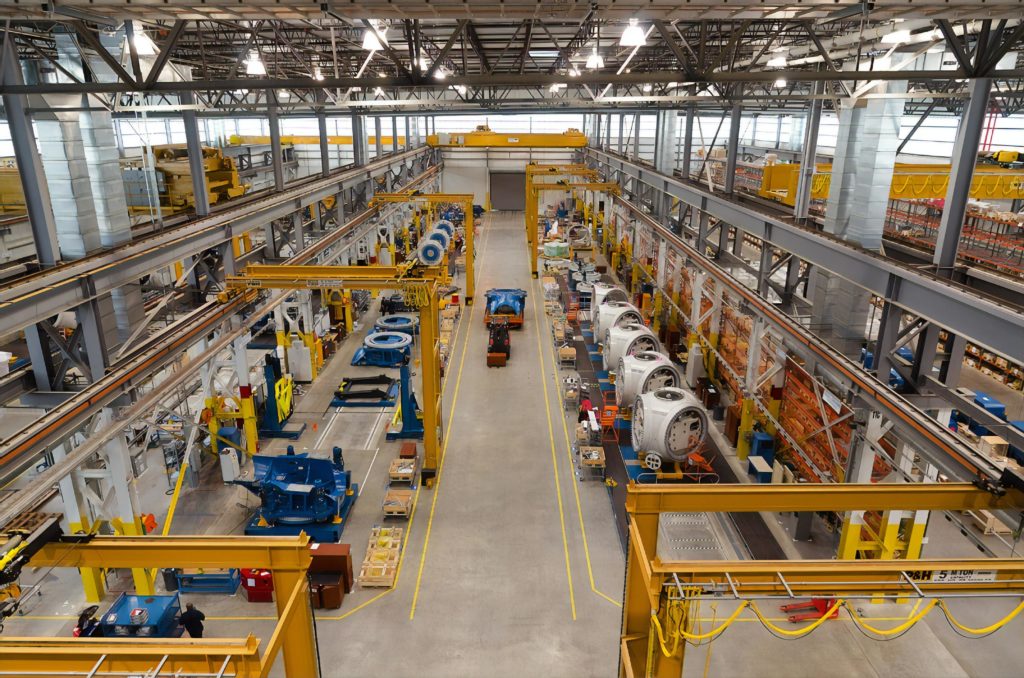
The big shift: changes in Canadian manufacturing employment, 2003-2018, Full Report
Diversity Institute, Smart Prosperity InstituteDespite the significant attention paid to Canada’s loss of manufacturing jobs at a broader level, little is known about how individual Canadian regions have fared since the manufacturing employment decline of 2003-2009, caused by a combination of increased overseas competition, a rising Canadian dollar, and the 2008-2009 Great Recession.
Pathways to Jobs -

Learning Bulletins, sharing knowledge and insights
Learning insights that gather research and early findings from our innovation projects to help navigate the future of work.
Pathways to Jobs -

Lessons learned: The pandemic and learning from home in Canada
Diversity Institute, Environics InstituteThe Survey on Employment and Skills, conducted by the Environics Institute for Survey Research in collaboration with the Diversity Institute and the Future Skills Centre, was designed to explore Canadians’ experiences with the changing nature of work, including technology-driven disruptions, increasing insecurity and shifting skills requirements.
Inclusive Economy -

Building a decision-based framework to understand Labour Market Information (LMI) needs
Labour Market Information CouncilFor Labour Market Information (LMI) to be accessible, relevant and suitable for meeting the diverse needs of Canadians, it must consider who is using LMI and what they are using it for.
Pathways to JobsTech and Automation -
 NLNTNUQCYT
NLNTNUQCYTTechnological Change in the North: How STEM Skills Can Help Indigenous Workers Adapt
Signal49 Research (formerly The Conference Board of Canada)The economy in Northern Canada is changing. Sectors, such as mining, forestry, and tourism, can quickly expand or contract. Advancing technology is one factor driving
those changes.Inclusive EconomyTech and Automation -

Responding to Automation: Building a Cleaner Future
Signal49 Research (formerly The Conference Board of Canada)The Future Skills Centre and the Conference Board of Canada research the paths that workers could take to transition into sectors that are growing rapidly, starting with the clean economy.
Tech and Automation -

Supporting Entrepreneurship and SMEs: A Post-Pandemic Skills and Training Agenda
Diversity Institute, Public Policy ForumBy combining preliminary data from an ongoing survey of SMEs, associated focus group discussions, and existing research, this report highlights opportunities to better support SMEs in the pandemic recovery and after. This includes a specific focus on embracing diversity and inclusion as a key way of addressing their skills needs.
Pathways to JobsSME Adaptability -

The Mother of Invention: Skills for Innovation in the Post-Pandemic World
Diversity Institute, Public Policy ForumTo be successful, Canada’s skills strategies must address skills for innovation across sectors from solo entrepreneurs, to small and medium-sized businesses, to large corporations – and even within government itself.
Inclusive Economy -

Innovation in Post-Secondary Education
Diversity Institute, Public Policy ForumCanada’s post-secondary institutions are well positioned for the future, thanks to innovative approaches and a willingness to use technological advances in education. COVID-19 has challenged these institutions, but they have showed adaptability under pressure by accelerating their adoption of innovations. However, some challenges predate the pandemic such as better inclusion of equity-seeking groups in higher education. Better funding models and greater flexibility can build greater resilience and agility into the system while addressing long-standing challenges and inequities
Inclusive Economy -

Mind and body: Impact of the pandemic on physical and mental health
Diversity Institute, Environics InstituteThe second wave of the Survey on Employment and Skills was conducted in late 2020, as the pandemic’s second wave gathered momentum in Canada and the number of new COVID-19 cases steadily increased.
Inclusive Economy -

Immigration and the success of Canada’s post-pandemic Economy
Diversity Institute, Public Policy ForumImmigration is an important part of Canada’s economic growth – especially in terms of sustaining the labour market. And although Canada welcomes many immigrants to our shores, we aren’t creating an employment environment where they can use their skills to their fullest potential. There are several steps that Canada needs to take to fix this problem, such as getting better at recognizing the credentials immigrants possess and providing them with improved labour market information throughout their immigration journey.
Inclusive Economy -
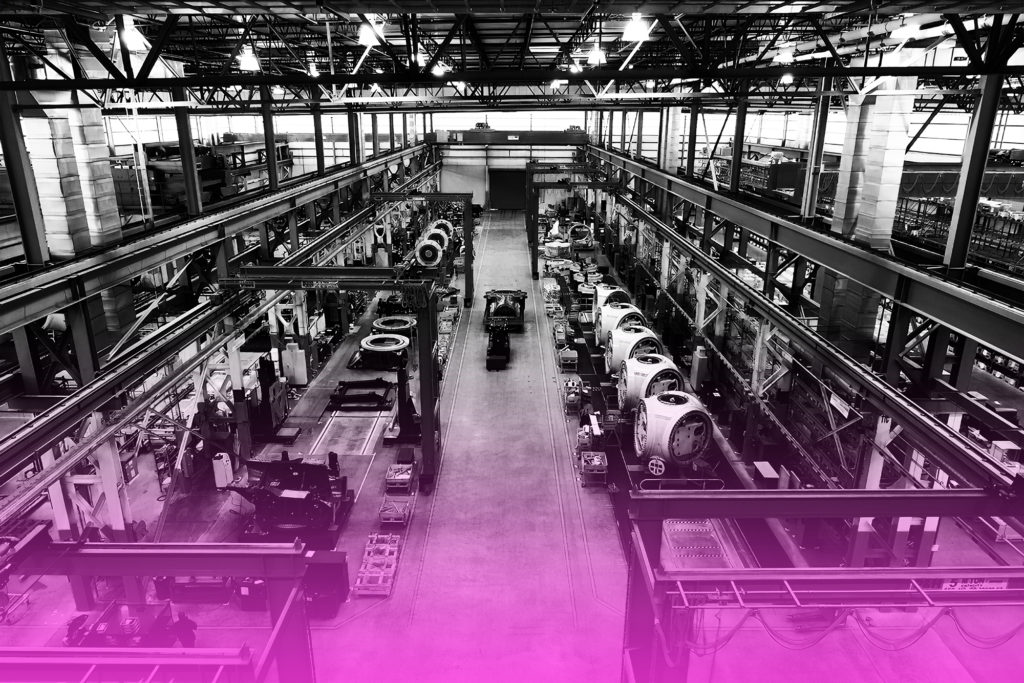
The Big Shift: Changes in Canadian Manufacturing Employment, 2003 – 2018 Executive Summary
Diversity Institute, Smart Prosperity InstituteHow did Canadian regions fare during the manufacturing employment decline of 2003-2009? Were manufacturing jobs replaced by comparable jobs or by different jobs, thus marking a permanent shift in the nature of employment?
Pathways to Jobs -

Building Inclusive Workplaces
Diversity Institute, Public Policy ForumA one-size-fits-all approach to pandemic recovery will not work. Programs tailored to the specific needs of specific groups will be important for a strong recovery, as will equitable access to critical supports, such as the infrastructure needed to overcome the digital divide. Businesses, governments and employees must all commit to reskilling — particularly when it comes to those from diverse groups who face barriers and bias — to develop an effective and inclusive skills and employment ecosystem that leaves no one behind.
Inclusive Economy -

Widening inequality: Effects of the pandemic on jobs and income
Diversity Institute, Environics InstituteThis report focuses on the overall impact of the pandemic, as well as more specific experiences such as lost hours of work, employment or income. It also looks at who was more likely to receive one or more of the emergency support benefits provided by the government, and how helpful these benefits have been.
Inclusive Economy -
 NLNTNUQCYT
NLNTNUQCYTLinking Skills to Employment in Inuit Nunangat
Signal49 Research (formerly The Conference Board of Canada)The economic opportunities currently available in Inuit Nunangat are not balanced. Economic opportunities in the region can benefit from Inuit skillsets, strengths, and knowledge.
Inclusive EconomyPathways to Jobs -

New Working Arrangements
Diversity Institute, Public Policy ForumThe COVID-19 pandemic has resulted in a rapid rise in the number of Canadians who are teleworking. While for many the transition has been positive, and a significant number of workers and employers indicate an interest to continue teleworking arrangements post-pandemic, there are inequalities in access and ability to telework. It is urgent that society responds in ways that will chart a path forward as the pandemic continues to unfold.
Inclusive EconomyTech and Automation -
 ONQC
ONQCIndustry 4.0, the future of work and skills: Building collective resources for the Canadian aerospace industry
Diversity InstituteCanada needs a long-term strategy to achieve productivity and cost-cutting, while also creating good jobs and high-quality work through Industry 4.0.
Pathways to JobsTech and Automation -

Digital Infrastructure for the Post-Pandemic World
Diversity Institute, Public Policy ForumThis report examines the key components of Canada’s essential digital infrastructure system, highlights worrying inequalities that exist within this system, and offers recommendations on how to quickly reduce some of the most glaring obstacles that prevent many of those who would benefit the most from accessing training, education and employment opportunities digitally from doing so.
Inclusive EconomyTech and Automation -

How to Forecast Skills in Demand: A Primer
Labour Market Information CouncilThis paper analyzes three approaches to forecasting in-demand skills that equips individuals and organizations to make sound decisions in training and employment development.
Inclusive EconomyPathways to Jobs -
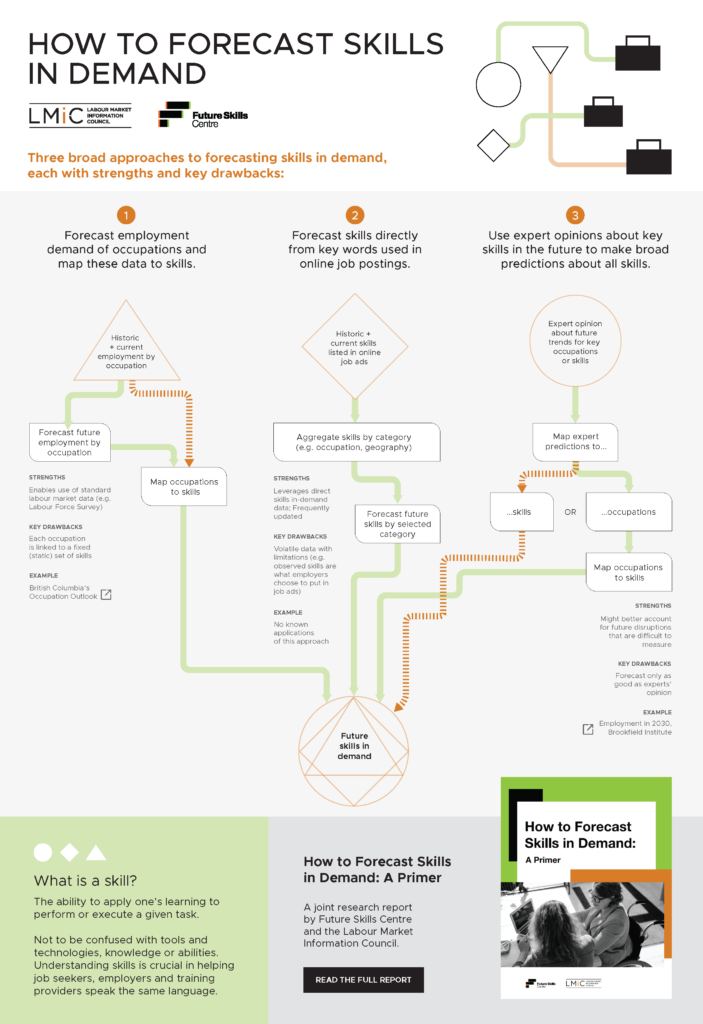
Infographic: How to forecast skills in demand
Pathways to Jobs -

Job Polarization in Canada
Diversity Institute, Public Policy ForumJob polarization is one of several trends — including automation, offshoring and the growing gig-economy — that were already being examined when COVID hit. As Canadian policymakers start to consider how to build back the economy after the pandemic, it makes sense to consider and address the problems created by polarization.
Inclusive EconomyPathways to Jobs -

Skills for the Post-Pandemic World Series
Diversity Institute, Public Policy ForumThe Future of Work continues to be a major area of focus for the Future Skills Centre and our partners at the Public Policy Forum and at the Diversity Institute.
Inclusive Economy -

Work at home or live at work: The complexities of new working arrangements
Diversity Institute, Environics InstituteThis survey report explores both the positive and negative experiences with working from home, and how these vary among different types of employees.
Inclusive EconomyPathways to Jobs -
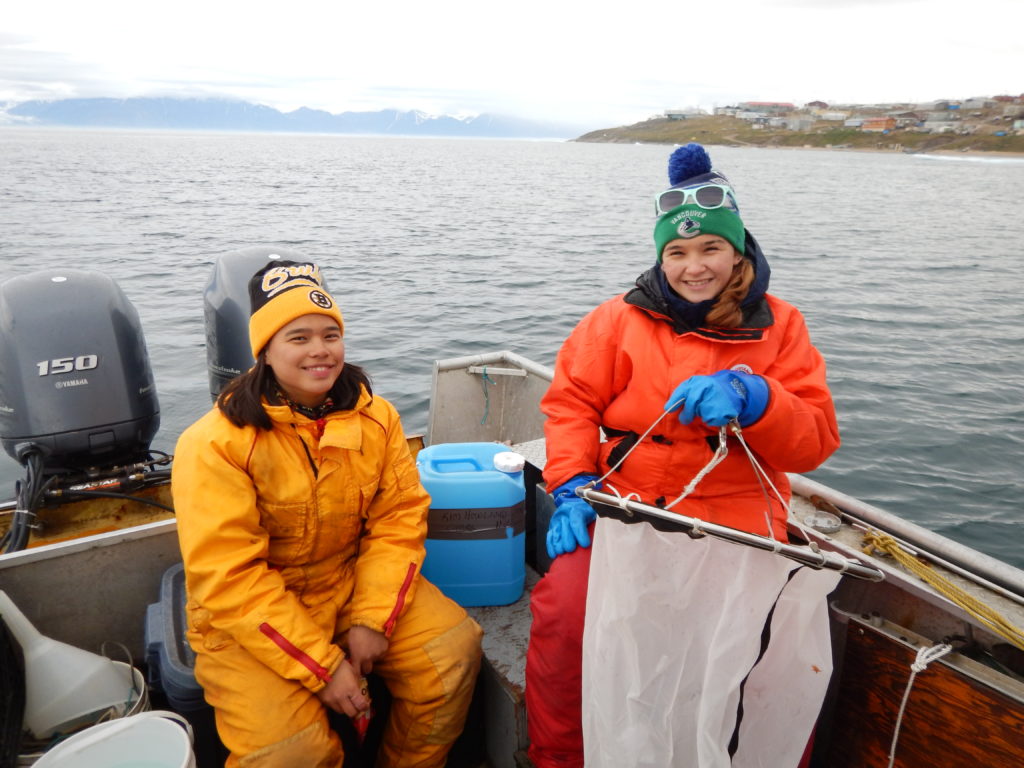 BCNU
BCNUSecuring sustainable northern fisheries
Ocean Wise Conservation AssociationThis partnership supports small-scale Arctic fisheries by introducing and promoting locally harvested products to Canada’s sustainable seafood market.
Inclusive Economy -
 YT
YTYukon skills research and engagement
Yukon UniversityThis research will examine and support Yukon as it recovers from the economic impact of COVID-19 while fostering resilience to prepare for future shocks.
Inclusive Economy -
 BC
BCThe future of food through agricultural technology
University of the Fraser ValleyThis ground-breaking research explores the potential of cellular agriculture – food created in a lab – to create a year-round supply of nutritious food and develop jobs in an exciting new field.
Tech and Automation -
 NB
NBMinimizing gaps in Indigenous early learning
North Shore MicMac District CouncilThis project aims to find solutions to the shortage of trained Indigenous early learning and child care workers for Micmac communities.
Inclusive EconomyQuality of Work -
 ON
ONImpact of remote work on engineering and technology jobs
Ontario Society of Professional EngineersThis project will study the impact of working-from-home on new graduates, women and newcomers to Canada in engineering and technology jobs.
Inclusive EconomyQuality of WorkTech and Automation -
 QC
QCEnhancing skills among persons with disabilities
Laval University, Department of RehabilitationPersons with disabilities can enhance their employability by acquiring professional knowledge, skills, and attitudes that match labour market needs.
Inclusive Economy -
 BC
BCVirtual learning in Canada’s infrastructure sector
British Columbia Institute of TechnologyPeople who seek training to work in utilities in support of Canada’s critical infrastructure get the benefit of virtual learning.
Tech and Automation -
 BC
BCLanguage learning for young newcomers
British Columbia Institute of TechnologyBCIT students pursuing skilled jobs receive English language training and content to support them in their studies and job search efforts.
Inclusive EconomyPathways to Jobs -
 NL
NLCook to connect
Association for New CanadiansCook to Connect supports newcomers’ transition into the workplace through an innovative program that provides employment support and skills for the food service industry.
Inclusive Economy -
 BC
BCVirtual services for career practitioners
ASPECT – Association of Service Providers for Employability and Career TrainingThis project is a needs assessment of career practitioners and their capacity to offer online services to vulnerable groups during the pandemic.
Pathways to Jobs -
 ON
ONResilient newcomer women in Northwestern Ontario
Lakehead UniversityResearch aims to identify opportunities and barriers to full labour participation by newcomer women in the wake of COVID-19.
Inclusive Economy -

National Accessibility Resources for Employers (NARE)
Work Wellness InstituteThis project will create and share resources for employers in disability management on a national basis to improve processes and policies to engage, accommodate, and keep employees with disabilities.
Inclusive Economy -
 ON
ONTIMES 2.0
Yonge Street MissionThis research will provide data that enables the Yonge Street Mission to better understand and support the journey to gainful employment for those living in poverty.
Inclusive EconomyPathways to Jobs -

A Path Forward – Job Transitions in Canada
Signal49 Research (formerly The Conference Board of Canada)Most Canadians who want to make a career transition have viable and desirable options, especially if they possess, or are willing to learn, the skills, abilities, tools, and technologies required for their destination occupation.
Pathways to Jobs -

Canadian Labour Demand Update: Analysis of Job Postings for the Fourth Quarter of 2020
Diversity Institute, MagnetThis report provides an update of labour demand trends from October to December 2020 with data sourced from the Vicinity Jobs Hiring Demand Analytics Suite.
Pathways to Jobs -

Is the Future Micro? Unbundling Learning for Flexibility & Access
Diversity Institute, eCampusOntarioMicro-credentials focus on assessing the achievement of incremental parcels of learning related to a particular skill or competency.
Pathways to Jobs -

Rising Skills: Digital Upskilling for Advanced Manufacturing Workplaces
Signal49 Research (formerly The Conference Board of Canada)Tradespeople need 21st-century digital skills to adapt to today’s more technologically advanced manufacturing sector. This summary looks at ways to strengthen training in Canadian manufacturing.
Pathways to JobsTech and Automation -

Yesterday’s Gone: Exploring the future of Canada’s labour market in a post-covid world.
Brookfield Institute for Innovation + EntrepreneurshipIn this report, we explore a broad range of trends with the potential to impact Canada’s labour market over the coming decade—many of which have been accelerated, disrupted, or created by COVID-19
-

Focus on the future of skills and work in a digital economy
Social Sciences and Humanities Research Council of Canada (SSHRC)The Social Sciences and Humanities Research Council of Canada (SSHRC) and FSC sponsored a stream of labour market research reports on Skills and Work in the Digital Economy.
Inclusive EconomyTech and Automation -

Responding to Automation: Technology Adoption in Canadian Industries
Signal49 Research (formerly The Conference Board of Canada)We examine some of the determinants of automation and its impact on Canadian occupations and industries.
Tech and Automation -

Social and Emotional Skills are Top of Mind Across Canada
Signal49 Research (formerly The Conference Board of Canada)When we asked participants across Canada to identify the most important skills for career success, they overwhelmingly identified social and emotional skills. This summary details their concerns, challenges, and suggestions.
Pathways to Jobs -

What Are Canadian Post-Secondary Institutions Saying and Doing? Social and Emotional Skills
Signal49 Research (formerly The Conference Board of Canada)Canadian post-secondary institutions are not prioritizing social and emotional skills acquisition for students, despite their growing importance to employers. More emphasis must be placed on ensuring students develop these skills.
Pathways to Jobs -

Rising Skills: Emerging Skills in the Food Services Trades
Signal49 Research (formerly The Conference Board of Canada)Commercial kitchens are becoming more automated, connected, and diverse workplaces. This briefing looks at the skill sets that food services tradespeople—in particular, the Red Seal trades of cook and baker—need to adapt, as well as how employers can find the skilled talent they need.
Pathways to JobsTech and Automation -

Rising Skills: Digital Skills Needs for Smart and Connected Vehicles
Signal49 Research (formerly The Conference Board of Canada)As the automotive industry shifts toward smart and connected vehicles, tradespeople who service cars, trucks, heavy duty equipment, and other vehicles will need stronger digital competencies. This briefing looks at how stakeholders in the automotive sector can reduce barriers to digital upskilling for both apprentices and journeypersons.
Pathways to JobsTech and Automation -

Rising Skills: A Toolbox Talk on Social and Emotional Skills in the Construction Trades
Signal49 Research (formerly The Conference Board of Canada)This report looks at the social and emotional skills that construction tradespeople will need to participate in an industry that is becoming increasingly multi-generational and diverse.
Pathways to Jobs -

Labour Demand Trends During the COVID-19 Pandemic
Diversity Institute, MagnetThis report is based on an analysis of online job postings in the pre-pandemic and pandemic periods. We discuss both changes in total job postings and changes in job postings across geography, occupations, skills, and sectors.
Inclusive EconomyPathways to Jobs -

Indigenous STEM Access Programs: Leading Post-Secondary Inclusion
Signal49 Research (formerly The Conference Board of Canada)This Issue briefing discusses the impact of current programs for Indigenous learners in science, technology, engineering, and mathematics in post-secondary education. They are one approach to increase Indigenous inclusion in these fields.
Inclusive EconomyTech and Automation -

Scoping Paper: Skills for the Post-Pandemic World
Diversity Institute, Public Policy ForumThis paper contributes to the development of a post-pandemic skills agenda by clarifying broad changes and continuities in the economy and society that could have implications for skills and identifying a set of key themes on which further research is needed to better understand the challenges and opportunities which we face
Inclusive Economy -

A Foundation For the Next Normal: Outlook of Technology Adoption & its Impact in the Canadian Workplace
Diversity Institute, International Data CorporationThis document reflects results on a prospective future before a seismic shift occurred. The research we present here is no longer a good indication of what is to come, but a good indication of how things were.
Tech and Automation -

Learning Together: STEM Outreach Programs for Indigenous Students
Signal49 Research (formerly The Conference Board of Canada)In Learning Together: STEM Outreach Programs for Indigenous Students, we were interested in free STEM programs, not run by the formal education system, that target Indigenous children in Kindergarten to Grade 12. We surveyed these programs across Canada to learn more about how they reach Indigenous youth.
Inclusive EconomyPathways to Jobs -

Twin Efforts: Opportunities for Collaboration in Indigenous Post-Secondary Education
Indigenous Institutes play an essential role in helping Indigenous peoples—Canada’s fastest-growing population—prepare for the labour market. And they bring a distinctly Indigenous lens to higher education.
Inclusive Economy -

A Typology of Gig Workers in Canada: Towards a new model for understanding gig work through human, social, and economic capital
Diversity Institute, Doblin, a Deloitte BusinessThis paper offers a conceptual framework and preliminary typology of gig work and workers, based on a thorough review and synthesis of the existing research, designed to be tested “in the field” with real gig workers themselves.
Inclusive EconomyTech and Automation -

The Next Wave: Automation and Canada’s Labour Market
Diversity Institute, C.D. Howe InstituteThis Commentary assesses the likely impact of technological automation on Canada’s labour market and compares these results to past predictions. In fact, they show a lower proportion of employment at high risk of automation (about 22 percent) than most previous estimates.
Pathways to JobsTech and Automation -
 NB
NBEarly Childhood Education Lab
NouLABWe are looking to understand what it means for educators to thrive in their career; what supports do they need to learn and apply best practices?
Pathways to Jobs -

Measuring Social and Emotional Skills
Signal49 Research (formerly The Conference Board of Canada)Social and emotional skills (SES) play a critical role in the success of individuals and organizations. But, until now, there has been no comprehensive and integrated resource to identify and compare SES measurement tools. We released a new resource for users to measures social and emotional skills in adolescents and adults
-

Competency Frameworks and Canada’s Essential Skills
Diversity Institute, Public Policy ForumWhether it’s new technology or global events driving the pace of change, Canadians are being asked to adapt in the workplace. Canada needs an essential skills framework that includes and looks beyond simple literacy and numeracy. It needs to include the ‘soft skills’ that industry leaders say are key to success and other essential skills that will help Canadians adapt, no matter what comes their way. Each needs to be measured and tracked to ensure Canadians remain globally competitive, and this paper argues that renewing Canada’s Essentials Skills framework is the place to start.
Pathways to Jobs -

Technology-Enabled Innovations in the Skills and Employment Ecosystem
Diversity Institute, Public Policy ForumThis paper outlines places where technology can or is providing innovative approaches to skills training. This includes the assessment of skills, development of skills, and the alignment of supply and demand — including advancing bias-free recruitment. With real-world examples from around the world, it also reviews how technology can improve access, diversity and workplace inclusivity amongst equity-seeking groups.
Tech and Automation -

Small and Medium-Sized Employers (SMEs): Skills Gaps and Future Skills
Diversity Institute, Public Policy ForumCanada’s small and medium-sized enterprises (SMEs) account for more than 90 percent of private-sector jobs in Canada. To be competitive in today’s market, they need the right people with the right skills, yet they are disproportionately threatened by labour shortages and skills gaps – a situation made worse by COVID-19. Unlike large corporations, SMEs possess limited resources, making it exponentially more challenging to support these human resources needs. There is a dire need for innovative research & solutions.
Inclusive EconomySME Adaptability -

Curriculum and Reconciliation: Introducing Indigenous Perspectives into K–12 Science
Signal49 Research (formerly The Conference Board of Canada)Curriculum and Reconciliation: Introducing Indigenous Perspectives into K–12 Science briefly and visually outlines the landscape of school science curricula across the country. Several jurisdictions integrate Indigenous content, perspectives, and ways of knowing, while others have yet to include references to Indigenous perspectives.
Inclusive Economy -

Economic Equality in a Changing World: Removing Barriers to Employment for Women
Public Policy Forum, Diversity InstituteAction is needed to alleviate gender barriers. This report summarizes existing research and prevailing issues surrounding gender inequality, including those exacerbated by COVID-19, and points to further research that needs to be done on initiatives to reduce gender inequalities.
Inclusive Economy -

Adapting to the Changing World of Work
Environics Institute, Diversity InstituteThe 2020 Survey on Employment and Skills explores the perspectives and experiences of Canadians relating to education, skills and employment, including perceptions of job security, the impact of technological change, and the value of different forms of training.
-
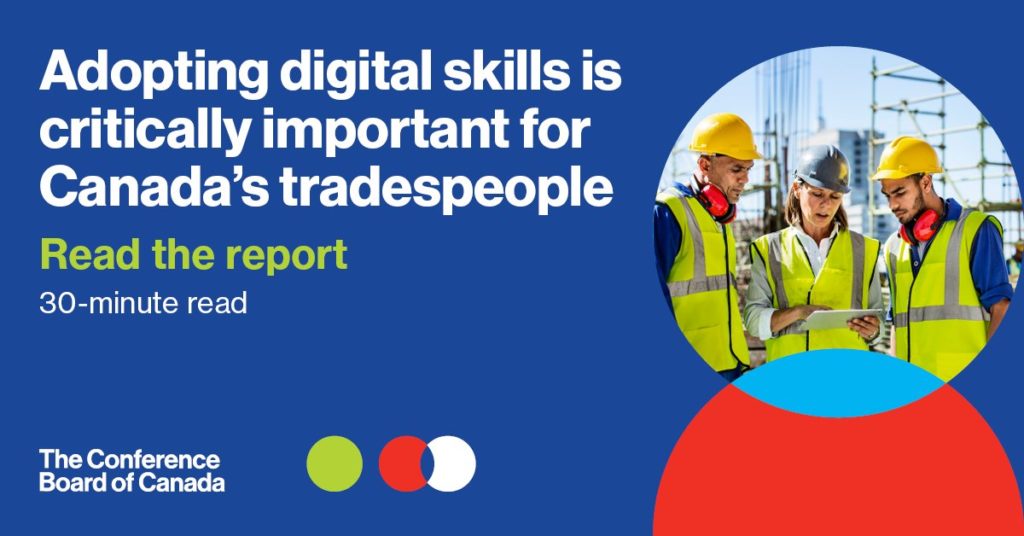
Bridging Generational Divides: Advancing Digital Skills in Canada’s Apprenticeships and Skilled Trades Ecosystem
Signal49 Research (formerly The Conference Board of Canada)A digital revolution is coming to the skilled trades. Tradespeople will need a range of new digital skills to keep pace with the future of work. In this report, we look at how Canadian apprenticeship training can adapt to the future of work.
Inclusive Economy -

Digital Differences: The impact of automation on the Indigenous economy in Canada
Diversity Institute, Canadian Council for Indigenous BusinessHow is technological change, and specifically automation, affecting Indigenous workers in Canada? Digital Differences looks at the impact of automation on the Indigenous economy by industry and region.
Inclusive EconomyTech and Automation -

Understanding the Nature and Experience of Gig Work in Canada
Diversity Institute, Public Policy ForumGig work & gig workers are on the rise, fueled by technology that makes this form of work more easily accessible. What does this mean for Canada’s labour market and how should we respond? This report explores what we know, and what we need to know, about the nature of Canada’s gig economy and the experiences of its workers.
Inclusive EconomyQuality of WorkTech and Automation -

Mapping the Landscape: Indigenous Skills Training and Jobs in Canada
Public Policy Forum, Diversity InstituteIndigenous businesses are growing and — importantly — creating employment for others. Further, self-employment and entrepreneurship is increasing. If there is an opportunity for the next generation, and for current adult workers, to leapfrog into the future of Canadian work, it may very well be through Indigenous-led business.
Inclusive Economy -
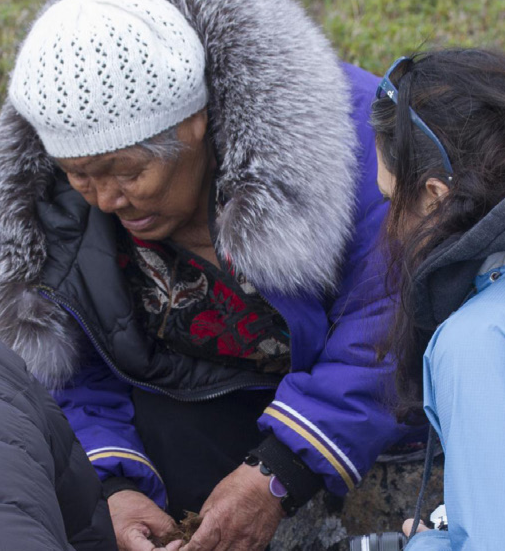 NLQC
NLQCSustainable Northern Livelihoods: A Primer
Signal49 Research (formerly The Conference Board of Canada)Economic growth in Canada’s North has outpaced the rest of the country. This primer discusses the challenges still faced by Indigenous people in the North, who continue to experience socio-economic disparities
Inclusive Economy -

Incorporating Indigenous Cultures and Realities in STEM
Signal49 Research (formerly The Conference Board of Canada)How are organizations in Canada working to increase Indigenous representation in science, technology, engineering, and mathematics (STEM) careers? This primer introduces a novel typology based on 100-plus recent Canadian initiatives.
Inclusive EconomyTech and Automation -
 QC
QCSkills Development in SMEs for Faster Adaptation to Job Market Changes
Fédération des chambres de commerce du Québec (FCCQ)To speed up the pace of organizational buy-in to a culture of continuing education and the pace of workforce skills development in eight Quebec regions.
Pathways to JobsSME Adaptability -
 ONQC
ONQCBest Practice Models for Industry Engagement
Canadian Apprenticeship ForumFirst Canadian test of online VALID-8 tool allowing trades apprentices to be objectively assessed by a certified journeyperson and also demonstrate what they are capable of to prospective employers.
Tech and Automation -

Indigenous Financial Management: Finally Finding Balance – A Primer
Signal49 Research (formerly The Conference Board of Canada)This paper outlines research on the career paths of Indigenous finance and management professionals, with an aim toward attracting more Indigenous people to careers in those fields.
Inclusive Economy -

Bracing for Automation: What Are Canada’s Most Vulnerable Jobs?
Signal49 Research (formerly The Conference Board of Canada)This issue briefing looks at which occupations have a higher risk of automation and offer few options for workers to transition into lower-risk occupations.
Tech and Automation -

Survey on Employment and Skills
Environics Institute, Diversity InstituteThe survey explores the experiences of Canadians relating to employment, education, and training, including perceptions of job security, the impact of technological change, and the value of skills training.
Tech and Automation -

Preliminary Report: Canadians’ Shifting Outlook on Employment
Environics Institute, Diversity InstituteAn Environics Institute survey suggests COVID-19 did not dent Canadians’ outlook about the future or their confidence in their ability to bounce back quickly after hard times, even as the pandemic’s effects on employment began to be felt.
Inclusive EconomyPathways to Jobs -
 BC
BCCLIMB: Continuous Learning for Individuals’ Mid-career and Beyond
Northern Lights CollegeMid-career workers are most vulnerable to disruption of the labour market but there is little widespread information, resources, or training to support a mid-career change.
Inclusive EconomyPathways to JobsSME Adaptability -
 NLNTNUQC
NLNTNUQCCareer Pathways in the North
An examination of career pathways and resources for Indigenous workers in Canada’s North. This project will examine the major push and pull factors that create non-standard employment conditions for Indigenous labour in Canada’s North. It will also identify pathways and resources that have helped northern Indigenous workers establish careers for themselves.
Inclusive EconomyPathways to Jobs -

Cross-Cultural STEM
An examination of the role of cross-cultural STEM curricula and related supports in helping First Nation, Metis, and Inuit students successfully graduate to post-secondary STEM fields and successfully graduate from post-secondary STEM fields to relevant employment opportunities. This project will identify best practices for designing, teaching, and supporting cross-cultural Science Technology Engineering and Mathematics (STEM) curricula for Indigenous learners in secondary and post-secondary fields of study.
Inclusive EconomyTech and Automation -

Indigenous Institutes
Fifty years on, many forms of Indigenous-centred post-secondary education (PSE) exist in Canada. All of them aspire to help Indigenous students succeed. But to date, no one has done a comprehensive study of Indigenous-centred post-secondary education in Canada.
Inclusive EconomyPathways to Jobs -

Assessing Canada’s skills gap
The skills that workers need are changing thanks to automation and new technologies. That means it’s more important than ever to find reliable ways to identify the gaps between the skills workers have and the skills employers need, and how those gaps will change over time.
-

Leveraging the Skills of Social Sciences and Humanities Graduates
Public Policy Forum, Diversity InstituteCanadians are among the best-educated people on the planet. But are they getting the education they need — particularly in the fields of social sciences and humanities — to maximize their employment prospects in today’s fast-changing workplace?
Pathways to Jobs -

Return on Investment: Industry Leadership on Upskilling and Reskilling their Workforce
Public Policy Forum, Diversity InstituteAs technology changes the nature of work, Canadian companies must create a culture of continuous learning to ensure employees have the skills they need.
Pathways to JobsTech and Automation -

Skills Gaps, Underemployment, and Equity of Labour-Market Opportunities for Persons with Disabilities in Canada
Public Policy Forum, Diversity InstituteWhile people with disabilities can achieve socially integrated, financially independent lives through secure, well-paid employment, they are often trapped in low-skill jobs at high risk of automation.
Inclusive Economy -

Employment Gaps and Underemployment for Racialized Groups and Immigrants in Canada: Current Findings and Future Directions
Public Policy Forum, Diversity Institute“Foreign-sounding names” are 20 to 40 per cent less likely to get a call-back for a job interview, depending on company size.
Inclusive Economy -

Bridging the Digital Skills Gap: Alternative Pathways
Public Policy Forum, Diversity InstituteDigital skills and digital careers are part of every industry’s future. Yet employers say they can’t find workers with the information and communication technology (ICT)…
Pathways to JobsTech and Automation -

Thinking Twice About Technology and the Future of Work
Public Policy Forum, Diversity InstituteTechnology is being used to change power balances in workplaces and to perpetuate long-standing precarious employment relationships, Jim Stanford argues. But the exploitative practices of the gig economy reflect deliberate choices, rather than the inevitable onward march of technology, and creating better jobs also lies within our power.
Tech and Automation -

Solving the Skills Puzzle: The Missing Piece is Good Information
Public Policy Forum, Diversity InstituteIn a world of work increasingly driven by the supply and demand of skills rather than the qualifications of graduates, employers have trouble finding the workers they need and workers struggle to keep up with changing demands. Emna Braham and Steven Tobin explain how better and more accessible labour market information lies at the heart of clarifying the skills and training needs of today and tomorrow.
Pathways to Jobs -

Understanding the Future of Skills: Trends and Global Policy Responses
Public Policy Forum, Diversity InstituteStudies on the future of work tend to focus on the jobs at risk of automation, with projections varying widely from 6% to 59%. Sunil Johal and Michael Urban take a different approach in reviewing eight expert reports and the actions taken by nine countries to prepare for the challenges ahead. They distill key lessons for Canada to ensure workers are equipped with the skills they need to thrive in tomorrow’s economy, whatever shape it takes.
-

There’s a revolution happening in skilled trades
The revolution is being sparked by automation, low-carbon economies, digitization, and other emerging work trends. These new technologies need skills that are not usually at the core of a trade school education.
Sustainable JobsTech and Automation -

Applied and Experiential Skills
Signal49 Research (formerly The Conference Board of Canada)In this multi-year project, our team of researchers will study and support ongoing work-integrated learning initiatives in Canada focusing on the drive to create more experiential learning opportunities, especially among vulnerable populations, while also zeroing in on apprenticeship training.
Pathways to Jobs -

The Future is Social and Emotional
Demand for skilled employees is not new, but the skills considered “in demand” have evolved. While developing skills is a life-long endeavour, the skills that Canadians learn through post-secondary training are key to workplace success. Demand for social and emotional skills is growing. Are we doing enough to prepare Canadians for the evolving workplace?
Pathways to Jobs -

Skills Next Series
Public Policy Forum, Diversity InstituteThe Public Policy Forum, the Diversity Institute, and the Future Skills Centre have joined together to publish Skills Next, a series that explores what is working in workplaces, universities, and the labour market – and where workers are falling through the gaps in our skills training system. Each report focuses on one issue — such as the impact of technology in the workplace, gig work, digital skills, and barriers to employment that some marginalized groups experience — and reviews the existing state of knowledge on this topic and identifies areas in need of additional research.
Inclusive EconomyTech and Automation -

Indigenizing Corporate Canada
Signal49 Research (formerly The Conference Board of Canada)This research project will help inform the development of more appropriate career resources and supports to increase Indigenous representation in Canada’s finance and management professions.
Inclusive Economy -
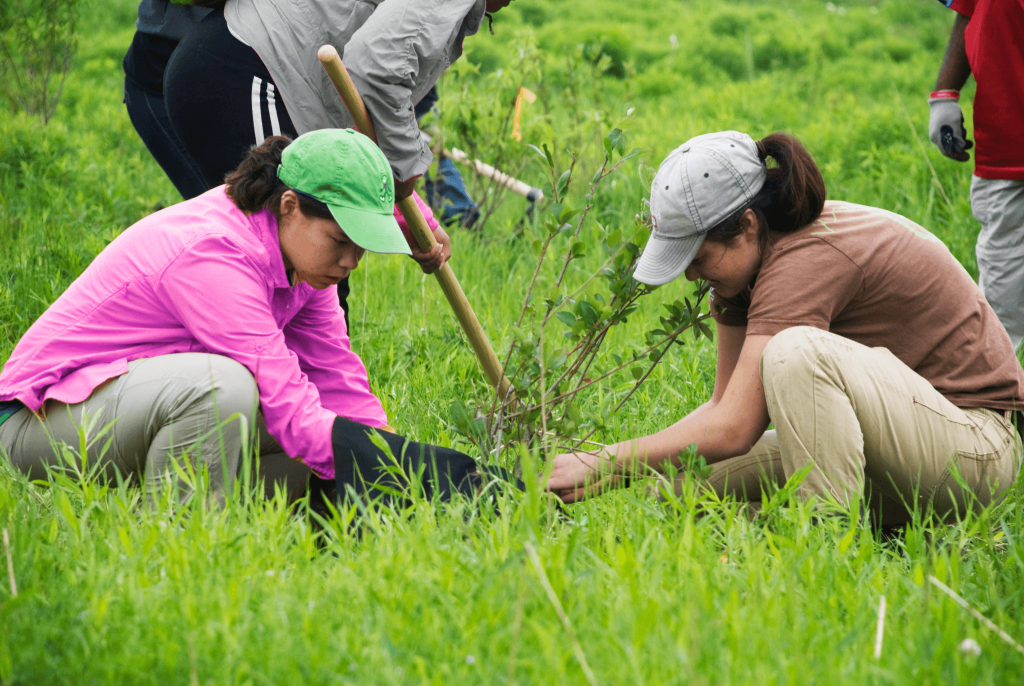
STEM for Indigenous Learners
Signal49 Research (formerly The Conference Board of Canada)This research project will explore what works for effectively designing, teaching, and supporting cross-cultural Science, Technology, Engineering, and Mathematics (STEM) curricula for Indigenous learners in secondary and post-secondary fields of study.
Inclusive Economy -
 NTNUYT
NTNUYTGetting Beyond Non-Standard Employment: Sustainable livelihoods for Indigenous communities in Northern Canada
Signal49 Research (formerly The Conference Board of Canada)This research project seeks to understand why Indigenous workers in Canada’s North tend to be concentrated in part-year and part-time work, and which career pathways and supports can help them achieve more sustainable livelihoods.
Inclusive Economy -

Assessing Canada’s Skills Requirements in the 21st Century
Signal49 Research (formerly The Conference Board of Canada)This project will develop a comprehensive skills framework to describe the Canadian workforce, assess the types of skills currently required by employers and offered by employees, and propose strategies for policymakers to mitigate the growing skills shortage.
Pathways to Jobs -

Social and Emotional Skills
Signal49 Research (formerly The Conference Board of Canada)In this multi-year project, our team of researchers is exploring the trends, challenges, and opportunities related to social and emotional skills (SES) development and the future of work.
-

Bridging Education and Skills Gaps through Indigenous-Controlled Post-Secondary Education
Signal49 Research (formerly The Conference Board of Canada)This research project will investigate the role Indigenous-controlled post-secondary institutes play in helping First Nation, Métis, and Inuit students achieve academic success and find meaningful employment.
Inclusive Economy -
 QC
QCUnderstanding Future Skills: Case of the Montreal Aerospace Cluster
HEC Montréal, Diversity InstituteThe report examines how organizations contribute to the development and management of talent at the regional level, with a specific focus on the case study of the Montreal aerospace cluster.
-

Employment Transitions in Canadian Metropolitan Areas
Diversity InstituteThis report examines job loses and gains across Canadian metropolitan areas during the 21st century.
Pathways to Jobs -
 QC
QCUnderstanding Future Skills: Emergence of an Ecosystem for the Digital Economy
The focus of this report is on the emergence of the digital economy ecosystem in Quebec, with a specific focus on the Montreal artificial intelligence cluster.
Tech and Automation -

Technological Change and the Future of Work in Canada
Signal49 Research (formerly The Conference Board of Canada)This project will assess the impact that large-scale technological and demographic trends will have on the demand and supply of labour in Canada and identify potential solutions to mitigate the effects of labour shortages on the Canadian economy.
Tech and Automation -
 AB
ABTransition to a New Tomorrow
NorQuest CollegeUnique professional development program to support mid-career oil and gas workers
Pathways to Jobs -
 MBQC
MBQCSupporting Mid-Career Workers with Disabilities
UOIT, York University, Nipissing University, Durham College, National Educational Association of Disabled Students, Council of Canadians with Disabilities, Manitoba League of Persons with Disabilities, Quebec Association for Equity and Inclusion in Postsecondary EducationAssessing tools and resources for mid-career workers with disabilities
Inclusive Economy -
 NBNLNSPE
NBNLNSPEBuilding the Skills of the Trucking Industry
Trucking Human Resource Sector Council Atlantic, PEI Trucking Sector Council, Women’s Trucking Federation of Canada, Private Motor Truck Council of Canada, Atlantic Provinces Trucking Association, Immigrant Settlement Agency of NS, Native Council of Nova Scotia, St. Francis Xavier University’s Centre for Employment InnovationThe project will leverage virtual reality technology to deliver training in a way that complements varied learning styles. The virtual reality simulator is the first of its kind specifically designed for the trucking industry with AI technology and the ability to track the user’s eyes and enhance their driving skills in the unlimited replays.
Tech and Automation -

Supporting Mid-Career Workers in Retail and Meat Processing
United Food and Commercial Workers Union CanadaTransitioning into strong growth rate jobs
Pathways to JobsTech and Automation
Click on each province and territory to filter projects based on the communities they serve. You can also use the Pan-Canadian toggle to include projects that span across the entire country.
Project List
